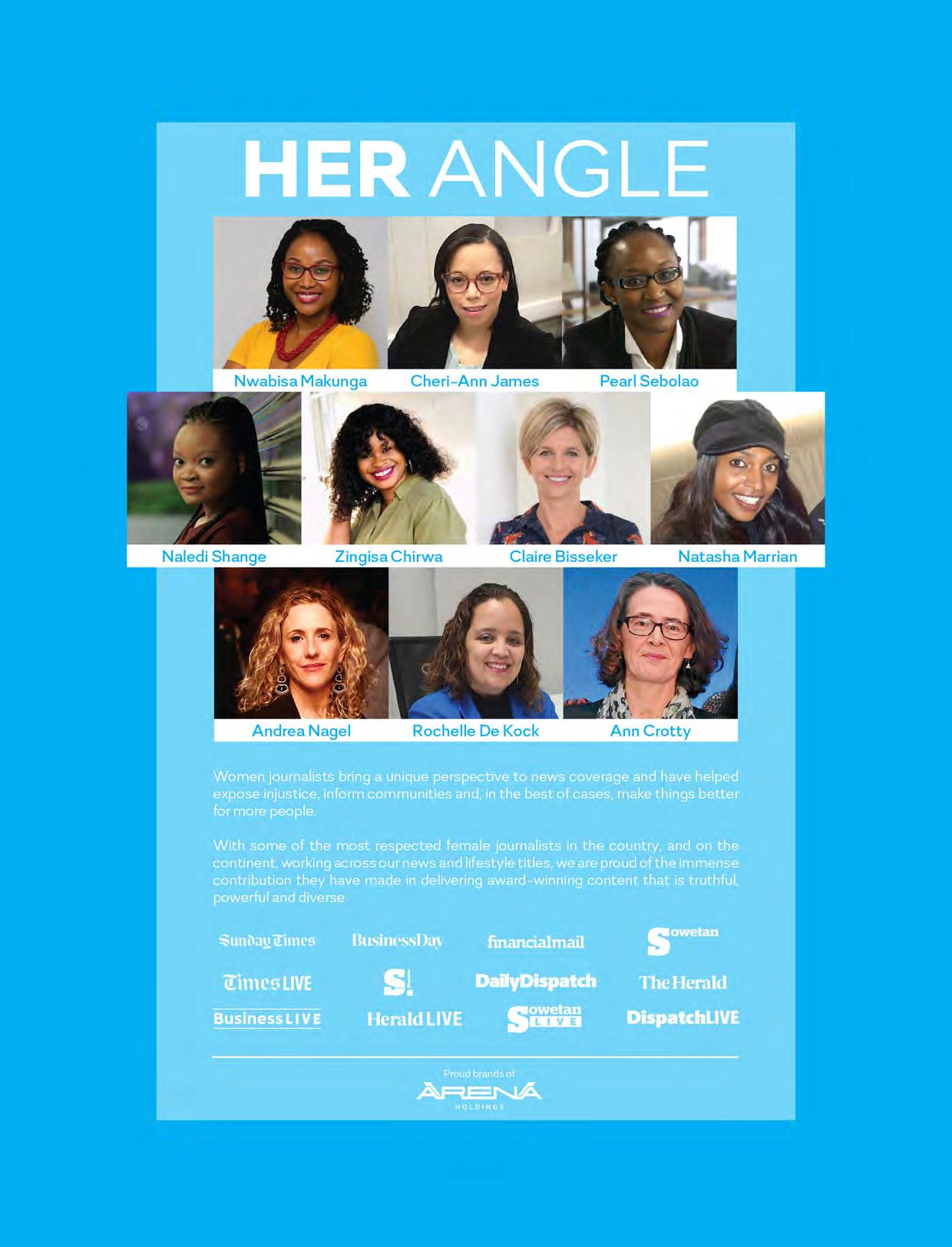BE SEEN, BE HEARD, BE VOCAL













This is the third edition of our special publication, Women in The Media. Being a business-to-business title, we rely on media professionals to share their ideas, their issues, and their knowledge with other readers in media world.
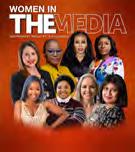
We are fortunate that we never battle to find contributors, for which we are grateful, but of course there is a rate of attrition. Contributions not filed, emails not answered, promises not kept. It’s part of the job. So, we tend to over commission to ensure we’re never short of content.
Not this time around.
Our first issue of Women in The Media in 2021 was 40 pages. In 2022, we rose to 58. And this year, we’re up to 70 pages of inspiring and provocative stories from South African women. It makes me wish we still printed our magazines. What a satisfying ‘thwack’ Women in The Media would make hitting our desks or coffee tables!
What was interesting in this year’s contribution’s is how many women in media still battle with imposter syndrome. It’s a story Gillian Rightford covered brilliantly in our 2022 edition. What’s changing is that we are aware of it, and fighting those tendencies. Many women in senior positions are taking steps to ensure younger women climbing the ladder are not beset by nagging doubts that they’re not good enough.
That mentoring and sponsorship is instilled in many companies now is a positive step. Many contributors in this issue write on how senior figures –women and men – helped them forge their career paths with confidence. At the same time, they recognise the women who came before them, the women who actually cleared those paths, scything their way through the sexism, sexual harassment, the put-downs, the old boys’ club...
I had a newspaper editor once tell me that if I wanted to be an editor, I should head on out to women’s magazines. And that was in the mid-1990s.
What we didn’t want this magazine to be was a litany of moans about how unfair it all is… How many issues we still face, how high the glass ceiling remains.
And that, it’s not.
The stories are powerful, personal and inspirational. They resonate with passion and knowledge and hope.
Thank you to every single woman who shared their stories with us for this issue.
Be assured, you are SEEN.
The Media
Got to love it.
Glenda.
PUBLISHED BY
Arena Holdings (Pty) Ltd
Hill on Empire, 16 Empire Road (cnr Hillside Road), Parktown, Johannesburg, 2193
Postal Address: PO Box 1746
Saxonwold, Johannesburg 2193
Telephone: +27 11 280 3000
Editor: Glenda Nevill glenda.nevill@cybersmart.co.za
Content Manager: Raina Julies rainaj@picasso.co.za
Sub-Editor: Lucinda Jordaan
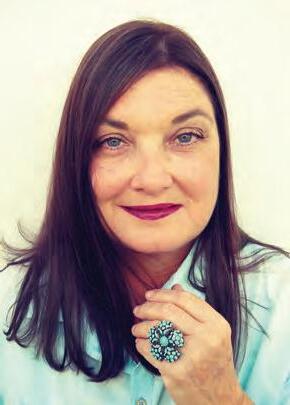
Content Co-ordinator: Natasha Maneveldt
Contributors: Vineel Agarwal, Lauren Bianca, Candice Bresler, Charise Coleman, Melissa Daniels, Manuela Dias, Sturae Hickley, Cheryl Ingram, Michelle Kirby, Amy Leibbrandt, Tatum Ludolph, Nomshado Lubisi, Lindiwe Maduna, Payal Maharajh, Nwabisa Makunga, Roxanne Manning, Jackie May, Nombini Mehlomakulu, Gofaone Modise, Iviwe Mqhakama, Mathe Okaba, Zanele Potelwa , Vanessa Perumal, Cheryl Reddy, Priya Reddy, Mmoni Seapolelo, Alungile Sixishe, Andrea Slater, Sjarn Swart, Candice Theron, Clare Trafankowska, Tanya van Tonder
Head of Design: Jayne Macé-Ferguson
Senior Designer: Mfundo Archie Ndzo
Advert Designer: Bulelwa Sotashe
Cover Images: Supplied
Sales Manager: Tarin-Lee Watts twatts@themediaonline.co.za +27 79 504 7729
Production Editor: Shamiela Brenner
Advertising Co-ordinator: Johan Labuschagne
General Manager, Magazines: Jocelyne Bayer
Copyright: The Media
No portion of this magazine may be reproduced in any form without written consent of the publisher. The publisher is not responsible for unsolicited material. The Media is published by Arena Holdings. The opinions expressed are not necessarily those of Arena Holdings. All advertisements/advertorials have been paid for and therefore do not carry any endorsement by the publisher.
ON THE COVER Bottom from left : Zanela Potelwa
Tatum Ludolph
Amy Leibbrandt
Vineel Argawal.
Top from left: Clare Trafankowska
Nwabisa Makunga
Nomshado Lubisi
Nombini Mehlomakulu
02 ON THE RECORD
Letter from the editor
04 BE INFORMED
Nomshado Lubisi advocates for women empowerment, media literacy and fights mis- and disinformation.

06 BE INCLUSIVE
Zanele Potelwa is a celebrated broadcaster with a firm eye on advancement and inclusivity
08 BE DRIVEN
Alungile Sixishe and her business are driven by five guiding principles.
08 BE VOCAL
Andrea Slater has found her voice and urges women to use theirs.
10 BE VISIONARY
Amy Leibbrandt believes South Africa’s media industry is built for female success.
12 BE SUPER POWERFUL
Charis Coleman proposes moving beyond mentorship to sponsorship.
14 BE HARDWORKING
Candice Theron reckons the glass ceiling takes more than a degree to crack.
14 BE DARING
Gofaone Modise pays tribute to South Africa’s female media moguls.
16 BE TRANSFORMATIVE
Mathe Okaba believes closing the gender gap needs male allies in the industry.
18 BE PASSIONATE
Melissa Daniels promotes passion marketing and the power of connectivity
20 BE CONSISTENT
Sjarn Swart advises grabbing the moment to pursue your dreams.
20 BE SUPPORTIVE
Vineel Agarwal writes on what it takes to be a leader in changing times.
22 BE AWARE
Nombini Mehlomakulu is aware of her impact as an industry leader.
24 BE KIND
Jackie May imagines a kinder, fairer, inclusive and nature-friendly future.
28 BE INSPIRED
Tatum Ludolph on not taking the easy road and the growth challenges inspire.
30 BE PIONEERING
Nada Wotshela is a media pioneer with a pedigree in broadcasting.

34 BE VISIBLE
Priya Reddy is no longer hiding and determined to see women are heard in the boardroom.
36 BE FREE
Roxanne Manning on the power of consultants and being your own boss.
40 BE RESILIENT
Michelle Kirby on the steppingstones and lessons that shape a career.
42 BE PROGRESSIVE
Iviwe Mqhakama is intent on empowering women in out of home media.
42 BE INFLUENTIAL
Candice Bresler is the founder of the Women Plagued with Self Doubt Club.
44 BE COMMITTED
Sturae Hickley offers valuable lessons on work, life and a commitment to growth.
46 BE COLLABORATIVE
Manuela Dias de Deus fosters a culture of inclusivity and collaboration.
48 BE CURIOUS
Dianka Moodley on how working for a forward-thinking company fosters optimism.
50 BE THE CHANGE
Cheryl Reddy shares strategies for women to be the change they want to see.
52 BE BOLD
Cheryl Ingram is still competing in a man’s domain … and winning.
54 BE AWARDED
Clare Trafankowska learned valuable lessons being a judge at the Cannes Festival of Creativity.
56 BE A SUPERHERO
Lauren Bianca shares her tenacious journey to becoming a comic book author.
58 BE INSPIRING
Payal Maharajh shared her story and found how her battle inspired others.

60 BE UNITED
Vanessa Perumal lost her voice to cancer and found it again by amplifying social justice.
62 BE POWERFUL
Tanya van Tonder says it’s the journey, not the destination, where lessons are learnt.
64 BE INTERESTED
Nwabisa Makunga believes in putting the interests of readers ahead of all other considerations.
66 BE STRONG
Lindiwe Maduna is a driving force for positive change.
Nomshado Lubisi treads local, continental and global stages to advocate for media literacy, women’s empowerment and to fight the virulent spread of mis- and disinformation.
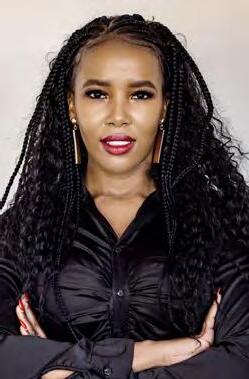
As I reflect on my journey of growth and learning, one theme that stands out prominently is the significance of building resilience to disinformation. The field of mass media and communication is constantly evolving, and it has an immense power to shape public opinion, influence behaviour, and drive social change.
In today’s interconnected world, disinformation has become a pervasive threat to truth, critical thinking, and democracy itself. Misinformation spreads like wildfire through social media and other digital channels, making it challenging to distinguish fact from fiction.
The consequences of falling victim to disinformation can be devastating, affecting not just individuals but entire communities and societies. By working in this field, I have been able to contribute to and be part of the process of informing, educating, and inspiring audiences, and make a tangible impact on society.
Through my experiences as a communicator, I’ve come to understand the urgency of combating disinformation and promoting media literacy. The ability to discern credible information is crucial in making informed decisions, participating in public discourse, and safeguarding the values we hold dear. This journey has taught me that building resilience to disinformation is not just a personal responsibility; it is a collective obligation that requires collaboration, education, and a united front against falsehoods.
As a communications professional, I’ve been fortunate to have opportunities to share my voice on local, continental, and global stages. Each platform provided a unique experience, contributing to my growth as a communicator and an individual.
Locally, I have engaged with communities, organisations, and institutions, advocating for media literacy and raising awareness about the dangers of disinformation. On the continental stage, I have participated in conferences and workshops in Malawi, Ethiopia, Zambia, Namibia to name a few.
The experience of sharing insights and strategies to combat disinformation across borders was enlightening. It reminded me of the common challenges we face and the power of solidarity in our fight against misinformation.
Finally, the opportunity to engage on the global stage exposed me to diverse perspectives and experiences from communicators around the world. We discovered that disinformation knows no boundaries and affects societies regardless of their location or development status. Together, we explored innovative approaches to counter false narratives and strengthen media literacy worldwide.
Recently I was thrilled to be one of the fortunate 20 African Communications Professionals selected by the Romanian Agency for International Development and the Ministry of Foreign Affairs of Romania to participate in an intensive training programme on ‘Building resilience to disinformation in a changing communication environment.’
What made this experience truly extraordinary was the emphasis on collaboration and cultural exchange. Throughout the programme, I was constantly
reminded of the power that lies in learning from one another, breaking down barriers, and working together instead of in silos.
The world is incredibly diverse, and it was through our differences that we were able to create something truly remarkable.
Imagine being in a room with professionals from various African countries, each bringing their unique perspectives, experiences, and solutions to the table. This melting pot of ideas became the key to unlocking innovative ways to combat disinformation and build resilient communication strategies. By embracing our differences, we challenged the status quo and reshaped the narrative together.
As we learned and grew together, our experiences on this journey underscored the importance of building resilience to disinformation not only in Africa but on a global scale. It was a testament to the importance of international cooperation in addressing global challenges like disinformation.
In the midst of these remarkable experiences, I find myself fuelled by an unwavering determination to close the gap in the digital divide. As I witness the transformative power of technology and its potential to combat disinformation, I am acutely aware of the pressing need to ensure that all Africans have equal access to the digital world.
This digital divide remains a significant challenge that hampers our collective efforts to build resilience to disinformation and create a more informed and empowered society.
Across Africa, the availability and accessibility of digital technology and the internet vary greatly. While some urban centres and developed regions enjoy robust connectivity and access to advanced technology, vast rural areas and marginalised communities still lack
basic infrastructure. This glaring disparity in digital access leaves millions of Africans disconnected from the wealth of knowledge and opportunities that the digital world offers.
While some regions boast thriving tech hubs and widespread internet connectivity, others struggle with limited infrastructure and access. It is our collective duty to ensure that no African is left behind in the digital revolution. To combat this gap, we must prioritise initiatives that expand access to affordable and reliable internet services. This includes investing in digital infrastructure to reach remote and underserved areas, where connectivity is often sparse or absent. By extending the reach of digital connectivity, we open doors to vast knowledge and opportunities for millions of Africans.
Empowering communities with digital literacy is equally crucial in our journey towards resilience to disinformation. Many African societies have rich oral traditions, but the digital age demands new skills. Educating our communities on digital navigation, media literacy, and critical thinking ensures they can discern fact from fiction in an ever-expanding online world, and ensures our voices are still heard.
Moreover, empowering African women is central to our efforts. Women are the backbone of our communities, and their role in building resilience to disinformation cannot be overstated. By providing women with equal opportunities in the tech and communication fields, we
tap into a wealth of untapped potential; women communicators play a vital role in shaping narratives and fostering trust within communities.
Our continent is vibrant and diverse, with thousands of languages, cultures, and traditions. Inclusive approaches are key to addressing the digital gap effectively. By creating content and resources in local languages and reflecting the cultural nuances of our various communities, we ensure that our efforts are relatable and impactful.
While on this journey, I was particularly heartened by the presence of women in leadership positions within our group. As a woman in the field of communication, witnessing their impactful roles inspired me to advocate even more passionately for gender equality and women’s empowerment. Women bring unique perspectives, strengths, and ideas to the table, and it’s vital to ensure their voices are amplified and heard. By promoting gender diversity and inclusivity, we can foster more comprehensive approaches to combating disinformation and achieving lasting change in our societies.
Through the experiences shared during this journey, I’ve learned several valuable lessons I would like to impart to others:
1. Embrace collaboration: Building resilience to disinformation requires collective efforts. Collaborate with individuals, organisations, and governments to create a united front against false narratives.
2. Champion media literacy: Promote media literacy among your community and beyond. Encourage critical thinking, fact-checking, and responsible information-sharing practices.
3. Bridge the digital gap: Focus on empowering communities with access to reliable information and technology. Addressing the digital divide is essential in our fight against disinformation.
4. Celebrate diversity: Embrace the diversity within your community and recognise the strength that lies in different perspectives and experiences.
5. Empower women: Support and empower women to take leadership roles in communication and other fields. Gender diversity fosters creativity and innovation in combating disinformation.
6. Stay vigilant: Disinformation is constantly evolving, so stay informed about emerging trends and tactics used to spread false information. Adapt your strategies accordingly.
7. Lead by example: Be a responsible and ethical communicator. Verify information before sharing it, and encourage others to do the same. In conclusion, my journey of building resilience to disinformation has been both enlightening and empowering. It’s clear that the fight against disinformation is ongoing, and it requires commitment, collaboration, and education from all of us. By embracing our diversity, bridging the digital gap, and empowering women, we can create a safer and more informed world for everyone.
I am excited to channel the insights and experiences gained from the into my postgraduate dissertation. Through rigorous research, data analysis, and collaboration with experts in the field, my dissertation will delve into the intricacies of disinformation, seeking to uncover innovative strategies to combat its spread. I aspire to contribute tangible solutions to the pressing challenge of disinformation in Africa.
Nomshado Lubisi is communications manager for Media Monitoring Africa . She has a versatile skill set encompassing strategic communications, internet governance, digital rights, misinformation and disinformation, youth development and media research. Lubisi’s passion lies in creating a responsible and informed digital landscape and breaking down barriers and create a more inclusive media environment.
@NomshadoL
Nomshado Lubisi Nkosinkulu
@nomshado_nkosinkulu
BE A RESPONSIBLE AND ETHICAL COMMUNICATOR. VERIFY INFORMATION BEFORE SHARING IT, AND ENCOURAGE OTHERS TO DO THE SAME.
BY PROVIDING WOMEN WITH EQUAL OPPORTUNITIES IN THE TECH AND COMMUNICATION FIELDS, WE TAP INTO A WEALTH OF UNTAPPED POTENTIAL; WOMEN COMMUNICATORS PLAY A VITAL ROLE IN SHAPING NARRATIVES AND FOSTERING TRUST WITHIN COMMUNITIES.
Zanele Potelwa’s first screen audition didn’t even make it to the wooden mic segment. Today, she’s a celebrated broadcaster with a firm eye on advancement – and inclusivity.
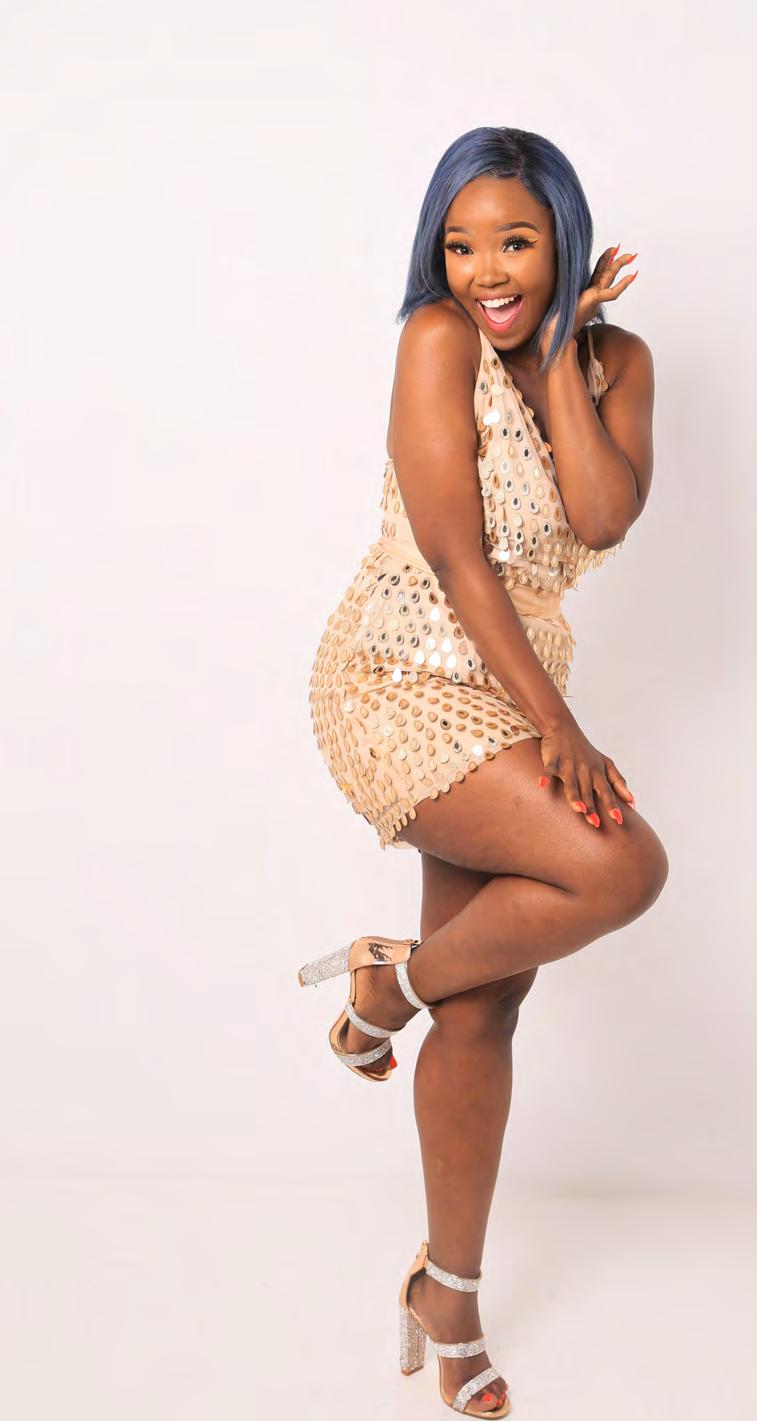
ights, camera, action!” said the director, and I wish they hadn’t because I froze and almost started crying.
When I finally mustered up some courage to say something in this nationwide presenter search, it wasn’t coherent. So much so that my audition didn’t even make it to their ‘wooden mic’ segment. They probably felt sorry for me and that’s why my moment – ‘hoping the ground will swallow you up that very second’ – didn’t make it to air.
Those 60 seconds felt like five hundred, six thousand, seven billion and – listen properly – a whole lifetime. And this harsh beginning to my television career reminds me of the journeys I hear about all too often.
Many people tell of how difficult things are in the beginning and how you have to push through to see the fruits of this fight you put up, to hopefully realise your dreams of success.
My experience in the entertainment industry has been exactly that, and this is what I tell all young people I get a chance to speak to: I don’t know of any hard-working person, who has continuously made sacrifices, who did not eventually succeed.
However, I’ve also seen that women seem to have to work just a little bit harder to be heard or valued. I’ve seen how women have had to say no to certain jobs because certain people wanted inappropriate favours, or how women lost out on jobs because someone felt disrespected because their advances were turned down. And this is not to say
that it’s one-sided, but I hear so many more women with these kinds of stories and it can be disheartening.
That said, it is definitely not all doom and gloom.
We’re at such an exciting place for women in just about any industry; women are becoming CEOs, heading up some of the biggest projects in Africa and are being trusted in more professional fields and within major decision-making bodies. I beam with pride every time I hear of a woman taking up a big slot at a radio station, or of our new acting group CEO at the [see page 30), as well as the head of content at the SABC both being women whom I admire and respect.
This is all so encouraging, but we still – always – need to address that which hinders the fostering of growth in this industry – such as the inappropriate favours mentioned above.
I remember once inquiring about an audition process and the man I asked casually told me I would need to think about what favour I’m willing to do for him before he could consider me.
To circumvent abuse of power –especially over young girls – we should ensure better representation on decisionmaking teams, and for people to hold each other accountable.
As more women are being given opportunities and ‘seats at the table’, we also need to ensure those same voices being given these positions aren’t being stifled and undermined – because then, what is the point?
WOMEN TALK ABOUT HOW THEY ARE SURROUNDED BY PEOPLE WHO DON’T VALUE WHAT THEY SAY. THAT IS NOT MY EXPERIENCE – BUT IF IT’S STILL HAPPENING TO OTHER WOMEN, IT MAY AS WELL BE HAPPENING TO ME, BECAUSE THIS IS OUR INDUSTRY.
Women talk about how they are surrounded by people who don’t value what they say. That is not my experience – but if it’s still happening to other women, it may as well be happening to me, because this is our industry.
So yes, there is much to fix, but I say all of this with great hope for the future –hope ignited by what we see now.
We see women in leading roles and executive producer seats; we see women securing multimillion-rand contracts and we see women feeling strong enough to stand up for what’s right. It’s incredible to see women blazing trails where there were none and showing us that what seemed impossible is in fact possible.
There is so much inspiration around us, especially in terms of women taking up space, and there’s always a woman waiting to encourage you and affirm your work.
In this entertainment industry, one of my biggest highlights is how we love to build each other and spur each other on. Help is always a DM or WhatsApp away and I can’t tell you how many women are always so ready to hear me out or give me advice.
Mentorship is one of the most powerful tools in any industry and I think it’s happening in the most beautiful way in our media space. I can’t wait to be a mentor
to many young girls one day, as many of the greats in our space are to me.
As the cliché with many things in South Africa goes: “We aren’t where we were, but we definitely still have a way to go.” There is headway being made, but as long as women who are speaking up for themselves are feeling like they need to still be heard, there is still work to be done.
At the end of the day, we are artists making masterpieces with big and little strokes across the canvas. We’re moving the paintbrush of our dreams in motions to yield the desired feeling of hopes turning into realities…
The first audition I attended for TV was an epic fail. However, my second attempt in front of the camera was met with a, “Zanele, I like you” from one of the judges, who is someone who still believes in me today and continues to encourage me. I went on to be the runner-up in that competition, finishing ahead of thousands.
The road may be difficult in the beginning – and yes, I speak of our individual journeys and the collaborative journey of wanting fairness for women in our industry alike – but as long as we stay the course, as long as we operate with the end goal in mind, having intention in our actions, we’ll see the fruits of fighting for a desired dream: whether it is in front of the camera, on the mic or behind boardroom doors – and in conversations at the tables we all want to have a seat at…
Recently honoured as one of the M&G’s Top 200 young South Africans, at 29, Zanele Potelwa is one of the youngest award-winning broadcasters in SA. A radio and TV presenter – at 5FM , on the lunch show, and SABC 1, on Selimathunzi – she recently joined SABC Sport as a presenter for their Netball World Cup show. She also founded The Zanele Potelwa Foundation, supporting young women in need.
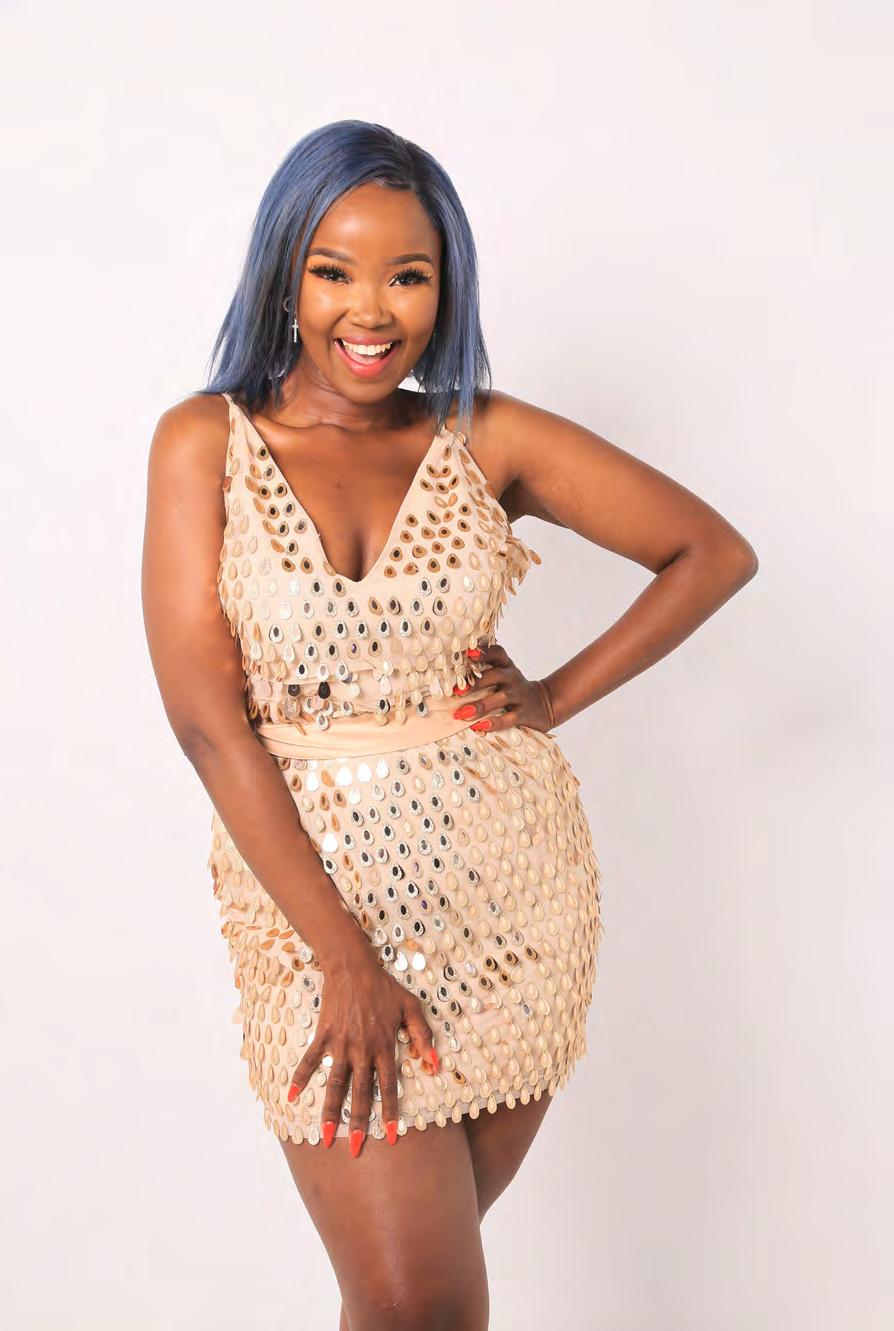
THERE IS HEADWAY BEING MADE, BUT AS LONG AS WOMEN WHO ARE SPEAKING UP FOR THEMSELVES ARE FEELING LIKE THEY NEED TO STILL BE HEARD, THERE IS STILL WORK TO BE DONE.
IN THIS ENTERTAINMENT INDUSTRY, ONE OF MY BIGGEST HIGHLIGHTS IS HOW WE LOVE TO BUILD EACH OTHER AND SPUR EACH OTHER ON. HELP IS ALWAYS A DM OR WHATSAPP AWAY AND I CAN’T TELL YOU HOW MANY WOMEN ARE ALWAYS SO READY TO HEAR ME OUT OR GIVE ME ADVICE.
Alungile Sixishe outlines the five guiding principles that shape and define her team’s culture.

As the CEO of Motherland OMNi, I take immense pride in leading a team dedicated to creating authentic and meaningful connections between brands and communities. At the core of our philosophy lie five guiding values that shape our strategy and define our identity.
Growth is more than just a buzzword – it’s a mindset. Embracing continuous learning and improvement, we constantly seek new opportunities and innovations to expand our skills and impact.
BE VOCAL
The company prides itself on encouraging creativity and independent thinking among its team members.
Trust is the currency that Motherland OMNi trades in, and we spare no effort in earning and maintaining it.
With accountability as a guiding principle, we take responsibility for the quality of our work, the impact of our actions, and the results we achieve.
Having found her voice, Andrea Slater raises it to encourage women to trust theirs.

When I started working straight out of high school (because university for who?), it was in a paint factory. I was a Girl Friday – yes, I’m that old –operating in a male-dominated company in a small town with even smaller mentalities. Like: ‘The 1950s called, they miss you’ kind of mentalities.
From there, I moved into more challenging roles in more progressive industries, thankfully. I was beautifully assaulted with the thinking and guidance of strong women with stronger opinions, and I spent a long time just soaking it all in, growing via osmosis. Later, I learned that not all men think women are idiots. That was nice, too.
Showing a small-town girl how to see things differently is one thing, but the real difference, the real reason I am where I am today, is that I was given permission to speak.
Making sure women are comfortable in their jobs has always been important to me because when you’re comfortable, you’re confident. And when you’re confident, you deliver exceptional work.
I’ve spent a lot of time trying to change how women position themselves in the workplace. I’ve worked with incredibly smart women, mentored those who were open to it, guided those who weren’t,
Finally, service is deeply ingrained in the DNA of Motherland OMNi. Our dedication to serving our clients, communities, and society at large is evident in our pursuit of excellence, professionalism, and integrity.
and still enjoy watching them all make incredible strides in their paths.
But not all smart women are naturally confident about their voices. As a result, the world around them is missing important views, opinions, and opportunities to think differently.
I’ve found that, in most cases, all these women needed was permission. Permission to have an opinion, permission to share it, permission (and safe space) to make mistakes, permission to say no. And then, ultimately, permission to not need permission at all.
If there is one piece of advice I’d give women wanting to lead in any industry, it would be that being a leader isn’t as much about leading the pack as it is about trusting and empowering the pack to speak up and lead itself.














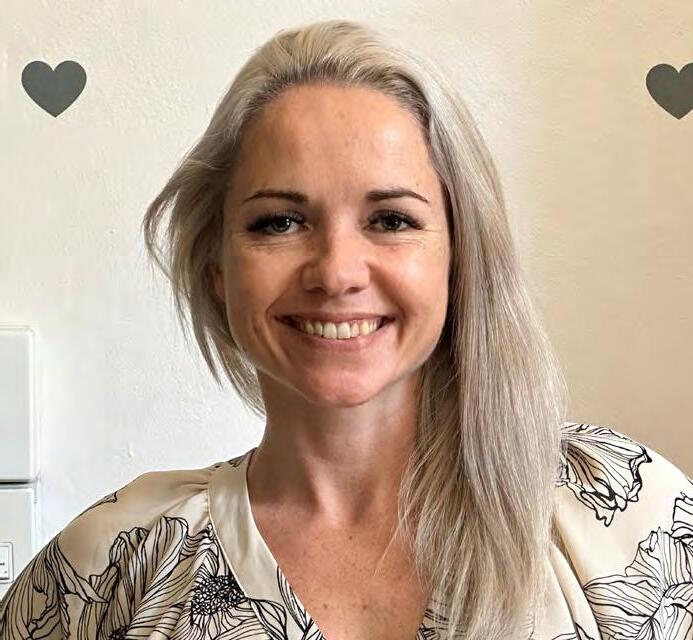
When I joined the media industry almost two decades ago, I had no idea about the gender split that made up this field. Now, after having worked at three large, global agencies, it is apparent to me that, from a purely number’s perspective, women outweigh men.
If Mad Men is anything to go by, men used to be at the forefront of advertising, selling their big, shiny ideas to clients while sipping on whisky, while the women sat behind closed doors, obediently tapping away on their typewriters, waiting for their next buying instruction.
However, as this industry has advanced and developed globally – and specifically in this country – women have forged ahead to become mentors, leaders, and visionaries in this field. As media has grown to become more strategic and less about just buying airtime to showcase the (often male-dominated) creative agency’s work, women have leveraged their expertise and taken a foothold in top positions within agencies.
Women are strategic thinkers, problem solvers, resilient and primed with an innate determination to succeed, which makes them excellent candidates for leadership roles and as media entrepreneurs.
In many cases, female-led agencies have been built from the ground up. South Africans have a strong spirit of entrepreneurship, and many individuals have seized the opportunity to start their own agencies and media businesses. South Africa has a unique landscape, which is an advantageous blend of global agencies alongside the independents.
And at first glance, the media agency landscape does look positive for women. According to the SheSays survey, conducted by Kantar in 2020, media strategists and planners tend to be 60% female, with media buyers sitting at around 70%.
However, only 32% of senior media strategists and 38% of senior media planners are women, suggesting that the leadership positions in traditional media agencies are still held by men.
This trend is echoed in the broader creative and advertising industry, with studies revealing women represent the majority of the workforce – but as “worker bees”. They are represented in many disciplines but rarely as directors or leaders. Women hold only 39% of senior creative roles (CCO/ECD/CD) and 43% of art director positions.
The latest Payscale survey supports this, showing there is still inequality in pay between men and women in the advertising and media industry – which reinforces the fact that women are often overlooked for promotions or leadership roles. This reinforces the need for more female entrepreneurs to start their own agencies without being reliant on promotions to leadership.
That said, I am lucky enough to have always been surrounded by inspiring
HOWEVER, ONLY 32% OF SENIOR MEDIA STRATEGISTS AND 38% OF SENIOR MEDIA PLANNERS ARE WOMEN, SUGGESTING THAT THE LEADERSHIP POSITIONS IN TRADITIONAL MEDIA AGENCIES ARE STILL HELD BY MEN.
female leaders in every agency I’ve worked in. Perhaps my confinement to the Cape Town industry provides me with a skewed view, but my personal experience shows a much brighter reality than the stats presented previously.
All the agencies I have worked for have been run by women in leadership roles, who have thrived in media and been the voice of new emerging trends and growth. I’ve worked with amazing female mentors who’ve overcome adversity and discrimination, while driving their businesses forward, all while raising families and maintaining a healthy work/life balance.
I’ve also seen colleagues’ incredible stories of success at the agencies I’ve worked at: women starting off as receptionists, then working their way up, firstly as juniors in their respective fields, all the way through to senior positions and leadership roles.
This is testament to a culture of empowerment and providing opportunities to those within the business. One of the key directives I had when taking on the managing director role at FAME was to emulate this philosophy through upskilling and empowering young talent as the future leaders of the agency.
Unsurprisingly, most of the senior clients in my career have been male, which often
makes the media strategist one of the few female experts in the room at round-table meetings. The SheSays study reinforces this viewpoint, with almost 65% of senior brand managers being male.
However, I have, for the large majority of my career, never felt that my opinion or expertise has been questioned based on my gender. I believe the dynamics of having strong female voices in a collaborative team has allowed us to produce incredible and exciting work to support our client’s brands.
I am reminded though, it is not always smooth-sailing being a woman in this industry. A few years ago, I worked on a global alcohol brand, with the client based in the UAE. He asked if he could speak to my boss, and when I mentioned that she was unavailable but would return his call as soon as possible, he rectified himself and said he would like to speak only to my male boss.
It was funny but shocking, and I think speaks volumes about how much more progressive South Africa is compared to other parts of the globe.
Sometimes though, as with all industries I’m sure, there is a darker side to the media industry. As a junior, and even further into my career, I’ve had to stand up to sexual harassment and inappropriate advances from men in authoritative positions. And the nature of this industry, where women are aplenty, meant as soon as these men couldn’t get their way, they would move onto their next target.
But as I’ve advanced in my career, I’ve personally felt less and less of this rot – either as a result of the #metoo movement allowing women to speak up against these individuals, forcing men to behave more appropriately, or from my own personal growth and strength.
Back when I was a junior, I was too scared to say anything for fear of losing
my job – this is definitely not something that I would be scared of today. Our industry, as with others, has made leaps and bounds in terms of protecting staff from discrimination and ensuring we have a safe and collaborative workplace.
Despite all of this, regardless of whether you’re man, women, or identify as non-binary, with all the latest buzz around AI, one would think our gender is irrelevant since we are all going to be replaced with robots soon.
My personal belief is that yes, AI could indeed fulfil our basic media roles and requirements, if we (and our clients) were satisfied with transactional and basic media outputs. But the magic of media comes from connection and creativity, and I don’t believe that this is where humans can be replaced.
When I studied media at college (many, many years ago before a Facebook poke existed), we studied Gordon Muller’s book, Media Planning – Art or Science? The answer then, and today, is undoubtedly both. Some of our best work has been created out of a gut feel or a risky leap into the unknown, and I believe that embracing AI will free up some of our time to allow even more magic and art to take place.
South Africa’s media industry is uniquely positioned to drive female empowerment, opportunity and growth. I see it on a daily basis and am reminded when I attend functions filled with so many incredible female leaders in one room. However, there is still a lot more work to be done to ensure women have equal opportunities to reach leadership positions. This can only happen through empowerment, upskilling and entrepreneurship.
I encourage more young women to pursue careers in the media industry, as I truly believe it is uniquely positioned to allow women to thrive and succeed in South Africa.
THE DYNAMICS OF HAVING STRONG FEMALE VOICES IN A COLLABORATIVE TEAM HAS ALLOWED US TO PRODUCE INCREDIBLE AND EXCITING WORK TO SUPPORT OUR CLIENTS’ BRANDS.
WOMEN ARE STRATEGIC THINKERS, PROBLEM SOLVERS, RESILIENT AND PRIMED WITH AN INNATE DETERMINATION TO SUCCEED, WHICH MAKES THEM EXCELLENT CANDIDATES FOR LEADERSHIP ROLES AND AS MEDIA ENTREPRENEURS.
Charis Coleman outlines why it’s time to move beyond mentorship – and leverage the power of sponsorship in the workplace.
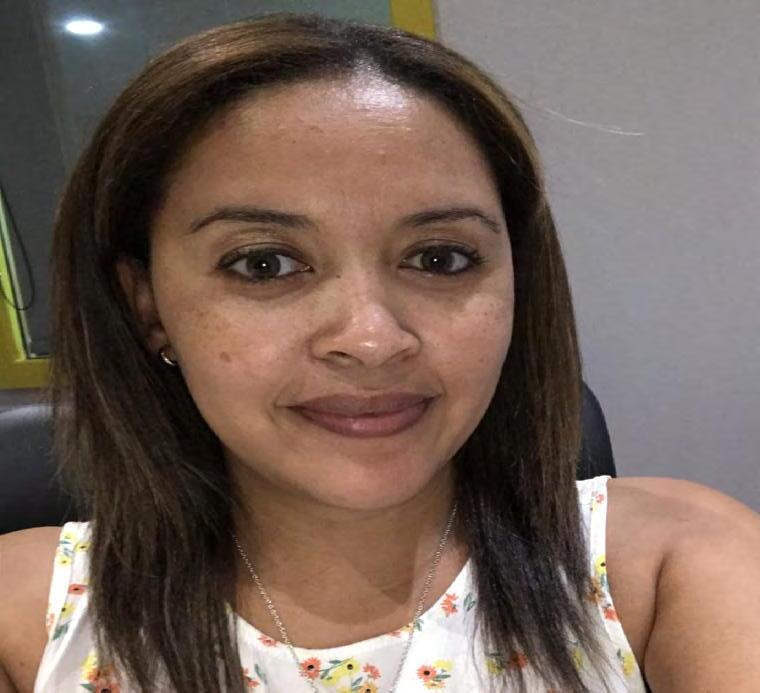
In the pursuit of gender equality and female empowerment, it is essential for women to stand together, uplift each other, and create opportunities for one another. In the workplace and especially in the competitive media industry, women acting as sponsors for other women can prove to be a powerful catalyst for breaking barriers and achieving success.
As acclaimed business executive and author Carla Harris highlights in her inspiring Ted Talk, ‘How to find the person who can help you get ahead at work’, sponsorship can be a gamechanger for women navigating the corporate ladder.
A sponsor, in essence, is someone who goes beyond the role of mentor by actively advocating for the advancement and success of their protégé, using their influence and network to help them rise in their career. While mentors offer guidance and advice, sponsors are the ones who put their reputation on the line, vouching for the capabilities and potential of their protégé, helping them gain access to opportunities that might have otherwise remained elusive.
For women in the workplace – and especially the media industry – acting as sponsors for other women can make a profound difference. It means acknowledging the unique challenges women face, understanding the need for representation, and actively working towards dismantling systemic barriers.
Shattering the glass ceiling: The glass ceiling has long been a barrier that has held women back from reaching their full potential in leadership roles.
By sponsoring other women, successful female executives can help shatter this invisible barrier and create pathways to success for the next generation.
Challenging unconscious bias: Unconscious biases can cloud judgement
and prevent women from getting the recognition they deserve. Sponsors can help counter these biases by promoting the achievements and skills of their protégé, making it difficult for others to overlook their talent.
WHILE MENTORS OFFER GUIDANCE AND ADVICE, SPONSORS ARE THE ONES WHO PUT THEIR REPUTATION ON THE LINE, VOUCHING FOR THE CAPABILITIES AND POTENTIAL OF THEIR PROTÉGÉ, HELPING THEM GAIN ACCESS TO OPPORTUNITIES THAT MIGHT HAVE OTHERWISE REMAINED ELUSIVE.Charis Coleman
Building a supportive network: The power of a strong professional network cannot be overstated. Female sponsors can introduce their protégés to influential individuals and provide them with access to career-boosting opportunities.

Leading by example: When women sponsor other women, it sets a powerful example for the entire workforce. It shows that women are not competitors but collaborators, working together to achieve collective success.
In her Ted Talk, Harris outlines crucial insights on how to find the right sponsor, and these apply perfectly to women in the media industry seeking sponsorship in the workplace. She suggests that women: Seek alignment: The ideal sponsor should align with the goals, values, and aspirations of the protégé. It is essential to find someone who genuinely believes in the potential and capabilities of the person they are sponsoring.
Track the record: A sponsor should have a successful track record in promoting the careers of their protégés.
It is crucial to look for someone with a history of advocating for others and helping them reach new heights.
Engage and earn: Sponsors are more likely to step forward if they see the dedication and hard work of their protégés. Earning a sponsor’s support means actively engaging with them, seeking guidance, and demonstrating commitment to personal growth.
Leverage authenticity: Women should look for sponsors who appreciate their authentic selves, encouraging them to bring their unique perspectives and skills to the table.
Pay it forward: Sponsoring others should not be an isolated act; it should be a part of a cycle of empowerment, where women who receive sponsorship pass this on and become sponsors themselves.
The wisdom shared by Harris reminds us that sponsorship is not merely about personal advancement, but also about building a community that thrives on collective success.
As women, let us stand united, break down barriers, and pave the way for each other’s success. Embracing the role of a sponsor is not only an investment in another woman’s future but an investment in the empowerment of women everywhere.
Charis Coleman is head of digital content at the MultiChoice Group . She has 19 years’ experience in the media industry covering print, radio, and digital.
At MultiChoice her key focus is on the management of the general entertainment digital properties and working with teams across Group Digital, South Africa, Rest of Africa and SuperSport to drive alignment on content strategy and execution.
EMBRACING THE ROLE OF A SPONSOR IS NOT ONLY AN INVESTMENT IN ANOTHER WOMAN’S FUTURE BUT AN INVESTMENT IN THE EMPOWERMENT OF WOMEN EVERYWHERE.
As a little girl from Athlone, born and bred on the Cape Flats, the sky wasn’t always the limit. The limit was making it through the month. These were the kinds of limits that young girls like me simply had to accept as part of our reality.
That was 20 years ago, yet not much has changed in our economy and our society for many people in South Africa. What has changed, though, is that little girl from Athlone, and her refusal to accept those stifling limitations of what was attainable.
My story isn’t unique, but rather reflective of so many stories of women today trying to reach beyond what our mothers and grandmothers were
BE DARING
exposed to. Women that may or may not look like me, but nonetheless are me.
After attending a prestigious Model C school, an opportunity that I still cannot comprehend, the main thing my mother ingrained in me was to work hard – this was non-negotiable.
At the time, I didn’t understand that one degree wasn’t going to be enough to stand out from the crowd or get my foot through the door, especially in a maledominated field. I completed my BA in Communications… then, also a BA Honours in Brand Management. Yet, it still wasn’t enough to be seen or employed. I applied incessantly and, well, you understand how the story goes...
Gofaone Modise pays tribute to SA’s first women media moguls and the enduring
It’s Women’s Month and there isn’t a better time to dive into the fascinating world of South African media and its unsung heroes: the extraordinary women who shattered barriers and left an indelible mark on the nation’s narrative.
As a young African professional woman, I’m truly inspired by their remarkable contributions, and I think it’s high time we recognise why media women should be seen and heard in South Africa.

Picture this: in the midst of the male-dominated 20th century, trailblazers like Nokutela Dube, Ellen
Kuzwayo and Ruth First fearlessly took the reins. They launched newspapers, radio stations and magazines – daring to give diverse perspectives a powerful platform.
Facing discrimination and limited opportunities, these pioneering media moguls refused to be silenced. They knew the importance of controlling the narrative –a lesson we can all learn from, even today.
By challenging the norms of their time, they paved the way for a more inclusive representation of South African society.
But let’s remember, media isn’t just a reflection of society: it’s a force that shapes opinions and influences the
I stumbled across an internship opportunity with Dentsu in 2015. One that had me walk through the door, which I am yet to exit.
What you may not gather from the unduly simplified paragraphs above, were the tears, tireless work, and time.
What got me through those arduous times were strong female leaders I have the honour of working alongside, who not only looked like me, but supported me to break through barriers.
In saying this, what are we, as the future female leaders in media trying to achieve?
Hard work, perseverance, grit, and ambition are simply not enough to break through barriers; creating opportunities, encouraging, and supporting young talent proves to be imperative in building the success of woman in media.
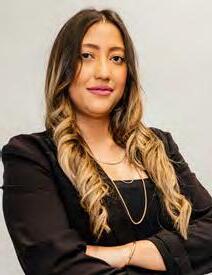
That way, many other girls who come from communities like mine, feel seen and hopefully inspired. With the right support and guidance they, too, can aspire to become a media director at the young age of 29.
masses. So, having women in the media ‘be seen’ isn’t just about representation; it’s about bringing a plethora of perspectives and experiences to the table, fostering a more empathetic and balanced society.
To wrap it up, recognising the contributions of the first media moguls in South Africa is beyond inspiring – it’s necessary. Embracing women in media and allowing them to shine is all about nurturing empathy, diversity, and progress. As a young professional African woman, I’m proud to stand assertively in support of empowering women in the media industry for a more inclusive and equitable South Africa. Let’s make it happen!
Beyond the barrier to entry lies the glass ceiling – which takes more than a degree or three to crack and shatter, says Candice Theron.
impact of these trailbrazers.Candice Theron Gofaone Modise

Mathe Okaba believes that closing the gender gap requires that we embrace our male allies in the industry.
Year after year, we decry the lack of women in leadership positions. Yet every August, we find ourselves conducting the same “Where are we?” discussion.
I believe it is vital to address the need for male involvement in accelerating change and taking accountability.
The South African advertising industry, estimated to be worth over R40 billion, holds its own creatively, on a global scale. But the reality is that it still operates as a boy’s club. Male allies must step up to help break down barriers and foster an all-inclusive culture that empowers women and ensures gender equality at every level.
Despite years of discussions about equality, representation, and diversity, men continue to dominate leadership positions in the broader marketing and communications sector.
While women constitute approximately 60% of the industry workforce, their presence in key leadership roles –especially in creative, IT, and strategy

departments – remains significantly lower. Let’s not even start the conversation about the persistent wage gap.
So, here’s what I expect from men: stop merely talking and start taking tangible actions. Yes, women must continue to fight – but, to bring about real change, this battle requires full commitment from all parties. Discrimination and a lack of diversity affect everyone, and it narrows our industry’s vision, reducing its relevance in a world where women make up more than half the population and significantly impact purchasing decisions.
However, the issue goes beyond statistics and business relevance. When gender equality is portrayed as solely a women’s struggle, it creates an “us and them” scenario; a battle of the sexes.
Stereotypes such as the “bitch boss lady” or demeaning jokes about women perpetuate a harmful culture that hinders progress. Men who deny the reality of

gender inequality often feel threatened by the notion of equality, believing that promotions should be solely based on merit.
While this is a valid aspiration, we must first level the playing field. Men should acknowledge the privilege they have enjoyed for generations and
recognise the subtle and not-so-subtle systemic prejudices that perpetuate gender disparities in society and the workplace. Silence is not support; it is enabling the problem.
Silence is not the only problem though. Merely paying lip service to the issue without taking meaningful action when and where possible, is even more detrimental. Lip service allows us to deceive ourselves and others into thinking that progress is happening when, in reality, it is stagnating. Lip service wastes valuable time and squanders the talents, knowledge, and experiences of countless women. I urge men to act, to stand beside women, and fight as fiercely for the rights of all people, which are one and the same.
Now, let’s confront an uncomfortable issue: that of sexual harassment. As we advocate for more women in decisionmaking roles, we must also create a safe and respectful environment that empowers all individuals and eliminates harassment. Addressing this issue headon is non-negotiable.
Sexual harassment undermines the very principles of equality and inclusivity we strive for, perpetuating power imbalances that affect women disproportionately.
The PwC Executive Directors Report 2022 on female representation in the broader corporate landscape serves as a poignant reminder of the need for change. While progress has been slow,
the focus on achieving gender equality at leadership levels is more crucial than ever. International developments show that women’s rights are under threat, and achieving equal representation in influential positions is vital to protect women’s voices and rights.
Moreover, research indicates that having women in leadership roles correlates with increased focus on environmental, social, and governance (ESG) issues. Female directors are more likely to recognise the link between ESG and strategy, as well as the connection between climate change and company strategy.
This shows that getting the gender balance right at the leadership level is not only essential for equality but also for creating a sustainable future.
At the 2022 Effie Awards South Africa Summit, Dr Alistair Mokoena delivered an informative keynote address emphasising the importance of effective marketing to drive shared inclusive sustainable growth in organisations.
Mokoena noted that Sustainable Development Goals and the 3Ps (People, Planet, Profit) should inform everything we do. If we, as an industry, are committed to chasing equality and sustainable development goals, Mokoena’s keynote should be one of the strategic objectives we all adhere to. His insights highlight the critical link between effective marketing and achieving shared inclusive sustainable growth within organisations, and it serves as a reminder of the role we must all play in aligning our industry with the principles of sustainability and responsible business practices – and, of course, the inclusion of women at the highest levels.
It is evident that the lack of female representation at the leadership level is not unique to our sector. The broader corporate landscape faces similar challenges. While women form
a significant portion of the workforce, their presence in leadership positions, especially in technology and digital disciplines, remains disappointingly low. And all of these issues often play out socially, in the work our sector creates. Multiple advertising execution debacles have plagued our industry, and they are glaring examples of how tone-deaf campaigns can arise due to a lack of diverse voices in the decision-making process. Driven by inclusivity and representation, campaigns created by diverse teams resonate better with target audiences. The recent SheSays study reveals that women are often underrepresented in true decision-making roles, leading to an increased risk of producing “tone-deaf” work. Again, why are we still facing this situation in our sector after so many years of trying to address it?
To bring about change, we must take advantage of every opportunity. We must, as an industry be seen as being completely open and welcoming, developing candidates that understand our work, and the impact it has on society and our clients. We commit to the annals of history the perennial view and reality (through solid and actionable objectives) within the ad industry that women hesitate to join or remain within it because they are wary of the testosterone-dominated culture and the glaring gender pay gap.
In conclusion, it’s time for men to actively participate in the fight for gender equality in the advertising industry and beyond. Silence and inaction only perpetuate the problems we seek to overcome. We need to create an allinclusive culture, driven by buy-in from the entire industry, to ensure that gender equality becomes a reality.
With committed efforts, we can break down the barriers and usher in a future where women’s voices are heard, respected, and represented at every level of our industry and society. Let’s take responsibility and make the necessary changes to pave the way for a more equal, diverse, and successful advertising industry in South Africa.
MULTIPLE ADVERTISING EXECUTION DEBACLES HAVE PLAGUED OUR INDUSTRY, AND THEY ARE GLARING EXAMPLES OF HOW TONE-DEAF CAMPAIGNS CAN ARISE DUE TO A LACK OF DIVERSE VOICES IN THE DECISION-MAKING PROCESS.
MERELY PAYING LIP SERVICE TO THE ELLIPSES: … ALLOWS US TO DECEIVE OURSELVES AND OTHERS INTO THINKING THAT PROGRESS IS HAPPENING WHEN, IN REALITY, IT IS STAGNATING.
Melissa Daniels enthuses about the power of connectivity when people are at the core of your passion.
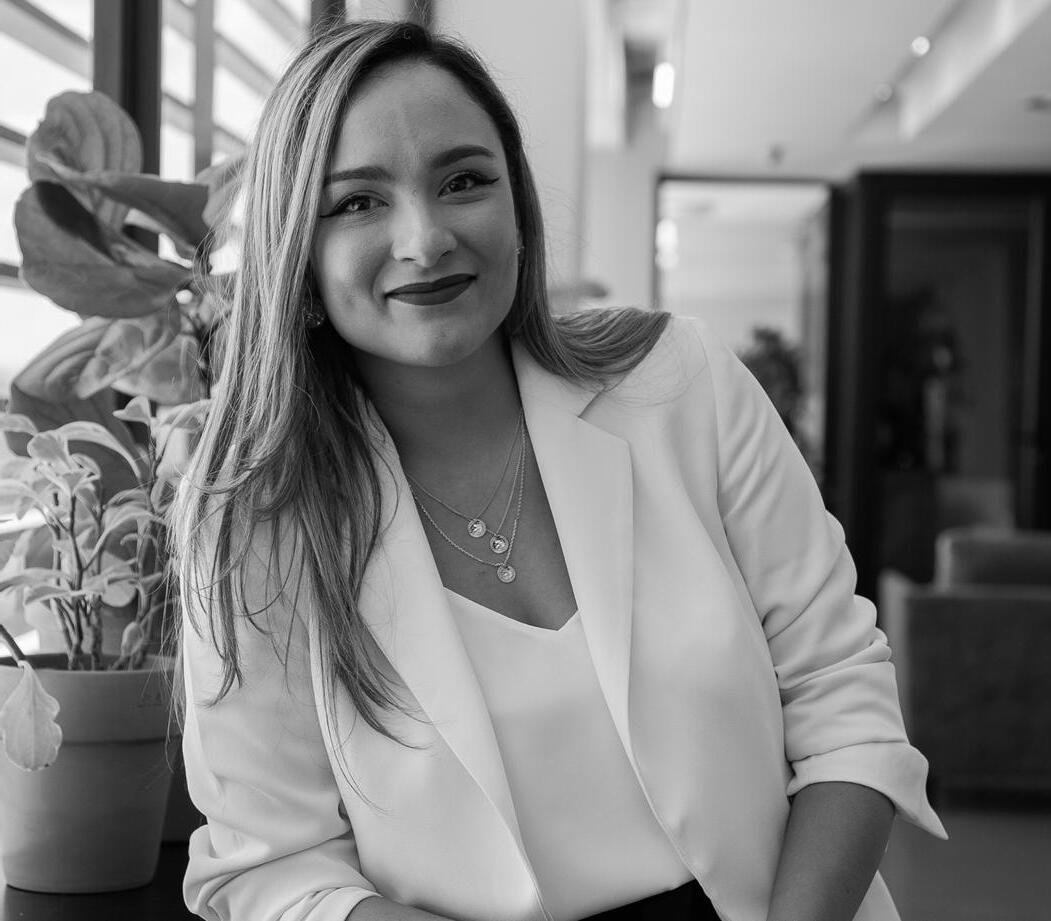
Passion marketing is what we obsess about as an agency.
“Huh?” is often the response we get when discussing it. Traditionally known as a sponsorship agency, like the world around us, we’re evolving and adapting to a changing audience landscape.
Sponsorship marketing is not what it used to be. Not all clients have the luxury of large budgets to sponsor major tournaments or teams, and simply branding a sports jersey is no longer cutting it.
Cue passion marketing: it’s ultimately about recognising that our audiences
have unique and multi-faceted interests – from Amapiano to cooking, mobile gaming to crocheting – local audiences have many, many interests, all at once.
That’s what a passion marketing agency specialises in. Understanding these nuanced passions and helping brands connect to these audiences authentically and effectively. Authentically, because that will help drive brand equity, ultimately pitching up for people and their passions in the moments that matter. Effectively, because any engagement needs to be measured for impact. We’re enthusiastic about driving impact as it means better
work for our clients and more engaging experiences for our audiences.
In fact, research is showing just how effective a passion marketing approach can be, with a 74% increase in loyalty when brands connect with customers through their passions. About 52% of customers become more valuable and 58% are more likely to buy products or services when a brand supports their passions.
A good example of these kinds of results is the work our M&C Sports & Entertainment team are bringing to life with the O2 rugby sponsorships in London – along with the many properties we’re leveraging for Nedbank and Telkom.
These impactful figures don’t necessarily require large budgets or major sponsorships. What they do require is
a deeper understanding of what your audience is passionate about, and how they engage with their passions. This allows us to craft bespoke end-to-end experiences that will resonate with these customers and add more value to how they engage with their passions, across multiple micro-moments rather than only large-scale interactions.

That’s also why we’re launching Passion Pulse. A first-of-its-kind research project into the nuanced passions of South Africans. This bespoke report will give us unique insight and behaviour into the many South African passions we’re aware of – and those we would probably never even guess. As well as the potential to engage audiences differently, it’s giving us a deeper understanding of they currently connect to their passions and what they’re looking for in the future.
This report, complemented by a team of individuals constantly curious about people’s passions, is what’s driving our evolution. As passionate as we are about the fans and audiences we engage with, we’re equally as devoted to what our team members care about.
Why? Our team members are ultimately the driving force behind these connections that we build and are often a part of the many audiences we address. The diverse group of people who make Levergy also fuel our knowledge, understanding and empathy for the people we’re trying to connect with.
At the core of it, we’re passionate about people. While we strive to create more meaningful connections for our audiences, we will continue to focus on the growth and development of the individuals we work with. Because they are the heart of our business and passions.
This is why I enjoy working with and watching the growth of young people. Their experiences, insights and view on the world often teaches me more than I
think I impart to them. As a leader, I have learned that the key to good decisionmaking is not always knowledge, but rather, understanding. Which I often get from the many young people in our team.
These are ambitious, talented individuals who have so much more than their professional skillset to bring to our environments. I am often in awe of not their views and unique perspectives on how to approach things.
We’re tapping into these perspectives by empowering our team members to become experts on various niche passion points. From the revolution in women in sports to photography and comedy – we have enthusiastic individuals who are deep-diving into these topics and collaborating with multiple partners to immerse themselves.
This is not just about understanding passion points deeper, but rather about upskilling individuals in our team who can ultimately teach the rest of us. Helping these individuals explore their own unique interests while growing in the workplace is not just about training and
development. It’s more about building the future leadership of our industry. Having the ability to explore your passions and be your authentic self can often create better leaders, as it teaches you to look at things with an understanding of diverse perspectives and a deeper knowledge of the people you manage and customers you engage with.
Ultimately, our approach to growing young talent is about encouraging a culture of learning and curiosity. We’re all open to understanding different viewpoints, learning new things and ultimately approaching our challenges in unique ways. We are hoping that this curiosity, culture and empowerment of our young leaders will help them reimagine our industry and creative product.
Melissa Daniels is the managing director of Levergy, an M&C Saatchi Sport & Entertainment group company and part of the M&C Saatchi Group South Africa. She describes herself as a serial connector – to people, information and new opportunities. Daniels is passionate about new technologies and the potential they provide businesses, brands and people to grow.
HAVING THE ABILITY TO EXPLORE YOUR PASSIONS AND BE YOUR AUTHENTIC SELF CAN OFTEN CREATE BETTER LEADERS, AS IT TEACHES YOU TO LOOK AT THINGS WITH AN UNDERSTANDING OF DIVERSE PERSPECTIVES AND A DEEPER KNOWLEDGE OF THE PEOPLE YOU MANAGE AND CUSTOMERS YOU ENGAGE WITH.
AS A LEADER, I HAVE LEARNED THAT THE KEY TO GOOD DECISION-MAKING IS NOT ALWAYS KNOWLEDGE, BUT RATHER, UNDERSTANDING.
In life, one common thread often holds us back from pursuing our dreams: the belief that we must wait for the ‘right’ time to start. But what if I challenged you to believe that there is no ‘right’ time and that the power to create your own opportunities and success lies firmly within your grasp?
You’ve done the hard work, learnt the skills, understood the opportunity and identified your niche and solution. So what are you waiting for?
Taking the step to start a business or a new venture can feel scary; it was for me. But the biggest thing most likely holding you back, is you. When going into business, especially in a fast pace,
ever-changing industry like public relations and social media, you will face doubt. Our industry can be hella cutthroat, but this can also act as motivation for you to fearlessly pursue your vision to succeed.
Look, we all know that success isn’t handed out on a silver platter; it’s earned by working hard, learning lessons, asking for advice, understanding that you might fail – but also by having the audacity to put yourself out there.
There are a few things to keep in mind when wanting to start your own thing, though:
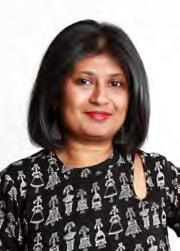
Determination, risk-taking, hard work as well as breaking barriers and biases is vital for successful leaders. But in these challenging times –especially the last two years – the right attitude is essential, as is making the right choices at the right time, and making the most of the opportunities that present themselves.
Female media leaders are often role models to the young women following them. This means leading by example, and being consistent, is critical. Staying humble and approachable is key to inspiring loyalty and bringing out the best in staff.
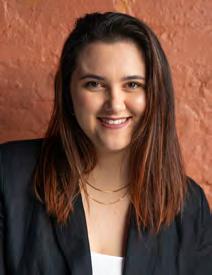
Being the best in your field is a continuous process. And this is one
of the most exciting and encouraging parts of being a leader in today’s business world. We never sit back and say: ‘I have arrived.’ We keep challenging ourselves, others, and the world to make a meaningful difference.
Having clear personal and professional goals is an important aspect of career and personal growth. It is even more important today to have your goals set right. Do not follow others’ criteria of success. Follow your own.
I like to foster a humble attitude, as well as a growth and learning mindset at the agency.
A good support system is crucial for any leader, as is creating a culture of helpfulness at the workplace. We all too
1. Opportunities don’t come to those who wait
2. Remember your network – you will realise how big it is once you tap into it. So, foster your professional relationships
3. The only constant is change – so make sure to reach out to mentors and your network to sense check and do the research to ensure you are as informed as possible
4. Deploy an ‘X-factor’. – I’m not referring to a skill that sets you apart from the crowd. I am referring to the small things that make a big difference for clients: be consistent, show up for your clients, be humble and open to feedback – there will be feedback – grow with your clients and celebrate their wins; you are a part of that! More often than not, providing high-quality service is what sets you apart. The world won’t wait for you, so stop waiting for permission – trust your gut and skills. You’ve got this!
Sjarn Swart is PR and social media founder of Mimik.
often under-estimate the value of the people and systems that support us in the background. Women, especially, will often not take the support offered, being the ultimate superwomen, we are.
An issue in today’s challenging climate is mental health and wellness. Taking help when needed isn’t a weakness, but a strength. I truly believe giving and receiving assistance will reduce the increasing anxiety in the workplace. Havas is the fifth largest communications group in the world. The agency has expanded rapidly in South Africa and Africa in the last three years, experiencing double digit growth year on year. This means the company’s diverse initiatives and programmes now support the African network and talent, underlining why it is a meaningful company to work at.
the country’s biggest agencies. In 2018, a single, compelling billboard brought me back into the industry, fulltime. The billboard was clever, sassy, humorous and impactful. I talked about this piece of work for weeks; I couldn’t shut up about it – and I knew I had to get back in the game, so to speak.
This time, though, I wanted a feature role in an agency that would help me create a positive, lasting impact. That would help me bring about transformation and change. So, the hunt began for the place to relaunch my advertising career.
After many meetings, engagements and conversations, I found myself at Ebony+Ivory. I walked through the doors, and I felt ‘it’. The agency was brimming with potential… it had everything that I wanted. And then, I met Paul Middleton. To segue, Ebony+Ivory is the oldest independent agency in South Africa and Paul’s father was the man who started it all. The legacy and sense of place is so compelling. Paul and I talked and he shared his purpose for the agency… to serve the society we are in. I was hooked! We had a common vison and purpose and that was the beginning of our partnership.
As a leader and director of an advertising agency, I have the privilege of influencing the gender gap that exists in our business and in our industry. It’s both a privilege and a responsibility to be able to say I have the influence to change its course or direction.
In media, and in particular advertising, there are many women in the sector, but sadly, a large number of these women are in lower-level positions, with limited opportunity to make real decisions and create impactful change. So, the women who have been entrusted with leadership need to be catalysts of change and positive influence.

My career in advertising has not been a linear affair, but advertising has always been in my blood. It grips me and intrigues me. As a child, I watched the adverts because in these one could see sneak previews into society. In fact, I enjoyed them more than the TV shows. I remember getting slightly annoyed when the scheduled programme started because I wanted just one more ad.
So it’s hardly suprising that advertising was where my career began. As opportunities arose and my career blossomed, I moved further from the sector, but kept in touch. I was, for a long time, a non-executive director of one of
My love affair with advertising was reignited; this time, with grounding, knowledge and a renewed sense of purpose. That purpose has grown and evolved into three ideals that are an intrinsic part of who I am – and that I am instilling in our agency – to ensure we are able to serve the society we live in. The three ideals, very simply, are:
• To be socially conscious
• To forge the path for women in leadership
• To pay it forward
I believe that, as female leaders, we need to use our voices boldly for transformative change and positive societal impact.
This awareness of the impact I have, and ensuring that it is positive, considered and mutually beneficial, is deeply engrained. I was raised in rural Eastern
Nombini Mehlomakulu has an ingrained awareness of the impact she has as industry leader – and strives to ensure it is positive, considered and mutually beneficial.Nombini Mehlomakulu
Cape – Sterkspruit, to be exact – where extended family living was a way of life. It’s impossible to have harmony in this setting without communal thinking, so I learned at a young age to be consultative and to consider those around me when making decisions.
My Tata always encouraged me to be bold and reach for the stars; my Mom, mamGcina, taught me to have my feet firmly on the ground by being involved in community development and social impact projects.
This approach has influenced my leadership and management style, the development and maintenance of my business and social networks and my approach to transformation and more importantly, inclusion. Inclusion that is meant for ALL regardless of colour, preferences, language or gender.
At Ebony+Ivory, we align to four values that ensure our social consciousness is front and centre in our culture, our work and our approach: Integrity + Creativity + Inclusion + Excellence.
The second ideal is quite specifically around helping women to develop into leadership roles – but it’s predicated on helping women to help themselves. The two burning issues I’m focusing on now are around education, and finding ways to enable women to stay, or re-enter, the advertising world after having children. Both are having a devastating influence on the number of women in leadership positions in our industry.
I have personally experienced the profound impact a good education can have on being taken seriously in business. I have always had a voice, but I also knew that I needed to have solid credentials behind my name in order to open doors which were literally closed for
me. I applied for a scholarship at Harvard Business School. It wasn’t vanity that drove the decision to attend Harvard; it was the quest for knowledge, a need to harness the best business skills and the confidence that this would bring me at the professional level. What I didn’t know was that I would gain so much more, including an alumni network that, to this day, is a meaningful group of people who add value to me and that I add value to, in return. The point is that qualifications give you a seat at the head of the table, and the confidence to make well thought-out decisions.
I am passionate about encouraging and helping the women I know, and those I mentor, to study further as their careers progress. This ongoing endeavour to learn has a multi-faceted effect on you as a person, your confidence, competence, ability to innovate and improve.
As an agency, skills development is a critical point on our agenda and is split into helping our team develop and expand their skills via our working hub, Hlumani, that creates learning opportunities for aspiring creatives, and in supporting a black-empowered development trust that helps to educate and support economically disadvantaged black women to become productive citizens and pillars of their community.
Another initiative I am extremely passionate about, is how we, as an agency and an industry, can help women to have a family without jeopardising their careers. This is something that corporates have taken seriously and are addressing incredibly effectively with child-minding services, extended maternity leave, and hybrid work options.
It’s something that we, as an industry, should be far more proactive in, yet sadly, for a creative sector, we are not being very creative in solving this issue. I believe the solution lies in collaboration, as teams, as agency collectives and as an industry body.
I was taught that if you are given, you must give in return. This concept of paying it forward, builds on my belief that favours are gifts and shouldn’t be returned but paid forward, in gratitude, to someone else in need. This idea of gratitude implies humility and a recognition that we could not be who we are or where we are in life without the contributions of others.
Helping others, and by extension, helping others to help too, inspires kindness, connection and changes lives. As an agency, we talk about the ‘+’, in our name as our guiding principle; to add value in everything we do. And we do, every day, strive to do that. For our clients, our team, our industry, our community and society.
It’s easy to get distracted and focus only on ourselves and our careers. My definition of success is a full life, not a great career. A great career just means you are good at your job, but a full life is one with purpose; one that can create a positive, lasting impact in your community and society as a whole – that’s what I’m striving for.
I hope these ideals will fall on fertile ground because every positive action has an impact and every impact creates a ripple effect, and it’s the ripples that change the world. So, while being seen is incredibly important, it’s time to be see and hear. It’s time to create some waves.
Nombini Mehlomakulu , a director of Ebony+Ivory, is responsible for the agency’s financial health, strategy development and client service. Her 28+ years of experience spans a broad client base including corporates and niched brands, providing her with deep knowledge in managing and marketing brands. Mehlomakulu is a Harvard Business School Fellow.
A GREAT CAREER JUST MEANS YOU ARE GOOD AT YOUR JOB, BUT A FULL LIFE IS ONE WITH PURPOSE; ONE THAT CAN CREATE A POSITIVE, LASTING IMPACT IN YOUR COMMUNITY AND SOCIETY AS A WHOLE – THAT’S WHAT I’M STRIVING FOR.
ANOTHER INITIATIVE I AM EXTREMELY PASSIONATE ABOUT, IS HOW WE, AS AN AGENCY AND AN INDUSTRY, CAN HELP WOMEN TO HAVE A FAMILY WITHOUT JEOPARDISING THEIR CAREER.
Jackie May turns traditional thinking on its head with a fashion-forward focus on sustainability.

Imagine kinder, fairer, inclusive, and nature-friendly futures. That’s not a question. Twyg, the online publication I founded five years ago, is in the business of imagining – as well as creating and facilitating – new futures. Yes, it’s a plurality of futures we need to imagine, since a plurality of people with differing needs and loves needs to thrive in the future.

For most of my almost 30-year career I’ve worked on the soft, middle pages – the ones that influence what people buy, watch, eat and read. These are the pages that have been influencing our toxic lifestyles and our hyper consumption, driving global warming, and widening the gap between rich and poor. But if these are the pages and stories that have been enticing people to buy and make fossil-fuelled cars and way too many polyester frocks, then these are the same pages that can entice people to change their behaviour.
Twyg’s mission is to flip the model of consumer magazine into creating inspiring and informative lifestyle stories, activations and events that drive positive behaviour change for a sustainable future. It’s doing what United Nations Sustainable Fashion Communication Playbook recommends storytellers and imagemakers do, which is: “help portray alternative models of status and success, decoupling identity from newness and recalibrating what is deemed aspirational so as to social proof a sustainable future.”
Twyg is neatly working towards SDG 12 Target 12.8: “By 2030, ensure that people everywhere have the relevant information and awareness for
I HAD THE DECEPTIVELY FANCY TITLE OF FOUNDING EDITOR OF A FASHION MAGAZINE WHEN IN FACT I WAS AN EXHAUSTED SOLOPRENEUR OF A DIGITAL START-UP WITHOUT A SALARY.Back, left to right: Ditiro Mashigo, Jackie May, Aaniyah Martin, Erica de Greef, Lesedi Shubane, Front: Masego Morgan, Renée Neblett, Khensani Mohlatlole and Megan Art.
sustainable development and lifestyles in harmony with nature.” You could say that we’re part change agency, part magazine – and, like most ethical media, we work for the public good.
Five years ago, there were very few publications on the same mission. There was Peppermint magazine in Australia and another in America called EcoCult. Nothing in South Africa, for South Africa.
Initially, the idea was to focus on all aspects of lifestyle: food, travel, fashion, film, and so on. But I quickly found that fashion was the storytelling medium that worked best for Twyg’s purpose. Its visual appeal is good for social media, and it is a great medium to explore an entire value chain, along which there are multiple points for interrogation and storytelling.
Like food, fashion is a complex system that needs to be closely examined. Cleverly used, its visual richness can cut across social strata and provide a gateway to influence sustainable consumption, lifestyles, and wellbeing at large.
If you know anything about fashion, you’ll know that it’s riddled with pollutants and other environmentally dodgy practices. You’ll know, too, that the clothing and textile industry was decimated by globalisation – but is flooded by extraordinarily resilient and creative talent. It involves farming, commodity markets, design, manufacturing and retail. There are different kinds of retailers: a handful of large clothing retailers operating in malls across the country and multiple small and independent businesses selling everything from cheap imports, street wear to hyper luxury via makeshift shops on pavement, boutiques, and Instagram. Additionally, there is the second-hand clothing trade: the legitimate vintage stores and the illegal bale trading: a shadow fashion economy.
I got stuck in and soon I had the deceptively fancy title of founding editor of a fashion magazine when in fact I was an exhausted solopreneur of a digital start-up without a salary. For a year I was on a mission without plan. I read, researched, learnt, failed and wrote – alone, without an editorial team to sense check my ideas and copy
edit my stories. Slowly, slowly I started hiring people to work with me: mostly they found me. When I realised that the platform might have potential to impact its audience, I hired a coach to help me grow and teach me how to sustain a non-profit organisation.
The first tasks were to create an annual budget, a lean and mean Excel sheet, and some serious grant funding and sponsorship proposal writing. An initial grant for a story telling project about circular design set us up to survive Covid-19. To help drive revenue, we launched the Twyg Sustainable Fashion Awards, and more recently, along with our Mauritian partner Imiloa Collective, we launched the Africa Textile Talks. For these, we sell sponsorship packages.
It’s a tightrope for us. We need to partner with brands who trust that we are doing the right thing for people and the planet. We need partners who share our values and won’t feel their corporations and organisations will be undermined by supporting fashion media that is advancing the Paris Agreement, Kunming-Montreal Global Biodiversity Framework and Sustainable Development Goals.
According to the UN, fashion communication needs to counter misinformation and greenwashing; reduce messages perpetuating overconsumption; redirect aspiration to more sustainable lifestyles; and empower consumers into their role as citizens to demand greater action from businesses and policymakers.
For organisations like ours that work on sustainability transitions, money is not readily available. What makes access to finance harder is that Twyg works at the intersection of fashion and sustainability, and not energy and sustainability. Well, not directly; all manufacturing requires energy.
That said I’m proud about the headway we’ve made as a business, albeit an NPC. We’ve recently opened
nominations for our fifth annual awards. The City of Cape Town is on board as a partner for our Africa Textile Talks, along with five corporate partners.
But I’m most proud about the findings of our first impact report, which was published in May this year. According to our survey, Twyg has caused 100% of readers to reflect on, and rethink, the impact of their lifestyle and fashion choices. It also found that Twyg’s content has taught 98% of our readers something they didn’t know before.
In an email interview about our impact, Deshayna Naidoo from the Green Cape wrote: “Twyg is the thought leader in the transition to a more sustainable and circular fashion industry. Through years of active knowledge engagement and dissemination, Twyg has become the first touchpoint to learn more about sustainable fashion and understand happenings in the fashion industry in Africa. Thus, Twyg plays a vital role in representing the strides made in sustainable fashion in South Africa and beyond”.
And Stefanie Swanepoel, founder and director of African Earth Rights, says, “Twyg, in its work, embodies change in action.”
What next: we feel the urgency to grow our reach to inspire and inform more people. Five years ago, we were casually concerned about global warming, now we are freaking out about global boiling. There is work to do.
Jackie May is the founder and editor in chief of Twyg and co-founder of Refashion Lab. She established Twyg in response to a need for compelling stories about sustainability and circular design. This is also based on her conviction that storytelling is a powerful tool for transformation. Twyg , a media, events and projects platform, has a strong focus on fashion, design and people. Before creating Twyg , she worked in various media, on various platforms, researching, writing and editing.
IF THESE ARE THE PAGES AND STORIES THAT HAVE BEEN ENTICING PEOPLE TO BUY AND MAKE FOSSIL-FUELLED CARS AND WAY TOO MANY POLYESTER FROCKS, THEN THESE ARE THE SAME PAGES THAT CAN ENTICE PEOPLE TO CHANGE THEIR BEHAVIOUR.


WHEN MANAGING A BIG TEAM, IT’S IMPORTANT TO LISTEN TO WHAT PEOPLE ARE GOING THROUGH AND NOT AUTOMATICALLY TRY TO FIX THEIR PROBLEMS ... I’VE LEARNT THAT BEING IN A LEADERSHIP POSITION SOMETIMES MEANS JUST LISTENING AND BEING A SHOULDER FOR THOSE YOU WORK WITH.
In moments like these you need to just embrace what’s happening and take life with a pinch of salt. Because then you get moments like when a presenter is overwhelmed and can’t hold back the tears because their mom surprised them by calling in and wishing them a happy birthday from across the country. These are the priceless ones and remind you why you woke up at 3am for work that day.
My journey in the media industry started at the ripe age of 21. I applied for an internship at one of the biggest morning shows in the country and, as luck would have it, they needed someone to assist the producer at that time.
I was immediately thrown into the deep end of television production and that’s how I learnt to swim through the fast pace of South Africa’s media industry.
Doing live shows can only be explained as a rush of adrenaline because, as much as you plan everything to the last second,
there’s almost always an element of surprise. This is mainly due to humans not being as predictable as we think they are, so you’re forced to constantly think on your feet.
For instance, showing up to work at 4am and finding out that your guest had a puncture on their way to the studio, so you’re forced to create content on the go to fill up that 15 minutes of airtime. Or how about inviting an artist to the show and finding out 20 minutes before their performance that they don’t know any of the words to their own song?
At the time, working for a company with many women in leadership positions motivated me, although it wasn’t necessarily the same at other media outlets. It had also become apparent that even though there were women in power, only 10% of the company had people of colour as leaders. This was deeply unnerving, so when I had the opportunity to hire co-workers, it became evident that I needed to start making a change from within. This is exactly what I did over the course of my time there and when I left, there was a slight shift in equality.
When moving to a new company, I made sure the next show I worked on had the same principles and values I wanted to see in the space. My move from a commercial to a community station was
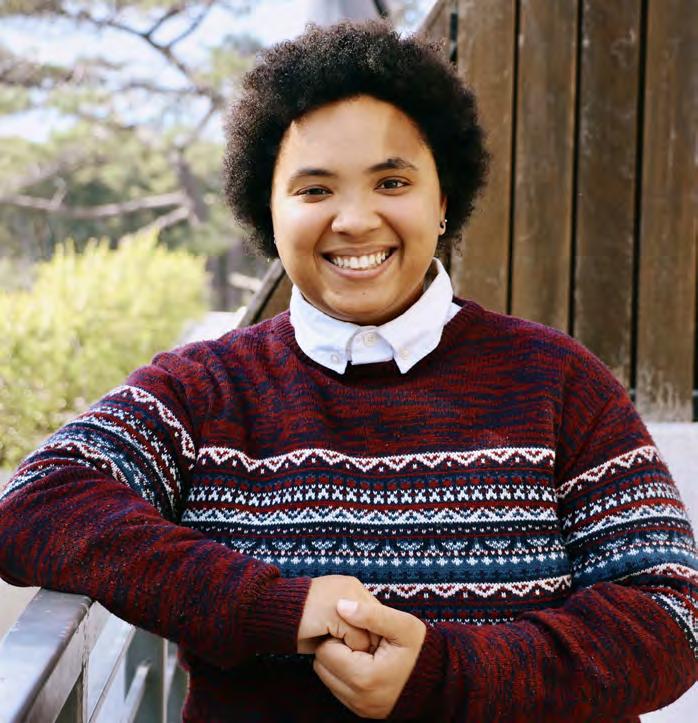
It’s always hard to leave behind what you know and challenge yourself in a way that makes you feel uncomfortable, says Tatum Ludolph, but it’s ultimately a rewarding experience.Tatum Ludolph
one that I didn’t take lightly. It’s always hard to leave behind what you know and challenge yourself in a way that makes you feel uncomfortable.
When I joined Cape Town TV, one of my main aims were to take the systems and procedures I had learnt and apply them to the shows I now produce. This was in order to take the channel into a new era and be part of that change.

It hasn’t been an easy road but one that has been more rewarding than anything I’ve experienced in my life. Nothing matches taking someone who had been bored and uninspired, doing the same job for the last couple of years and giving them an opportunity to do a job that they’ve only ever dreamt of.
And there’s no describing the joy of building a team who are so passionate about their jobs that you sometimes forget its work. Also, entering a space where community is at the heart of any project, has been a learning curve for me; knowing that someone at home is sitting and listening to your opinion, your interest, your idea of entertainment. It really puts into perspective the content and message you want to send out into the world.
Since joining the NPO, I’ve had hard times motivating people to have the same goal as me because everyone comes from different backgrounds and faces challenges you may never experience.
This has taught me when managing a big team, it’s important to also listen to what people are going through and not automatically try to fix their problems, which as a producer, I tend to do. I’ve learnt that being in a leadership position sometimes means just listening and being a shoulder for those you work with.
My film and television dream was to be in Hollywood making blockbuster movies and working on the best morning shows in America. Today, as I write this, my dream has completed a 360 shift.
All I want is to build good foundation blocks here in our country and uplift our people. Many industry professionals head overseas because that’s where the big money is – but if everyone leaves, who will fix our homeland?
That’s why I decided to start building good foundations in my home town and in my country. Not being a little guy in a big pool, but being the big guy in the little pool, where I’m able to make more of a difference. While I do one day hope to explore the rest of the world with my career,
I hope I can leave knowing that I’ve made a difference in creating more opportunities for young people in this industry.
I’ve recently launched a new show, The Camissa Show, which has long been a dream of mine. The aim is to showcase diverse cultures and indigenous knowledge systems in the Western Cape. It has also allowed myself and the crew to learn about social history and the legacy of apartheid, and share this knowledge with our viewers.
I also produce a live youth show called Ek Se, which promotes youth peer education on important social development issues such as substance abuse, gangsterism, teenage pregnancy – and doing this all in a fun, entertaining way. Everything that is put into these shows aim to inspire and encourage people to acknowledge their surroundings and help improve it in any way possible.
Being a producer is not an easy job, and each day comes with its own challenges – but it’s one of the most rewarding jobs you can do. There’s nothing greater than to see the smiles on people’s faces when they’re doing what they love, the joy in family’s eyes seeing their kids achieve their dream, learning about all the NGOs and NPOs that are on the ground uplifting our communities on a daily basis.
This doesn’t even cover all the good that is happening in our city. Sometimes it’s hard to see the positivity in this world when we are constantly fed news about all the violence and corruption that is happening in our country.
I am inspired and motivated by the words of tennis great, Serena Williams:
“To create the change, you want to see you have to do something, and that something starts with YOU! The success of every woman should be the inspiration to another. We should raise each other up. Make sure you are very courageous: be strong, be extremely kind, and above all be humble.”
Tatum Ludolph is a television producer for Cape Town TV currently working on Ekse Live and The Camissa Show. She graduated from City Varsity with a BA Degree in Film & Television. She’s only been in the industry for five years but has grown and adapted at a rapid pace. Her passion lies in documentary filmmaking and live television.
IT HAD ALSO BECOME APPARENT THAT EVEN THOUGH THERE WERE WOMEN IN POWER, ONLY 10% OF THE COMPANY HAD PEOPLE OF COLOUR AS LEADERS. THIS WAS DEEPLY UNNERVING, SO WHEN I HAD THE OPPORTUNITY TO HIRE CO-WORKERS, IT BECAME EVIDENT THAT I NEEDED TO START MAKING A CHANGE FROM WITHIN.
Nada Wotshela, SABC group chief executive officer (acting), is a media pioneer with a pedigree in broadcasting – and a track record of women empowerment, writes Mmoni Seapolelo.
Nada Wotshela’s appointment comes at a critical time, when the SABC is reinventing itself and reviewing its business model and revenue generating portfolio, together with its operations, to support the long-term viability of the public service broadcaster.
Wotshela has had an illustrious career over 25 years in the media industry, and gained valuable experience from various business units within the SABC. Having led the SABC’s radio portfolio as a group executive, she is well versed in the media landscape, and her deep understanding of the legislative and regulatory environment within the sector makes her one of the most outstanding women in the media industry.
She is also a strong advocate of self and women empowerment, and a believer in equitable opportunities for all. She serves
as a member of the Gender Equality Committee at the SABC and participated in the Statement of Commitment for Gender Equality in South Africa in 2020.
Her approach to business is characterised by an undeniably calm demeanour, yet striking presence in the boardroom. As group executive of SABC Radio since 2017, at the helm of the biggest radio portfolio in South Africa, if not in Africa, 19 radio stations that command 73% of the total audience share in South Africa and translates to 29 million listeners.

With this job comes a great responsibility of ensuring that key organisational projects are delivered, and this is a task that she does not downplay. Her focus at this juncture is to ensure that the SABC restores the confidence of investors, attracts new audiences through its plethora of platforms, while

maintaining the existing ones, as well as ensuring its workforce is motivated.
At the top of her agenda is the seamless migration of audiences to digital terrestrial television (DTT) as the analogue switch off is being concluded, as well as the planning for the successful delivery of South Africa’s upcoming national elections.
She has demonstrated great leadership and strong financial acumen throughout her career in the industry.
Born and bred in in the Eastern Cape, her path was written on the stars from the onset as her participation in the industry is not by luck, but an inherent calling: she drew inspiration from her late father, jazz pianist and renowned radio and television personality, Fezile Wotshela.
Wotshela cut her teeth in the industry as a presenter, producer, and newsreader for Ubuntu Community Radio in the erstwhile Port Elizabeth, more than 25 years ago,. Her drive to make a difference through media saw her consistently yearning for greater opportunities, as she strongly believed that will place her in a position to positively contribute to society.
She joined the South African Broadcasting Corporation (SABC) in 1999 as a junior announcer at Umhlobo Wenene FM. In 2003 she became the programme manager. She won the PBS Radio Best Programme Manager Award in 2004, which saw her jetting off to Dallas, Texas to attend the annual NAB Conference and a tour of some radio stations in the USA.
In 2005, she accepted the position of station manager for CKI FM where she was tasked with two unambiguous mandates: to fully integrate the station into the SABC and reposition and rebrand it into a youth radio station. Aptly, within two years she delivered trufm, complete with a prototype public service broadcasting radio structure and new programme line-up targeting youth.
Her passion to grow in the industry prompted her to move back to Umhlobo Wenene FM in 2008, when she became its first female and youngest station manager at the tender age of 34.
Among her achievements at the oldest isiXhosa broadcaster is the current corporate identity and the station’s first professionally commissioned on-air
imaging (Molo Kaloku by Sliq Angel). Wotshela also launched what later became the biggest radio show in South Africa with three million listeners per week: the station’s current breakfast show, better known as BEE.
In November 2011 Wotshela moved to Cape Town to become the provincial general manager for SABC Western Cape. In 2017, she was appointed as the group executive for SABC Radio, a position she held until her recent appointment as the acting GCEO, making her currently the longest-serving group executive at the SABC.
In the true sense of the word, she has literally worked in almost every position in the radio production value chain and corporate management within the SABC.
As the group executive for SABC radio portfolio, she has managed to navigate uncharted waters during the Covid-19 pandemic and the ensuing digital explosion – and came out stronger.

She has continuously applied a frugal approach in the business of radio, without compromising on the quality of the content delivery process. Her business tactics extended to the conglomerate diversification strategy that involved some radio stations adding new products that are significantly unrelated to broadcasting but with strong commercial and marketing value.
For example, Ukhozi FM and Umhlobo
Wenene FM radio stations produced merchandise which is intended to tremendously boost their brand image and profitability.
Her passion for women empowerment and excellence ensured that four of the SABC’s Radio business managers are females and two of those are leading South Africa’s biggest radio stations, Ukhozi FM and METRO FM.
Her quest to see women occupying the right spaces in the industry is not only realised in these managerial positions, but it is fulfilled in other areas of the business, such as the endorsement of campaigns like Ukhozi FM’s Winnie Mahlangu competition.
Although she is deeply rooted in the principle of equal opportunities for women in the media industry, Wotshela conversely also believes that positions should not be defined by one’s gender, but by their capabilities and expertise.
Not only is she at the helm of one of the continent’s biggest public service broadcasters, she is also striving for balance in raising two beautiful daughters in whom she is instilling the culture of selfempowerment in a society that requires women to be on their toes all the time.
Wotshela is also a health enthusiast who believes “you are what you eat” and a fitness fanatic who starts most of her days with a 8km run; time permitting, she also actively participates in local races to raise awareness of various social issues.
HER PASSION FOR WOMEN EMPOWERMENT AND EXCELLENCE ENSURED THAT FOUR OF THE SABC’S RADIO BUSINESS MANAGERS ARE FEMALES AND TWO OF THOSE ARE LEADING SOUTH AFRICA’S BIGGEST RADIO STATIONS, UKHOZI FM AND METRO FM.
HER PASSION TO GROW IN THE INDUSTRY PROMPTED HER TO MOVE BACK TO UMHLOBO WENENE FM IN 2008, WHEN SHE BECAME ITS FIRST FEMALE AND YOUNGEST STATION MANAGER AT THE TENDER AGE OF 34.
It is an exciting time to be leading a company. Irrespective of their size, all businesses are going through very similar dynamics and mind shifts,
writes Vineel Agarwal, Africa continent CEO of Havas Group
Havas, the fifth-largest communications group in the world, has expanded and grown rapidly in South Africa and Africa in the last three years. As the Africa continent CEO, I take immense pride in all that we have achieved as an agency and team.
To be a successful leader, especially as women, we tend to call out determination, risk-taking, hard work and breaking barriers and biases as some important behaviours. All these remain true, but it takes a lot more to be a leader in these changing times, especially over the last two years. The right attitude is a must, of course, but making the right choices at the right time and making the most of the opportunities presented to us, despite the challenging times, is equally important.
As someone said, “What is luck? It is nothing more than the marriage of preparation with opportunity.”
So here are my five pieces of advice as you navigate the current times:
We often underestimate the value of the people and systems that support us in the background. Especially as women, we often do not take the support, being the ultimate superwomen we are. Or we do not spend the time, money and energy in building such support because we tend to keep going without stepping back and finding the root cause. I urge all women to value and nurture family support, their parents, spouses, kids and friends. We thrive as leaders when we have strong support to carry us forward.
I see young women putting careers first and relationships or marriage later. There is no right or wrong way. However, remember that tackling life’s challenges as two people is a lot easier than alone, especially today.
Working in a family-owned business such as Havas, the support ecosystem is a huge plus and differentiates us from many other corporates, for which I am grateful.
With increasing pressures and demand to perform (and overperform), we find ourselves questioning our knowledge and decision-making and skills. We don’t always have the answers, not even the most experienced of us. My advice to all young leaders is not to fret, but turn to a colleague or mentor in the workplace for help. It is painful to see youngsters experiencing so much anxiety and stress, but not reaching out for help.
I firmly believe women are inherently talented help-givers and draw satisfaction from having helped someone. Yet we don’t automatically do so in the workplace until someone asks. Let’s be more forthcoming. Give and take help. This will drastically reduce the increasing anxiety we are seeing among the youth.
Havas is committed to the health and wellbeing of employees, with initiatives such as Havas Minds in place. However, individual support for each other is irreplaceable.
More often than not, we pursue financial goals or career growth, or status, yet all these are measured by society and the outside world. We need to work towards what brings happiness and then start bringing in more positives and eliminating the negatives in our lives.
It is of the utmost importance today to have your goals set right. Gone are the days when owning a house was a measure of success and wellbeing. Do not follow others’ criteria for success. Follow your own.
At Havas, with programmes such as NextGen and FemmesForward, our aim is exactly that. To help young leaders find their north star, their work style, and identify what makes them unique leaders.
As a female leader, you are looked up to by many. Chances are that you are also a role model for many. Stay humble. Stay approachable.
In a changing world, keeping your strength, being consistent and leading by example are critical
behaviours that go a long way towards achieving success.
Havas’s philosophy of Meaningful Brands starts with ourselves. Building meaningful talent and teams requires leaders to uphold meaningful ideas and values.
The media and communications industry evolves so fast, known formulas that worked yesterday don’t work tomorrow. We are creators and also consumers at the same time.
The more we, as leaders, keep a learning mindset, the more we foster a culture of growth in our teams. In a changing business environment, you need to know your stuff well. While you know the fundamentals, there is something new to learn each day.
Havas University drives this growth mindset, gives all Havas people a reason to believe, and provides the learning agenda at all levels.
Being the best in your field is a continuous process. And this is the most exciting and encouraging part today. You would never sit back and say, “I have arrived”.
You will keep challenging yourself and the world to make a meaningful difference.
This is sponsored content.
Havas is an integrated communications network that brings together all its expertise under one roof. Havas Johannesburg follows this Village model, where the agency offers one unified vision and purpose.
https://za.havas.com/
https://havasmedianetwork.com/

WE NEED TO WORK TOWARDS WHAT BRINGS HAPPINESS AND THEN START BRINGING IN MORE POSITIVES AND ELIMINATING THE NEGATIVES IN OUR LIVES
There I was, in a tiny storeroom, surrounded by old projector reels, yellowed paper in open crates, and one ominous-looking lunch box. I perched on a shelf, plugged in, positioned myself with difficulty and switched on the machine. “I don’t remember it being this loud,” I nervously thought. But there was nothing to be done. The electric breast pump did her thing. It was a relief, less painful and more familiar than it was two months ago, when I first took her out of her shiny, new packaging. A long half-hour later, I was done. Shirt back on, machine stowed away and off I strode to the Ray Alexander, the room in which our press conferences at the City of Cape Town were held. Channelling the memory of Ray herself, the Latvian South
African who dedicated most of her adult life to workers’ rights and equality, I sat in one of the plush faux leather chairs, watching the Mayor’s worried face at the head of the table, surrounded by her staff, City engineers and politicians.
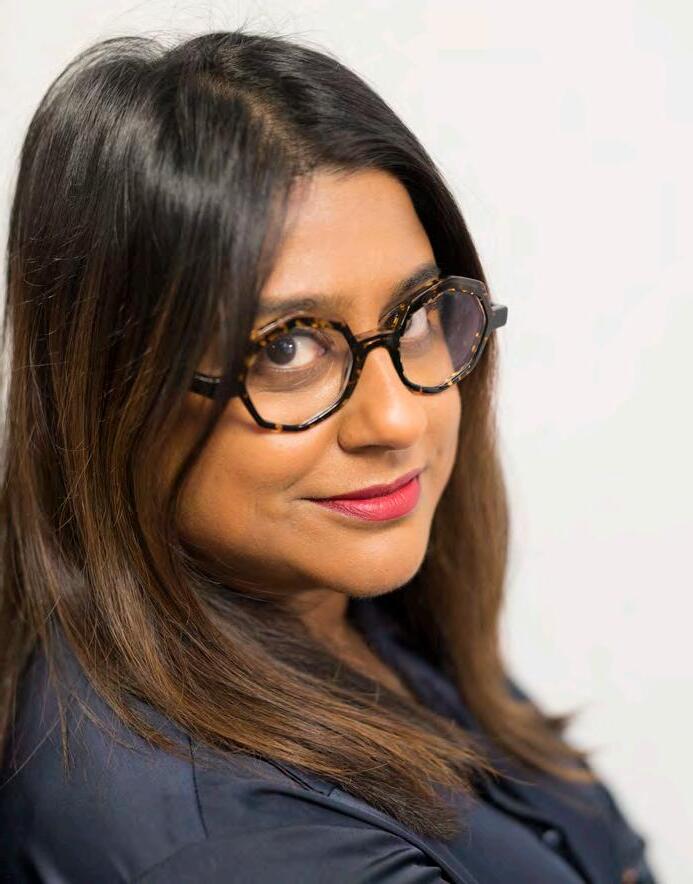
It was 18 January 2018, the day I had come back from four months of maternity leave and 17 days after I had turned 40. It was also the day that the City intended to announce Day Zero, the predicted day when the taps would run dry following a year of the worst drought in a century. The preparation for how that announcement would be made two hours later began in earnest. I was the spokesperson for the City and it was my job to field questions from journalists. Playing catch up, I listened intently as differing opinions were
voiced on the tone of the announcement –should we highlight the imminence of Day Zero or our collective potential to avoid it? – and edits to the press statement and the digital presentation.
In all that activity, I knocked over the bag at my feet containing the precious 110ml of milk I had managed to squeeze out from my ever-reluctant breasts. Anyone who has used the term ‘there’s no point crying over spilt milk’ has never had the misfortune of struggling to feed one’s baby the natural way. Those of us who have, will understand why I felt suicidal for a split second and why I couldn’t contain the dismayed squeak that escaped my lips as I bent down to inspect the damage.
And there my efforts were, all over the bottom of the bag, about 10ml salvaged in the ill-secured storage bag. I straightened up, tears glistening in my eyes at the guilty realisation that Eila would have to drink formula again, a fact that elicited much judgement from some mothers at the Mummy Class.
And then I started to worry about more immediate concerns. What would I say if someone noticed the wet patch on the floor? What if the bag dripped as I picked it up to leave? Where could I discard the storage bag without giving my secret away? I was consumed by worry and guilt. But why? Looking back on that incident, I can’t believe how silly I was. I hadn’t done anything wrong. I hadn’t broken any work rules. I could have grabbed some tissues and wiped up the mess, explained to anyone who asked that I’d spilt my expressed breastmilk. My story didn’t have to be as personal as I thought at the time.
Fifty years after ‘the personal is political’ was shouted out at public demonstrations, here I was still not wanting to be seen.
Priya Reddy is no longer in hiding – and determined to ensure that women in the boardroom are seen and heard.
BEING SEEN, IN ITS BROADEST SENSE – BEING ACKNOWLEDGED, LISTENED TO, TRULY HEARD – IS THE SUREST PATH TO SUCCESS AND FINDING A COMFORTABLE SPOT AT THE PROVERBIAL TABLE FOR ANY WORKING WOMAN.
Being seen, in its broadest sense –being acknowledged, listened to, truly heard – is the surest path to success and finding a comfortable spot at the proverbial table for any working woman. When I experienced utter devastation about my spilt milk, I was not seen. But I was not seen because I did not speak. Sure, one can look at the societal reasons why environments are created where women don’t feel safe to be seen in moments like these. But I have had a privileged enough life, and I was a senior enough official, to have owned the moment.
And while I can’t turn back the hands of time I can help create a professional environment where no woman need feel like she has to hide from her womanhood: menstrual mishaps, hot flushes, leaky breasts… If they happen in the boardroom, during an interview or on stage, so what?
When I first found myself at the boardroom table, mostly around people much older, paler, maler, more experienced and, maybe, more clever than I was, I used humour as a coping mechanism. I wanted them all to like me. I’d crack jokes – mostly at my own expense – to cover up the anxiety I felt and to hide the monster that is imposter syndrome.
Once I became more experienced and more confident in the quality of my work, my management style changed. I’d been listening for years to confident men who took charge, were listened to and respected. These men, even those younger than me, never showed any sign of self-doubt or insecurity in their positions as leaders. I would admire them from afar, taking furious mental notes about how to take charge and own the room. How to be seen.
And so, phony that I was, I began emulating my own warped version of these men. I became a leader who was decisive, often uncompromising, aggressive, when I thought I needed, to be seen. But imitation is exhausting and not sustainable.
It’s been about two years since I finally found the leader in me. I have led the municipality through a number of crises in what is widely regarded as the best-run municipality in the country. I have built up a team of excellence, men and women who represent the best of public servants. We have been innovative, responsive and have broken the mould on what government communication in South Africa needs to be.
We achieved many wins and have worked through, with competence,
our failures to be better. And I have done this with a feminine leadership style: leadership that encourages participation and collaboration; that creates a culture of inclusivity and safety; where empathy is a strength, and compassion leads to greater productivity.
My understanding of a feminine leadership style is the opposite of a top-down approach. It’s not following the well-trodden path of masculine, male leadership, but building a new path.

This path closes the gender gap in a purposeful way and creates clear and respectful boundaries. It celebrates diversity as a value add and not a value compromise. It knows that kindness leads to better staff retention and that validation brings out the best in people.
To be unapologetically female, to throw the ladder down, to speak and think with clarity and demonstrate vulnerability, not as a weakness but as a necessary tool of improvement – this takes effort and constant vigilance.
It’s easy to slip back into the old ways. But we owe it to ourselves, to the ones that threw the ladder down for us, to the giants of 1956 on whose shoulders we sit…to demand to always be seen. And I owe it to the me that spilt her milk and cried over it.
THESE MEN, EVEN THOSE YOUNGER THAN ME, NEVER SHOWED ANY SIGN OF SELF-DOUBT OR INSECURITY IN THEIR POSITIONS AS LEADERS. I WOULD ADMIRE THEM FROM AFAR, TAKING FURIOUS MENTAL NOTES ABOUT HOW TO TAKE CHARGE AND OWN THE ROOM. HOW TO BE SEEN.
I HAVE DONE THIS WITH A FEMINE LEADERSHIP STYLE: LEADERSHIP THAT ENCOURAGES PARTICIPATION AND COLLABORATION; THAT CREATES A CULTURE OF INCLUSIVITY AND SAFETY; WHERE EMPATHY IS A STRENGTH, AND COMPASSION LEADS TO GREATER PRODUCTIVITY.
Just like cottage cheese and Barbiecore, the consultant is having a moment, explains Roxanne Manning.
While the term ‘consultant’ can lend itself to ambiguity, it generally refers to a professional who specialises in a particular niche, skill set or field. They’re typically engaged to swoop in and fill a gap that exists within an organisation, driving a particular outcome.
In a media and marketing context, we’re suddenly seeing the self-employed consultant gain prevalence – and prestige. In this world, a consultant may specialise in one specific field; more often, their currency is those highly coveted ‘transferable skills’. They might projectmanage, make processes more efficient, or provide strategic insight or guidance. They could offer a range of services crammed under one umbrella, such as content creation, social media management, copywriting or PR. They may be a lone ranger, collaborate with other specialists or agencies, or even lead teams of their own.
So why now is the consultant gaining popularity? Let’s look at…
THE RISE OF THE CONSULTANT
Personally, I am quarter-past done talking about Covid-19; what I am interested in are the social movements it had a hand in. One of these was the Great Resignation –the global “I quit” phenomenon that also gained some steam locally, at least within certain environments.
Anecdotally, this is supported by discussions I’ve had with business leaders who cite their current number one stressor not as the economy or load shedding (though they’re always up there), but rather: the retention of their top talent.
Experts are adamant that this movement is linked to a desire for greater worklife balance and the reality is that many high-performers are leaving their cushy corporate jobs or the #agencylife for self-employment.

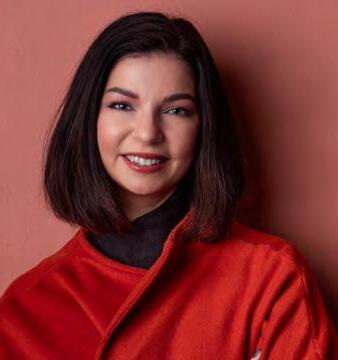
The general sentiment seems to be, “Why would I work for someone else when I can consult – on my own terms – make more money, and not have to plead with my boss for the 15 days’ leave owed to me each year?”
Often, it’s less about money and more about freedom and flexibility. And this is a compelling currency in an era that came off the back of those Unprecedented Times when people were forbidden from doing much of what they loved. And when you lose predictability, stability and security overnight, you might just develop a taste for the unknown.
That’s the supply side. The other factor is driven by demand on the client side, and it stems from the hit-or-miss nature of the traditional agency model (from where many consultants emerge).
At its best, a good agency will bring its clients some of the cleverest, most creative minds in the country, and the kind of harmonious collaboration between disciplines that results in real impact, award-winning work, and most importantly, effectiveness.
At its worst, an agency – perhaps faced with shrinking marketing budgets and talent leaving their employ quicker than
BUSINESS LEADERS … CITE THEIR CURRENT NUMBER ONE STRESSOR NOT AS THE ECONOMY OR LOAD SHEDDING (THOUGH THEY’RE ALWAYS UP THERE), BUT RATHER: THE RETENTION OF THEIR TOP TALENT.
you can say “Loerie” – might fail to deliver real bang for buck. Staff churn in agencies trends high (five years at one employer is a quarter-decade in advertising years) and senior talent is often spread thin. Your business could end up chronically under-resourced. You might feel that the only person who responds to your emails is the well-meaning junior whose preferred method of communication is GIF.
In larger agencies, agility can also be challenging, with multiple layers of internal processes and approvals. And while these are ultimately designed to manage a complex workflow and protect both client and agency, they often have the unintended effect of stifling on-the-fly social relevance –a necessity in the age of online.
When this kind of frustration is felt by clients, it often puts the entire agency model in question (albeit unfairly), all of which might start to make the consultant look like the more attractive option to work with. And while they may indeed add real value to your business, there are T&Cs that you should be aware of too.
First the upside. A good consultant brings passion. This is not to say that those working at an agency or full-time employees won’t be passionate. But a consultant is generally someone who has stepped out on their own and they’re now seeing the direct link between their efforts and financial reward. Their livelihood depends on their energy and drive. This means that they will go above and beyond for you, as their client.
Secondly, if you’ve done your research and engaged a consultant at the top of their game, you will have constant access to someone senior who can guide you. Often, the very same senior who, while at the agency, you only ever saw in a handful of your higher-stakes meetings.
On the downside, consultants generally come at a steeper cost. When it comes to hiring a consultant vs. an employee, a
good consultant will cost you significantly more per hour than an employee, though you won’t necessarily want or need a consultant on board permanently or fulltime. You also won’t need to be responsible for their annual leave, sick leave and so on, which also has a price attached.
This means that there’s likely to be less resource ‘wastage’ and a far lower risk of non-delivery. A consultant must show results otherwise the contract is terminated – no disciplinary needed.
And while the consultant might be pricier than a full-time employee, they’re generally cheaper than an agency, with all its layers of specialist fees that cover the division heads, senior strategists, creative directors and just about everyone who touches your account.
Depending on who you hire, engaging a consultant may not line up with your transformation strategy, and so might not be a viable long-term solution for your business, which must also be considered.
Finally, they’re generally an agile and lean operation. This has pros and cons. They may not have the resources, full skill set, or scale you need to pull something big off. But even if they cannot replace your agency, they might be able to fill a gap or function that your agency cannot. For certain projects or tasks, this might be just what you need.
For those considering leaving employment and heading into the land of consulting, there are also some important things you should think about.
Some of the very best consultants I have worked alongside have earned their stripes in either corporate or agency; they’ve done a decent chunk of time in employment, been exposed to great leaders, new ideas, worked with different personalities and refined both their technical and soft skills. They have a good professional reputation and established a network, meaning that when they leave
the security of employment, they’re more likely to become a hot commodity.
The best consultants display commitment, drive, and great work ethic. Because, while consulting might bring you better work-life integration, the reality is that if you’re chasing success, you’ll still struggle to find true work-life balance, because the work will always need to get done – regardless of what’s going on in your personal life.
And while as a consultant you might not need to ask anyone’s permission to take time off, there’s also no paid sick, annual or maternity leave, subsidised medical cover or cushy retirement packages that come part-and-parcel, meaning that you’ll need to plan your finances and time-off very carefully.
You will also have to take your learning into your own hands – on your own, you might not have access to leaders who will mentor you, or colleagues who will ideate with or inspire you. Selfemployment can get lonely, and those who work better in a team environment might not deal too well with the idea that as a consultant, the buck stops with you. Results are a must, otherwise, you’ll find yourself out in the cold.
Having said that, being a consultant brings many rewards. Working on diverse projects and with different clients brings its own learning and growth opportunities. You’ll have the luxury of choosing who you work with and the accounts and projects that add value to your life from a financial or fulfilment perspective. And when it comes to your earning potential, your only limit is the number of hours you want to work in a day.
And this freedom, flexibility, and financial reward, once realised, deserves more than a moment.
IF YOU’VE DONE YOUR RESEARCH AND ENGAGED A CONSULTANT AT THE TOP OF THEIR GAME, YOU WILL HAVE CONSTANT ACCESS TO SOMEONE SENIOR WHO CAN GUIDE YOU. OFTEN, THE VERY SAME SENIOR WHO, WHILE AT THE AGENCY, YOU ONLY EVER SAW IN A HANDFUL OF YOUR HIGHER-STAKES MEETINGS.
A CONSULTANT MUST SHOW RESULTS OTHERWISE THE CONTRACT IS TERMINATED –NO DISCIPLINARY NEEDED.
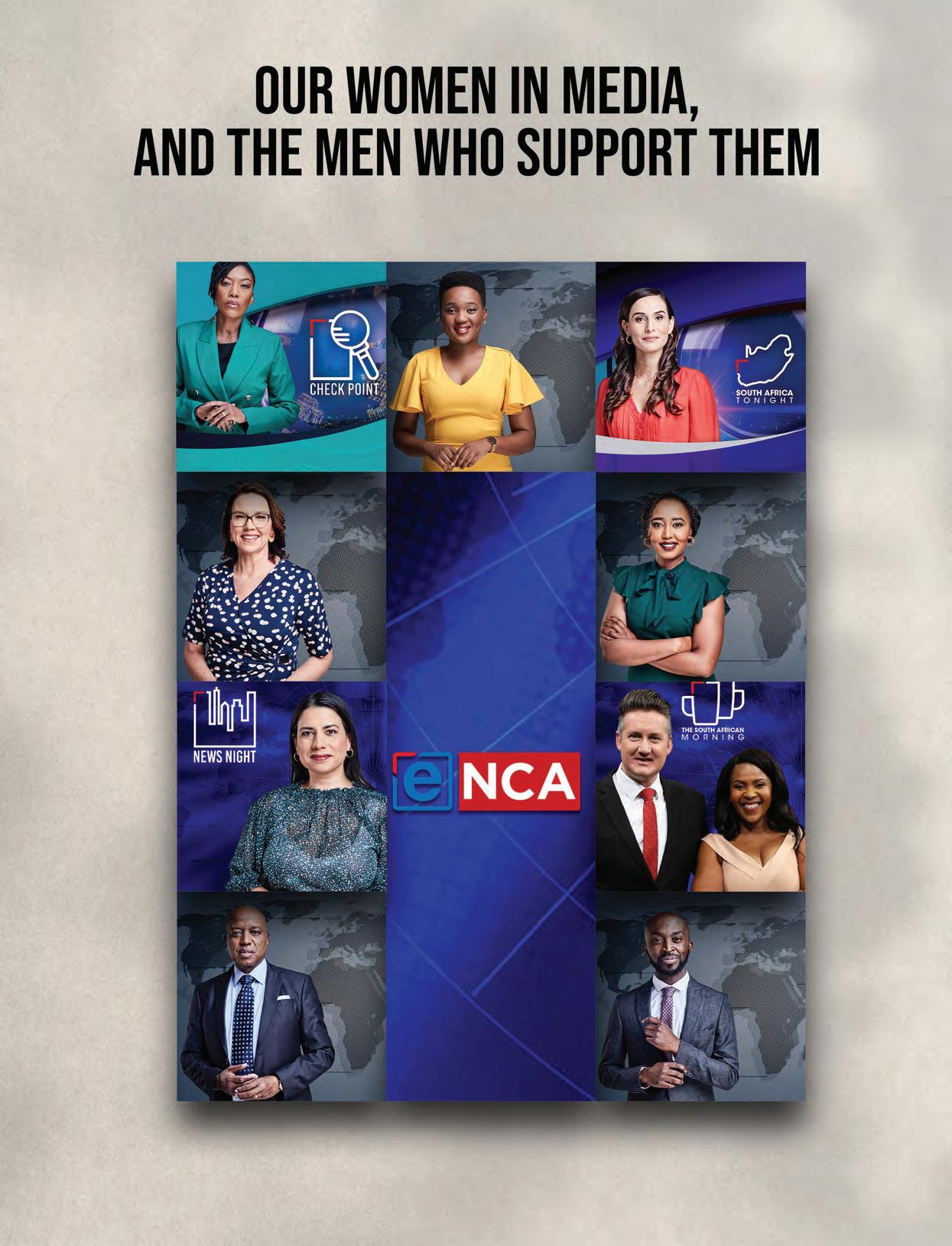
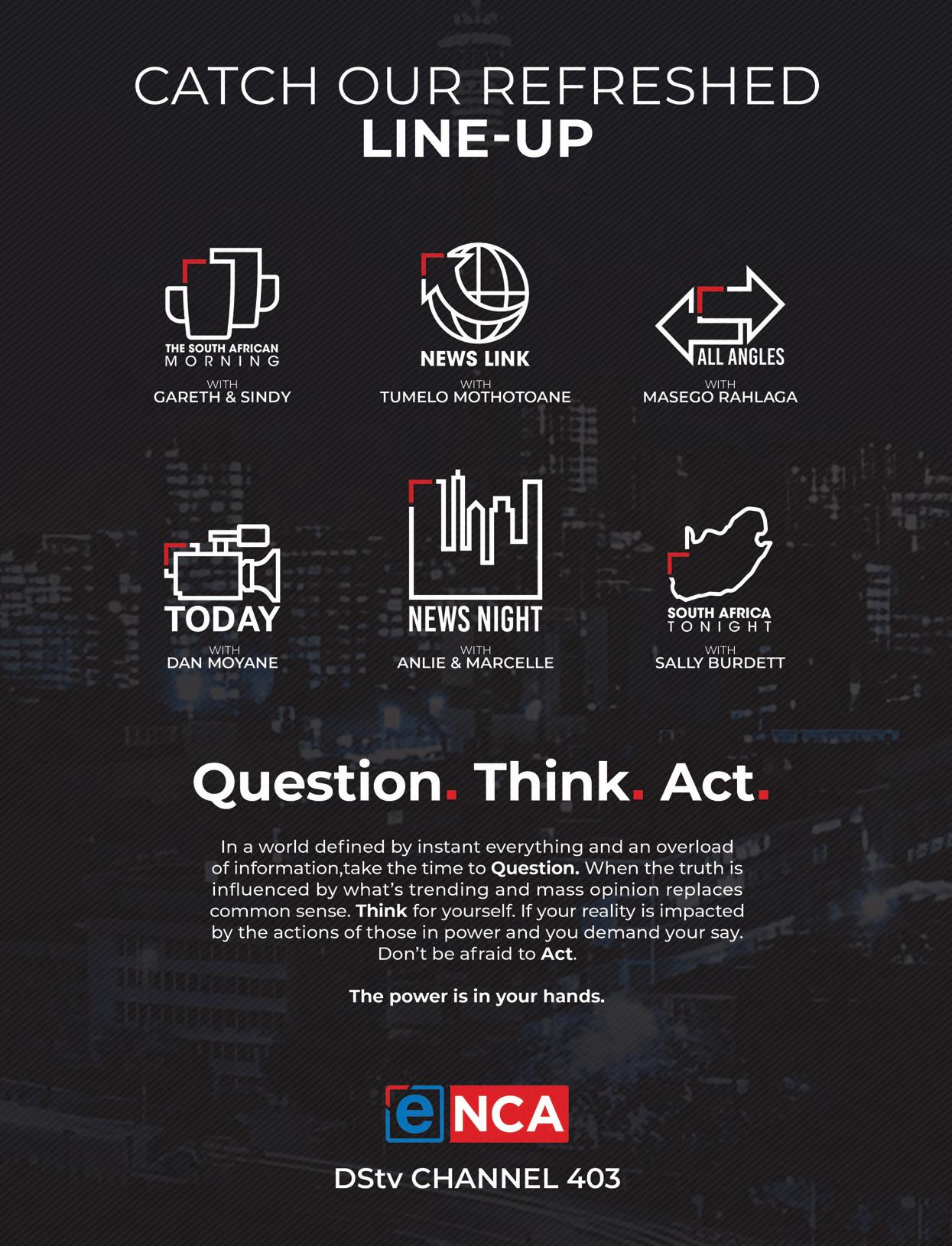

Michelle Kirby shares the most valuable lessons gleaned from three decades – and a range of roles – within the broader media industry; they’ll set you up for life.
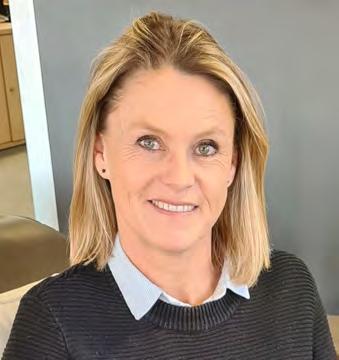
My path into the media industry wasn’t a result of chance or coincidence; it was a targeted pursuit driven by passion and intention. As a young adult, I was wholly fascinated by the world of media, and my heart was firmly set on a future at the South African Broadcasting Corporation (SABC).
The dream was so vivid and palpable that one day, while my father and I were driving past the SABC building in Auckland Park, I declared to him that I would work there someday. Not as an unsure prediction, but as a rock-solid promise to myself.
When the opportunity to fulfil that prophecy eventually surfaced, I didn’t
merely grasp it; I embraced it with all the gusto and fervor of a long-cherished ambition coming to fruition. And as the famous saying goes, “the rest is history.”
Starting at the bottom of the ladder as a production assistant for TV1, 2, and 3, I found myself under a producer who seemed less than enthusiastic about his job. However, I saw this not as a setback but as a golden opportunity. I made the most of it by taking on responsibilities beyond my job spec.
Whether it was pulling tapes from the library, running midnight edits, or ensuring our promotional material made it to air, I took the initiative. The satisfaction of seeing my efforts materialise into on-air content was a sense of achievement I had never felt before.
Throughout my tenure at the SABC, I committed to leveraging every opportunity to learn, grow, and develop my skills and knowledge. I devoured information on various aspects of the media industry, from marketing, public relations, promo production, to events and activations.
The organisation was a veritable incubator of talent and expertise, and I was surrounded by some of the best minds in the field. One individual who left an indelible mark on me was Ken Varejes; his depth of experience and knowledge transformed him from a mere colleague into a valuable mentor, instrumental in shaping my professional journey.
Venturing out from the confines of consumer advertising, I found myself in the realm of sports broadcasting – a new and exciting world bursting with opportunities. I had the distinct privilege of participating in landmark projects like launching the Super10 Rugby series in South Africa in 1992.
Other career highlights include orchestrating the transportation of 250 people to the 1992 Olympic Games in Barcelona aboard a chartered Boeing, managing the TopSport boma during the Grand Prix at Kyalami, and hosting numerous events around the 1995 Rugby World Cup. The decade from 1990 to 2000 was an exhilarating period of my career. It allowed me not just to rub shoulders with the likes of Muhammad Ali, Archbishop Tutu and countless sports personalities as well as both local and international film stars, but also to learn from my experiences and their wisdom.
The life-changing event of becoming a mother to identical twin boys brought me the realisation that career success was but one facet of life. Despite my successful professional journey thus far and me following several planned life adjustments and achieving some major sporting goals set for myself, motherhood posed challenges I had not anticipated.
The early days were a whirlwind of sleepless nights and constant ups and
downs while raising twins. I found myself questioning my ability to manage this tremendous responsibility. It was during these trying times that my supportive husband stepped up to share the burden.
Together, we successfully navigated the rollercoaster of parenthood, eventually relishing the sight of our boys growing into incredible young men who achieved both academically, and on the sports field – making us exceptionally proud parents throughout their school career. Those very early days of rearing children taught me the importance of stopping to appreciate life’s fleeting moments and the value of living in the present – a lesson I now apply not just to my personal life but also to my career.
As my media career progressed, I embarked on a new chapter with e.tv, a network teetering on the precipice of a significant decision: to make or break. They chose to make it, and I found myself privileged to be part of a team that transformed e.tv from a new and struggling channel into a successful broadcaster.
As group head of marketing and communications, I was surrounded by talented individuals, one of whom was my direct line manager, Bronwyn Keene-Young. Her unwavering commitment to fostering growth and development in women within the company left a lasting impact on me and I am extremely grateful to her for the countless opportunities she created for me, the valuable lessons she taught me and for forging the most amazing journey during my eight years at e.tv.
Life’s tragedies have a way of causing us to reevaluate our priorities. The untimely death of my brother-in-law was such a moment for me. I decided to take control of my destiny, leave my job, and set off on an adventure, climbing Mount Kilimanjaro.
Upon my return, I channeled my experiences and skills into my entrepreneurial venture: an event company. Since then, life has taken me on an enchanting ride filled with new places, opportunities, clients, and experiences.
There have been highs and lows – like the challenging Covid-19 pandemic, which brought our industry to a standstill for two years. But the ride back up, the reinvention, and the rebirth of my business in July 2021 were equally exciting. If given a chance, I wouldn’t change a thing about my journey. Each experience has been instrumental in shaping me into the person I am today.
One of the most significant lessons I’ve learned is the importance of kindness. Having found myself on both sides of the service delivery spectrum, I am constantly aware that it takes no extra effort to be kind to everyone with whom one comes in contact.
It is not so much about not being arrogant and obnoxious, but rather focusing on the other side of that coin and actively seeking to make the days – and even the lives – of the people that surround us just a little bit easier. It takes very little extra effort to be nice even when having tough business conversations.
I am fortunate to do what I love each day and to be surrounded by amazing people who inspire me. Remaining curious, constantly asking questions, and being open to learning is vital because there’s always something new to learn.
Amid all this, the most important lesson is; JUST BE KIND!
Each of these six lessons is a steppingstone that has shaped my life and career. My experiences and lessons learned might be unique to my journey, but their underlying principles are universal. Whether it’s seizing every opportunity, cultivating an attitude of gratitude, remaining humble, appreciating life’s moments, persisting through challenges, or practicing kindness, these lessons are invaluable not only in our professional lives but also in our personal lives.
I COMMITTED TO LEVERAGING EVERY OPPORTUNITY TO LEARN, GROW, AND DEVELOP MY SKILLS AND KNOWLEDGE. I DEVOURED INFORMATION ON VARIOUS ASPECTS OF THE MEDIA INDUSTRY, FROM MARKETING, PUBLIC RELATIONS, PROMO PRODUCTION, TO EVENTS AND ACTIVATIONS.
ONE OF THE MOST SIGNIFICANT LESSONS I’VE LEARNED IS THE IMPORTANCE OF KINDNESS … IT TAKES NO EXTRA EFFORT TO BE KIND TO EVERYONE WITH WHOM ONE COMES IN CONTACT.
As I write this, we have been celebrating Women’s Month, a time dedicated to honouring the accomplishments and contributions of women around the world, across all industries.
As someone active in the advertising industry, I know that, for years, representation in the advertising industry has been skewed; it has long been dominated by male voices, leaving women with limited opportunities to lead and make an impact.
However, times are changing, and the paradigm shift towards gender equality is gaining momentum. Today, women continue to demonstrate their talent, creativity, and resilience, and are reshaping the landscape of outdoor advertising.
I for one, have been fortunate to witness and be a part of the remarkable changes taking place within this dynamic industry. From battling stereotypes to challenging outdated norms, women like me are breaking boundaries and leaving an indelible mark on the world of outdoor advertising.

Barely a year ago, my job title didn’t exist in my company. Neither did our entire influencer marketing team, nor any of the 12 positions now filled with talented women.
Grown from a somewhat cryptic email and conspiratorial side-eye from my director, the existence of this team was an idea, a glimmer we could do something great, something different, something better, in an industry that feels both oversaturated, and still like the, wild west.
Fast forward 12 months and, despite being a founding member of the Women Plagued with Self-Doubt Club (email me to get one of our limited-edition T-shirts), the team has exceeded the initial idea, and then some. In our first year we have worked with clients as diverse as social
media and tech giants, to iconic global beauty brands; much-loved FMCG products to international broadcasters. Our results have consistently exceeded industry and platform benchmarks, and we’re completing award entries as I type.
How did we do it? Well, the official answer would be something along the lines of “it’s been a true masterclass in what can be achieved when you combine strong, female leadership and a workplace culture that’s ready – and willing – to listen to your big ideas”.
But the vulnerable, from-the-heart answer? It’s about having a team who believes in you, even when those days of self-doubt seem never-ending.
This journey has shown me that as much as female leadership has a large
As the founder of Esona Communications – a dynamic media solutions company that specialises in outdoor advertising, branding and communications – I am proud to be part of the Black Billboard Owners Alliance (BBOA). The BBOA is one of the organisations that are actively working towards change, equality, and inclusivity.

As an organisation, we are changing the narrative by promoting diversity and inclusivity within our ranks. There are two remarkable women within this alliance, both media owners who have broken barriers and shattered stereotypes within the industry.
With this, The BBOA is sending a powerful message to the advertising world, that gender diversity and female leadership are not just buzzwords but a foundation of progress and success.
part to play in business growth and opportunities, it’s the colleagues you work with day-to-day that can have the biggest impact. The ones who see you (sometimes) at your best, but most often – at your worst – and support you regardless. That’s company culture. That’s vulnerability, support, and opportunity – and that’s what we’re trying to grow.
So, here’s to maybe, just maybe, believing in ourselves just a little. After all, you’re good enough. You’re probably even over-qualified… but let’s start the day off humble.

There has been a detonation of generative artifical intelligence (AI) programmess and discussions leading the share of conversations for marketers, media and the creative fraternity.
Is it making it easier for this group to collectively make data-driven decisions, boost to optimise campaigns and thereby improve ROI?
Marketers are embracing where AI can assist them in reaching the right audience at the right time. There is a deep enthusiasm to adopt all that AI has to offer marketers –but marketers also seem uncertain about their technical capacity to use and lead with this technology to steer their agency counterparts to “reach the right audience with the right creative message at the right time”.
The media agencies have had the potential to improve their monetisation of audience exposure to enhance personalisation so that churn can be mitigated, leading to better ROI. In media, AI has already been providing baseline media plans from the current planning technology the industry has been using for many years to effectively build reach and frequency. The agility at which these plans can be developed allows time for “strategic battery power” to be generated for more
Dashni Vilakazi leads The MediaShop and is an accomplished professional steeped in business, marketing, and corporate strategy.

Having spent over 20 years as a leader in international and local companies, Vilakazi has cross-functional project initiation and management experience. She assimilates new and complex environments to process commercial gains through innovative and novel solutions in implementing exponential improvements across sectors in financial services, FMCG, telecoms, quick-service restaurants, retail, and beverages.
She has a Master’s in business cum laude and has lectured at the AAA School for Advertising and at the Red & Yellow School in Cape Town. She is also a thought leadership public speaker and co-hosts a radio talk slot with Michael Avery on Thought Leading Marketing Trends on Hot FM and Fine Music Radio.
transformative ideas that meet insightful trends and ultimately some innovation peppered in. Who needs some additional time to initiate innovation and transformative strategies?
Moving onto the creative generation of creative assets for brands, there has been interest from a leading internet search engine to offer a generative AI creative solution to produce creative work for advertising campaigns. Does this mean we can instantly provide clients with copy and call-to-action creative adverts from the click of a button?
Social media selling or social selling has been an impactful platform to help advertisers sell. It connects the user or potential customer directly to the storyline a brand wants to tell. That level of resonance can only support brand awareness, engage and ultimately drive sales through social media platforms.
AI assists this process of social selling through its ability to learn how data stories can be strung along. It uses the data from social media audience’s behaviour to help the campaign deliver the best headlines, words and images in posts that lead to the desired engagement the brand seeks. It can also explore new audiences and trends based on sentiment analysis. An analysis that trawls and analyses digital text to establish if the emotive tone of the message is positive, negative or neutral. Which brand does not need that service 24/7?
Businesses are using algorithms that allow for a better understanding of consumer needs and pain points with AI-based solutions to speedily transform customer needs to deliver the best solutions.
AI has played a key role in all forms of sales strategies, from predictive analysis of customer behaviour to cross-selling and upselling prospects. The consumer’s response has been positve of how AI has helped them make the right cost-effective decisions during an e-commerce transaction. Do consumers appreciate how AI helps them save more and get more? Connect with The Mediashop at www.mediashop.co.za
This is sponsored content.
Sturae Hickley’s career trajectory – from an uncertain future to head up digital in one of the world’s largest media agencies – offers invaluable insights for work and life.

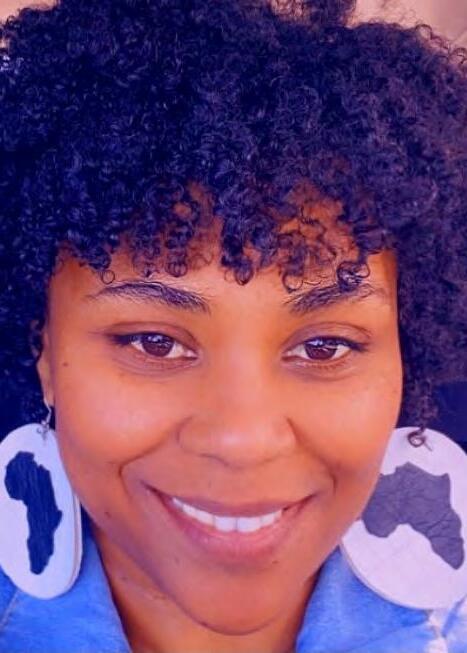
Growing up, I was uncertain about my future and lacked clarity on what career path to pursue. In the ’90s, it seemed like becoming a lawyer or a CA was the popular choice, so I followed the trend without confirming whether it truly aligned with my abilities and passions. As I embarked on that journey, it became evident that I lacked the necessary high school qualifications to make it into university. I was rejected by all universities in South Africa.
After being rejected, I found myself still unsure of my calling. I made the unconventional decision to take a fouryear gap year, which turned out to be a transformative experience. During this time, I had the privilege of being part of Youth for Christ (YFC), an NGO that instilled invaluable values in me. Through extensive training that covered dance, drama, leadership skills, conflict resolution, and emotional intelligence, I gained a holistic understanding of life that laid a solid foundation for my future.
Returning to the real world, I needed to find a job, and I started in a call centre. I soon realised it wasn’t where I belonged. Fortunately, fate led me to a reporting position for digital campaigns, kickstarting my journey in the digital realm. Despite having no formal qualifications, I seized the opportunity and poured my heart and soul into learning everything I could about the digital world. Fifteen years later, I now lead the digital department for one of the world’s largest media agencies, a journey that has been arduous but incredibly rewarding.
Throughout this remarkable journey, I’ve learned several crucial lessons that have shaped me both professionally and personally:
Take that leap: I had no idea what digital marketing entailed when I started, but I knew it was what I wanted. I refused to give up, despite the initial challenges. I immersed myself in learning, asked questions, and continuously invested in my growth.
When I first stepped into the world of digital marketing, I felt like a fish out of water. The jargon and technicalities overwhelmed me, and I questioned if I had made the right choice. But deep down, I knew this was where I wanted to be, where my passion lay. I remember waking up each morning with a determination to conquer my doubts and excel in this newfound field.
I embraced every opportunity to learn. I attended workshops, read industry blogs, and sought advice from seasoned professionals. It wasn’t easy, and at times, I felt like an imposter in a room full of experts. However, I refused to let that hold me back. Instead, I used it as motivation to work harder and prove to myself that I belonged here.
My commitment to growth paid off. With each passing day, I gained confidence in my abilities, and my understanding of digital marketing deepened. Looking back, I am grateful for taking that leap into the unknown, for it has shaped the course of my career and brought me to where I am today.
Be a mentee and a mentor: Along the way, I was fortunate to encounter people who unknowingly became my mentors.
Their guidance and challenges pushed me to become better. As I grew in my career, I recognised the value of mentoring others, passing on the knowledge and wisdom that had been shared with me.
When I joined my second media agency, fate smiled upon me once again, and I found myself working closely with an exceptional manager. Within the first two weeks, he saw potential in me that I hadn’t fully realised yet. He challenged me to grow and set ambitious goals for my future. I vividly remember one day, sitting outside on an office park bench, discussing my career trajectory. He believed that within two years, I could lead a team of campaign managers, an idea that both exhilarated and intimidated me.
His mentorship style was unconventional, often putting me in the spotlight during meetings or randomly quizzing me about the industry. At times, I felt the pressure to live up to his expectations, but I soon learned that it was his way of moulding me into a resilient and forward-thinking professional.
As time passed, I found myself in a leadership position, leading a team of three talented individuals. Drawing from the mentorship I had received, I sought to inspire and uplift my team, just as my manager had done for me. I encouraged them to take on challenges, learn from failures, and strive for excellence.
Overcoming imposter syndrome: Climbing the ladder was tough, especially as the only female leader in this particular agency. Often, I felt unheard and doubted my place in the boardroom. However, I persevered, becoming the voice for my team, and learned to choose my battles wisely, focusing on making progress rather than winning every battle.
Stepping into a leadership role was both thrilling and nerve-wracking. I was the only female leader within the company, and at times, it felt like my voice didn’t carry the
same weight as my male counterparts. During boardroom discussions, I noticed that my ideas were sometimes overlooked, and decisions were made without considering my input.
It was challenging to navigate this dynamic, but I refused to let it define me. I reminded myself that my worth and expertise were not determined by the validation of others. Instead of dwelling on the barriers I faced, I focused on advocating for my team and ensuring their voices were heard.
Gradually, I learned to be strategic in my approach. I understood that not every battle was worth fighting, and sometimes, patience was required to effect meaningful change. I worked on building strong relationships with key stakeholders, earning their trust and respect over time. As my credibility grew, so did my influence within the company.
While imposter syndrome still occasionally crept in, I refused to allow it to dictate my reality.
Leading with heart: My love for people has been the cornerstone of my leadership style. Understanding and relating to others, with their strengths and flaws, has allowed me to develop and nurture my team to excel.
For me, leadership is not just about achieving targets and driving results; it is about fostering a sense of community and empowering individuals to grow both professionally and personally. I believe that to lead effectively, one must genuinely care for the wellbeing and development of their team members.
One of my core beliefs is that for a business to thrive, its people must be at their best. To achieve this, leaders must invest in understanding the needs and aspirations of their team members. Taking the time to build genuine connections with each individual fosters a sense of trust and loyalty, making employees more willing to take risks and embrace challenges.
However, leading with heart is not without its challenges. Finding the
right balance between empathy and assertiveness is a constant learning process. But when leaders prioritise the growth and wellbeing of their team, the rewards are immeasurable.
Defying background limitations: My upbringing was challenging, but I refused to let it define my future. With a supportive network, I shifted my mindset and began to believe in my potential. I embraced opportunities and achieved accolades I once thought were beyond reach.
Growing up in a household with an alcoholic father and a mother as the sole breadwinner presented numerous obstacles and emotional challenges. Living with an addict meant facing daily struggles and uncertainties. There were times when I doubted my capabilities and believed that success was out of my reach.
As I progressed in my career, I had the privilege of receiving recognition for my hard work and contributions. Being recognised as a top 10 finalist for the Standard Bank Women Award, leading the Best Adops team at the IAB Bookmark Awards, becoming the first all-female panellist at the IAB South Africa Annual Summit, and being invited as a guest speaker at industry conferences were accomplishments I once believed were beyond my reach.
These achievements were not just a testament to my professional growth but also a reminder that our backgrounds do not determine our futures. By defying the limitations imposed by my upbringing, I discovered that success is within our grasp if we believe in ourselves and remain committed to our goals.
Sturae Hickley is head of digital practices at GroupM South Africa . Award-winning and pioneering, Hickley excels in digital campaign management, data analysis, and agency responsibilities. She inspires young females, breaking barriers – and her unique style, big earrings, and big hair leave an unforgettable impression.
THESE ACHIEVEMENTS WERE NOT JUST A TESTAMENT TO MY PROFESSIONAL GROWTH BUT ALSO A REMINDER THAT OUR BACKGROUNDS DO NOT DETERMINE OUR FUTURES.
INSTEAD OF DWELLING ON THE BARRIERS I FACED, I FOCUSED ON ADVOCATING FOR MY TEAM AND ENSURING THEIR VOICES WERE HEARD. I BECAME THE CHAMPION THEY NEEDED, ADVOCATING FOR THEIR IDEAS AND ENSURING THEY RECEIVED RECOGNITION FOR THEIR HARD WORK.
Manuela Dias de Deus is all for fostering a culture of inclusivity –and has forged her career on empowering and inspiring others.

At the awards event last year, the resounding message from the winners when they accepted their trophies on stage was one of acknowledgement, that these awards have legitimised their choice of career, and that by creating this event, we’re helping shape the industry and change the face of marketing in South Africa.
We’re hoping to make this initiative the biggest awards of its kind on the continent, with incubator workshops, mentorships and internships – so watch this space!

Istarted my career in the agency world: first in PR, and then brand activations, sponsorship rights management and finally advertising, before I decided to follow my dream and start my own agency, Jack, in 2011.
Looking back, I realise that I’ve pretty-much always worked at female owned-businesses; they’ve shaped me and inspired me and, on reflection, it has been the support from women in this industry that encouraged me to be a catalyst for change, to challenge stereotypes and, hopefully, inspire young girls to pursue their passions fearlessly.
My biggest wins have stemmed from collaborations with other female leaders, pooling ideas and sharing contacts. I’m so grateful that we live in an era of seeing your female counterparts as opportunity, rather than as competition. By fostering this culture of cooperation, I’ve received the most beneficial business referrals, the best leads, and have made some of the best friendships.
What’s really driving me currently, is the huge youth unemployment rate in South Africa, and finding opportunities to close that gap, in whichever way I can.
When I created the DStv Content Creator
Awards last year, I saw it not only as a platform to celebrate established content creators and influencers, but also a means to elevate emerging talent and to give them the tools to monetise their content.
Content creation can be a viable source of income and, if we can help up-and-comers hone their craft and attract brand work, then we’re doing our bit to help stimulate employment opportunities.
We’ve received hundreds entries in the Emerging Content Creator Award category since we founded the awards, which means that all of those creators are now on our radar. I’d love to share that list with media owners, brands or agencies that work with nano and micro influencers, and hopefully they can help us close the loop by securing brand work and paid campaigns for these emerging creatives.
I have learnt a lot along the way but, right at the start of my career, someone told me: “People give business to people that they like.” It seems so simple, but it really stuck with me and so I’ve built my career on working with people and clients that I like too, which really helps stimulate company culture. My advice would be to surround yourself with people who believe in you, who see your vision and are as committed as you are to achieving it. These same people also need to challenge you, and help refine your ideas to make them better. Work with people who love what they do as much as you do, and share what you know with as many youngsters as you can, to help them grow too.
In conclusion, the role of women as leaders in the media industry cannot be overstated. Visionary entrepreneurs have shown that breaking through barriers is possible with determination, passion, and hard work. By creating space for ourselves and inspiring others to follow suit, women can redefine the boundaries of the media landscape, foster inclusivity, and pave the way for a more equitable future. As we move forward, let us celebrate and uplift the pioneers who continue to inspire and create a brighter, more diverse media industry for all.
IT HAS BEEN THE SUPPORT FROM WOMEN IN THIS INDUSTRY THAT HAS ENCOURAGED ME TO BE A CATALYST FOR CHANGE, TO CHALLENGE STEREOTYPES AND, HOPEFULLY, INSPIRE YOUNG GIRLS TO PURSUE THEIR PASSIONS FEARLESSLY.





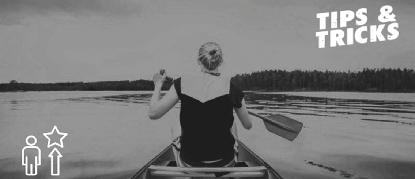




















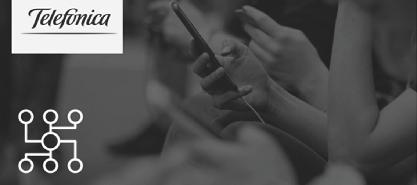








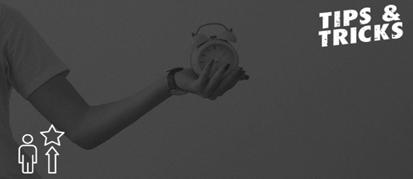








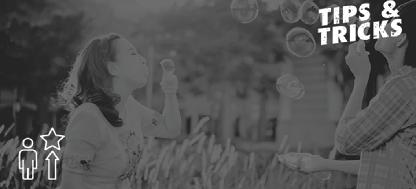






As a marketing professional who has witnessed and experienced transformations in the workplace, I believe it’s crucial to guide ambitious women stepping into this dynamic arena. Embracing opportunities while sidestepping potential pitfalls can pave the way for a fulfilling, rewarding, and impactful career.
I have been fortunate to work for a forward-thinking company that values and develops talent without prejudice.
When I started my career in outdoor advertising, most of the roles were maledominated – which discouraged me in terms of advancement and development. My perceptions and experiences changed over time through my tenure at JCDecaux, and being exposed to the range of clients we work with.
Most of the critical management roles are filled by women, such as our human resources director, sales and marketing director, regional director, and general

managers. Currently, 33% of our executive management are women, with the company target to increase this to 40% in the next five years. Within JCDecaux Africa, 38% of the total workforce and 35% of the senior management team positions are held by women.
Here are some of the lessons I’ve learned on what it takes to ‘be seen’.
Early in my career, I learned to keep my network and trusted advisors close, and tune out the noise of gossip, unfair criticism, and judgemental people. You will be confronted with many big personalities, all with peculiarities you will need to navigate and manage. So, think and behave like a politician, try to be neutral and diplomatic.
Leverage your unique perspective: Women bring a diverse set of experiences, ideas, and viewpoints to the table. Embrace your individuality and use it as a competitive advantage. One such example is when I was tasked to deliver a presentation to a high-value prospect. I felt the guidance and direction given was prescriptive, and not in line with prospective clients’ expectations. I opted to use my initiative instead, based on my knowledge of the client and past experience, which resulted in us onboarding the client.
Build a strong network: Networking is a foundation of professional growth, and it’s never too early or soon to start building yours. See every social opportunity, be it at a function, webinar, or formal social setting as an opportunity to network; you never know where that big account might come from, or who might be able to introduce you to your next prospect.
In an informal setting connect with mentors, peers, and leaders who can offer guidance, insights, and opportunities.
Women entering the business world should cultivate an inquisitive mindset that allows them to learn and stand out, and ensure their voices are heard, writes Dianka Moodley.
EARLY IN MY CAREER, I LEARNED TO KEEP MY NETWORK AND TRUSTED ADVISORS CLOSE, AND TUNE OUT THE NOISE OF GOSSIP, UNFAIR CRITICISM, AND JUDGEMENTAL PEOPLE.
LinkedIn is an online platform that offers a base to start developing your professional network, so make sure your profile follows best practices to help you connect with people who can positively impact your career. Attend industry events, join online forums, and engage in meaningful conversations that broaden your horizons.
Embrace continuous learning: The marketing landscape evolves rapidly, driven by technological advancements, changing consumer behaviour and media consumption. Invest in your professional development by acquiring new skills, staying updated on industry trends, and seeking out learning opportunities.
To further enhance the role of women in business and media, we must invest in leadership and mentorship initiatives that provide women with the necessary tools and guidance to succeed in their respective fields.
Develop leadership skills: Aspire to leadership roles by honing various skills. Effective leadership involves empathy, communication and the ability to inspire and guide teams toward a shared vision. I would set up weekly meetings with my team and a monthly individual meeting to check on their progress and where they need my guidance or assistance.
If your manager does not have such an arrangement, ask for one.
Promote mentorship and sponsorship: Find mentors and sponsors who can help guide your career trajectory. Try to connect with people to whom you relate and who have walked the path before you. Additionally, consider mentoring others to pass on your knowledge and empower the next generation of women professionals.
Lead with authenticity: Authentic leadership is about staying true to your values while leading with integrity. Women tend to have a higher EQ, which affords them the opportunity to navigate difficult situations and steer people around common goals and objectives. By embracing your authentic self, you can inspire trust and build meaningful connections with your team. Develop your personal brand as early as possible; it is imperative you present an image and work ethic that complements your career ambitions.
Advice I wish I had been given when starting my career; may it guide you on your journey, your path, your goals… Self-doubt and impostor syndrome: Many women face self-doubt and a fear of being perceived as impostors in their roles. Remember that your achievements are a result of your hard work and capabilities, not luck. Believe in yourself and your abilities. When I first started, I believed that if I stayed quiet no one would notice if I failed or succeeded – until my mentor said: “Confidence is the greatest key women can have,” and I let go of my insecurities and found my voice, leading to promotions, increase in salary and, overall, I felt more fulfilled in my job.
Failure aversion: Failure is a part of growth. As the expression goes: “It’s not about how many times you fall; it’s about how many times you get up and keep pushing forward.” Don’t be afraid to take calculated risks. Learn from setbacks, adapt, and come back stronger. Some of the greatest innovations arise from learning through failure.
Neglecting self-care: The demands of a fast-paced career as offered by the media and advertising industries can lead to burnout if you neglect self-care. I highly recommend young and upcoming professionals prioritise their well-being by maintaining a healthy work/life balance, setting boundaries, and engaging in activities that rejuvenate them.
Historically, women in media faced stereotypical portrayals, reinforcing harmful societal norms. I am grateful to the many courageous and ambitious women who paved the way for younger generations. Through their work there is an increasing awareness and advocacy for inclusion and diversity in the workplace, and the narrative has been challenged, paving the way for more
authentic and inclusive representations across all business disciplines.
Advocate for yourself: Don’t be afraid to share your accomplishments, goals and aspirations; putting your hand up allows others to know of your ambitions. The challenge with highlighting your achievements is doing so without bragging or seeming to show off. In business and in life, it comes down to how you frame your message for it to be well received.
Champion inclusivity: Be an advocate for diversity and inclusion in the workplace. Support and uplift your women colleagues while fostering an environment where all voices are heard and valued.
Address biases head-on: Unfortunately, biases still exist and manifest in different ways and settings. I suggest confronting these biases professionally and constructively. Educate others about the value of diversity, inclusion and the importance of equal opportunities. If someone or some situation makes you feel uncomfortable, address it professionally and diplomatically. If you accept improper behaviour it will continue, potentially without the other party knowing the impact of their actions.
My advice to women entering the business world or developing their career is to always have an inquisitive mindset that allows you to learn and stand out. Always consider that your journey is unique, and your voice matters.
Dianka Moodley is a young business professional with experience in the education and outdoor advertising industries. As media strategist at JCDecaux South Africa , she employs diverse research and data sets to help guide and influence campaign outcomes for some of South Africa’s most prominent brands and companies. She attained her BBM from Vega School of Marketing and Management.
BE AN ADVOCATE FOR DIVERSITY AND INCLUSION IN THE WORKPLACE. SUPPORT AND UPLIFT YOUR FELLOW WOMEN COLLEAGUES, WHILE FOSTERING AN ENVIRONMENT WHERE ALL VOICES ARE HEARD AND VALUED.
agency founded by a woman, Jacki McEwen-Powell, 25 years ago.
Although my career path was well articulated from a young age, the path to becoming CEO of one of South Africa’s leading communications agencies was not as clear.
Many women leaders will tell you that being a trailblazer requires tenacity and investing untold hours and more to perfect your craft. There are three broad areas that I believe women should focus on to become trailblazers in their respective industries: career mapping; mentorship and continuous learning.
To achieve my eventual position as CEO, I had to be intentional about my career path. From my first job as a staff writer, my intention was always to move up the ranks and, at some point, become editor for a leading business publication.
The days of women not having a seat at the table in major boardrooms is slowly becoming a thing of the past. Too slowly. With the rate of transformation not taking place as quickly as it ought to be, we need more women to be vocal about the change needed in corporate boardrooms.
This snail’s pace is not unique to corporate South Africa; it’s a global phenomenon, also prevalent in more progressive nations. Some 25 years ago, female CEOs in Fortune 500 companies only constituted 0.4%, a figure that has since increased to 10.4%.
South Africa has its own challenges related to the empowerment of women, with only seven of the 100 companies listed on the Johannesburg Stock Exchange having female CEOs at the helm. In comparison to the US, South Africa is still lagging far behind.
Academics have conducted numerous research studies on the challenges that women face in corporate South Africa. They include, but are not limited to, inequality, sexism, and to a large extent, poor career development.

If I think back to graduating with a degree in journalism some 20 years ago, I had absolute clarity about my intended career path. The end goal was to fill the role of editor in chief and to drive the national news agenda. Fast forward 20 years, I am now chief executive officer of Eclipse Communications, a full-service communications
In 2011, I made the move to an agency in a mid-level role and within three years, was leading the agency’s corporate division, focused on strategy, people retention and growth, and client retention and growth.
One of my clients poached me, and I joined a leading broadcaster as head of corporate communications. However, I soon realised that my passion was working at an agency, and across multiple clients in multiple sectors. I transitioned back to agency as a business director, managing the corporate division – and soon became a board member.
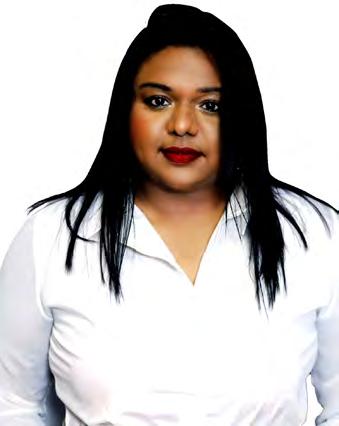
After establishing myself as a proficient leader, Eclipse Communications offered me an opportunity five years ago to join its executive leadership as managing director of its Johannesburg office. It was a position I had set my heart on earning when I went back to agency life, and once again I worked tirelessly to prove my worth, and was appointed CEO in June 2022.
For the baton to be passed on to me is testament that women have the capability and skill set to lead some of the biggest organisations across various industries. It is also important for women to trust in the abilities of other women in the workplace.
Cheryl Reddy shares her three winning strategies for women to be the change they want to see, and blazing the trail for others in the workplace.Cheryl Reddy
If there is one thing that I am grateful for and passionate about is mentorship. I have been privileged to have a mentor (Lokesh Govindasamy, head of business banking at FNB), who supported my career path and equipped me with the skills to navigate towards my aspirations of becoming a CEO.
I spoke openly to him about the challenges I was faced with and the solutions I could offer to drive the business forward. I also discussed my mentorship journey with my direct reports, talking about what I was learning, how I was structuring the sessions, and encouraging them to find mentors of their own. I firmly believe that leading by example is an important way to showcase to others what success can look like for them, too. In my capacity at Eclipse Communications, I am forever grateful to the agency co-founders, Steve Powell and Jacki McEwen-Powell, for mentoring me throughout my journey with the agency and for entrusting me to lead the agency forward.
My advice to young women in media, communications and advertising industries is that you don’t need to be any particular age to go on a mentorship journey with a professional whose success you aspire to emulate, and it’s even better if you start at a young age. Your personal and professional ambitions should be at the heart of it.
It’s critical for youth to look for a mentor. Many young professionals straight out of varsity or starting their careers or first job may not have gained deep insight into the industry, don’t know enough about a company’s culture or how to navigate its ins and outs; or possess the professional etiquette required to deal with their peers, line managers, or clients.
While it’s quite daunting for a young professional coming into that space to seek a mentor, doing so can truly guide them through experiences and knowledge sharing, provide them with a deep understanding of professional etiquette, expand their professional network and advance their careers.
There are many ways to be mentored, with some companies having established formal mentorship programmes. However, for those who do not have these in place, reading books and articles from industry trailblazers is a great way to receive coaching.
My advice to young professionals is to understand what it is they want from a mentor and then align themselves with a person that they believe is the right fit to enable and support the growth they’re after.
The media, communications and advertising landscape is constantly changing and, as professionals, the onus is on us to evolve with the times to provide our clients with our best work.
I believe continuous learning is the bridge between the present and the future, and to achieve this at Eclipse Communication, we launched Eclipse Academy. This internal initiative focuses on educating and training our people on the changing communications landscape and introducing amazing incentives for top achievers of the annual programme.
The inaugural programme saw one deserving employee spend a week in Mauritius to experience the ways of working at the agency’s island office, while also enjoying some downtime.
Adding to this, we bolstered our external training budget to ensure that employees gained additional skills in core areas of focus, and introduced weekly Stand-up Friday sessions to allow teams to share their work and inspire, support and celebrate each other.
We have also added monthly All Hands sessions to the agenda for all employees to catch up on internal news, while
recognising and celebrating those who do great work for clients, or support each other internally.
As women continue the upward trajectory of occupying the highest seat in boardrooms across the world, I believe that the role of the media should be leveraged even more for women’s voices to be heard. Central to that message is the ability to let the quality of our work speak for itself – and to do so loudly.
Media has for a long time profiled many inventions, innovations and businesses spearheaded by men; it is now important for it to balance the scale and profile women who are trailblazers in their respective industries.
Lillian Ngoyi, Helen Joseph, Rahima Moosa, Sophia Williams-De Bruyn and many other strong women that were members of the Federation of South African Women were the trailblazers that have given modern-day women a voice in the workplace.
The march to the Union Buildings on 9 August 1956 was a monumental moment. Equally as important, was the federation’s voice to the Freedom Charter, and the submission of a document entitled What Women Demand, which, amongst other things, highlighted education, equal pay and equal rights.
As a woman, whenever you feel as if your voice is minuscule in the workplace, draw inspiration from trailblazers who have walked this journey before to speak and speak loudly, and always remember your career purpose.
Cheryl Reddy is the CEO of Eclipse Communications . She has led the agency to a remarkable 32% growth in revenue by prioritising innovation, agency growth, and profitability. Under her ‘NEW22’ vision, the agency saw new developments in leadership, office spaces, training initiatives, and client acquisitions.
TO ACHIEVE MY EVENTUAL POSITION AS CEO, I HAD TO BE INTENTIONAL ABOUT MY CAREER PATH. FROM MY FIRST JOB AS A STAFF WRITER, MY INTENTION WAS ALWAYS TO MOVE UP THE RANKS.
THERE ARE MANY WAYS TO BE MENTORED … FOR THOSE WHO DO NOT HAVE THESE IN PLACE, READING BOOKS AND ARTICLES FROM INDUSTRY TRAILBLAZERS IS A GREAT WAY TO RECEIVE COACHING.
Cheryl Ingram shares valuable leadership lessons she’s acquired over the decade since launching her (now very successful) agency at her dinner table.
Despite our success and a client list that includes some of South Africa’s leading online retailers, I still feel the pressure of competing in what is essentially a man’s domain.
Even though The Digital Media Collective (TDMC) is now a multi-millionrand business with a 120-strong client list, a team of 55, branches in Durban and Cape Town – and recently celebrated its 10th birthday, there is still that niggling voice that questions whether I, as a woman, am good enough to compete.

I think this is one of the biggest challenges women have to overcome: those continuous questions of our value, either in the workplace as a woman and mother, or at home as someone who is invested in their career. Men don’t have to make these choices, while women continually have to wrestle with these internal voices.
As the mother of a teen daughter, I believe women bring different eyes to a business and can use their resourcefulness and juggling skills to multitask in a highly distracted world.
These are the 12 valuable lessons I have learnt during my career.
It simply isn’t possible to know everything there is to know about your business. That’s why it is really important
Cheryl Ingramto hire dependable experts in their fields so that they can head up your various divisions – people who you can entrust to utilise their expertise to grow your business, and who you can turn to when you need guidance and advice. Many leaders are fearful that they will be undermined if they put people who are cleverer than them in positions of power – I’m the opposite. If I can build a team below me who can do my job, hallelujah!
It doesn’t matter how successful you are, it is important to retain humility. For a lot of people, their ego grows along with their
business, and I am very conscious of not being that ‘big-mouthed business owner’. I have been lucky and successful, but many business owners haven’t had the same good fortune. Everyone’s business journey is different and everyone faces challenges. While right now we are the lucky ones who have survived, the tide can turn. You can’t rest on your laurels; you need to always look to the future and what you are doing to mitigate a crash.
3. ALWAYS CONSIDER OPPORTUNITIES TO DIVERSIFY
To enjoy ongoing success, you need to stay relevant and ahead of the curve. TDMC is worlds apart from where we started as a business to where we are today. We are continually trying to figure out how we can remain impactful, and the experts in our given field. A lot of businesses get to a certain point and get stuck there because they aren’t forward-thinking.
4. MAKE CHANGE YOUR FRIEND
Change can be scary. It is essential to learn to not fear change, especially in the digital arena, where the landscape is continually changing. When you embrace change and remain curious, you ensure you stay relevant and on a pathway to growth.
5. DON’T BE AFRAID TO OUTSOURCE
TDMC is a digital business that specialises in e-commerce, not a finance business. Instead of battling through trying to understand the intricacies of these facets, we have a consultant finance director. Of course, this costs – but it is a far more financially astute decision than us taking it on internally and muddling our way through things like VAT and taxes.
That’s not to say I steer clear of any money-related decisions; I work very closely with her, and I still like to do all the billing, to ensure I keep up to date with which clients haven’t paid, our debtors’ list, etc.
TDMC is known as a ‘non-agency agency’ – we have purposefully steered clear of corporate structures that can impose rigidity on a business. Agility is key in our industry and, by avoiding traditional corporate structures, we can adapt quickly and easily to challenges and maximise opportunities.
I am fastidious about leading by example. Ninety percent of the time I am one of the first in the office in the morning and one of the last to leave at night. I am not playing golf three times a week or enjoying long wine-filled lunches every afternoon – I expect my staff to work hard, so I work hard too.
Despite TDMC’s growth and success, I ensure that I am still immersed in the nuts and bolts of the business. I am very hands on and involved in our accounts. I care about every account from the biggest to the smallest and know every one of our 120 clients by name.
I always say that the best restaurants are the ones where the owner is on the floor meeting and greeting customers and making them feel special when they walk through the door – for me it’s the same
with a good agency. I sit on the floor with the team – I am not stuck away in a glass box – and although my time is pressured, I try to make sure that I am accessible to my team when they need me.
9.
One of my most significant positions I held before I launched TDMC was at Microsoft in London, where I was mentored by incredible women and men who invested time and effort in helping me grow and thrive. I’ve carried that people-building strategy into TDMC, and mentorship really underpins everything that happens in our business. Those who lead lend a hand to those who follow. This is also underscored by our very active internship programme – the best learning happens through doing, and our team is 100% committed to sharing their knowledge and skills.
Even as a business leader I still seek mentorship and have a circle of people in leadership positions in different industries who I can turn to for guidance and advice. I am very fortunate that I have been able to build relationships with many of my clients who have built multimillion-rand businesses who are willing to share their knowledge and learnings with me. In the same way that I am grateful for that level of sharing, I willingly try to do the same for others who are trying to build and grow their own businesses.
Sometimes it is important to do things because you really enjoy doing them, not just because there’s money involved. I’m currently mentoring a small business owner and am loving helping her and seeing how my guidance is positively impacting her business. There might not be a direct financial reward for me right
now, but it gives me great pleasure and, who knows, perhaps the rewards will come later through her talking up TDMC and recommending us to her contacts.
This really is the most important lesson of them all – and is one that I again learnt during my time with Microsoft and have implemented in my own business. I spend a lot of time thinking about what I can do to ensure I have a happy team. When your team is happy, your clients are happy.
We put a lot of effort into creating a kind and caring office environment so that people are happy to come to work in the morning.
At TDMC we have a people over profit philosophy linking monthly business results to instant earnouts for the team so that they immediately feel the benefit of their efforts. We have flexible working hours, finish early on a Friday and try to accommodate and facilitate team members’ interests outside of work.
At the start of each year, we sit down and figure out a phrase or action to carry us through the year. Last year, that phrase was “How can I help you?”, which encouraged team members to reach out and help each other. This year it is, “Be the game changer”. The aim is to encourage everyone to try new things and to do things differently, because it is important to always be challenging the status quo.
I’m a glass-half-full kind of person who has always tried to do things differently and I believe that as a female leader I can challenge the myth that a glass ceiling exists for women in our industry.
Cheryl Ingram is the founder and managing director of the award-winning retail marketing and development agency, The Digital Media Collective (TDMC) , and a Santam FAIRLADY Women of the Future Awards Finalist. Launched 10 years ago, TDMC is one of just four accredited Shopify Expert Partners in Southern Africa, as well as a Google Expert Partner and Meta Business Partner, and Gold winner in the integrated e-commerce category at this year’s Smarties Awards.
MANY LEADERS ARE FEARFUL THAT THEY WILL BE UNDERMINED IF THEY PUT PEOPLE WHO ARE CLEVERER THAN THEM IN POSITIONS OF POWER – I’M THE OPPOSITE. IF I CAN BUILD A TEAM BELOW ME WHO CAN DO MY JOB, HALLELUJAH!
I’M A GLASS-HALF-FULL KIND OF PERSON WHO HAS ALWAYS TRIED TO DO THINGS DIFFERENTLY AND I BELIEVE THAT AS A FEMALE LEADER I CAN CHALLENGE THE MYTH THAT A GLASS CEILING EXISTS FOR WOMEN IN OUR INDUSTRY.
Being a juror at the Cannes Lions International Festival of Creativity
Cannes has been the most rewarding (yet challenging and uncomfortable) experience to date, writes Clare
Trafankowska.In ‘The Subtle Art of Being Uncomfortable’, an article I penned in 2021, I compiled a collection of learnings acquired over my time as a professional – all advocating for an immersion in what makes one most uncomfortable, for it is within these spaces we experience exponential growth.
Now, I find myself reflecting on my response to having been selected as a prestigious Cannes Lions Media awards shortlisting juror. As a passionate advocate for positive change in the marketing industry, being a part of this esteemed panel of industry experts was a humbling experience and I am incredibly grateful for the recognition.
The Cannes Lions International Festival of Creativity Cannes has indeed been the most rewarding (yet challenging and uncomfortable) experience to date.
It is one thing to ‘be seen’ within your local context but another thing entirely, to be seen within a global framing.
There were 10 South Africans as Cannes Lions Awarding jurors and four as Cannes Lions shortlisting jurors. I was one of those four and, as one of only three female representatives, the weight of responsibility that I encountered was unimaginable.

I felt a huge responsibility towards the work and ensuring a reasonable and feasible time commitment apportioned to it, to do justice to each piece of work reviewed.
I felt huge responsibility towards my colleagues: discovering an ability to hold each piece of work in equilibrium while navigating the plethora of confirmed biases; applying immersive techniques and extending my empathetic norms to cross borders and imagine a context that I had no lived-experiences to draw against; validating what was deemed ‘good’; to determining what I believed was ‘best’.
The pre-judging training that led up to the case-study exposure went into incredible detail around the range
Clare Trafankowskaof biases that we could expect to be challenge through – providing heightened mental availability as I was catapulted out of my comfort zone.
My journey of self-discovery and growth took place through the 377 pieces of work reviewed (some being entered into multiple categories). Throughout this experience of judging, in-Cannes conversations, experiential observations and in-session sharing, I collated some pearls of wisdom along the way.
As shared from an ‘Inside the Jury Room’ session with the media jury, where the discussion arrived at it ‘being okay’ to live in the now and to focus on your current context because we cannot predict what
the future will hold. Now, more so than ever before, speed to market with a creative idea is critical else you risk losing the cultural moment.
This too was shared from an ‘Inside the Jury Room’ session, with the Creative Data jury, where the conversation arrived at how some of the best work in the category was successful in converting numbers into a more emotive experience – and with one of their biggest in-theroom discussions being centred around AI and tech, and the creative idea (not either/ or) and them having the responsibility of ensuring that there was a creative idea that extended well-beyond the technology or novelty usage.
The concept of sustainable creativity was somewhat of a constant in much of the work I reviewed. I labelled this trend as ‘sustainable’ as it felt the most versatile way of describing the incredible work that came through this year. Sustainability, in this instance, translated into ‘eco-friendly’; or ‘socio-economically’ impactful and ‘purpose-led’ creativity.
There was an immense volume of entries across categories that had a stronger essence of a keen will for work to live beyond brand impact and vanity metrics – observing brands solving for real-world problems. .
While deeper and more holistic integration with digital channels was often missing, it was great to see phenomenal innovation from traditional channels, such as a re-imagination of OOH as a medium capable of exhibiting exquisite creativity as an expression of local culture, and an exhibition reflecting the polarity of humanity.
SIMPLY PUT: MORE ACTIVE ATTENTION SECONDS = BIGGER CHANGE IN MENTAL AVAILABILITY = LARGER BUSINESS EFFECTS.
Two fantastic sessions at the Palais addressed both effectiveness and attention: ‘The triple opportunity of attention’, with Karen Nelson-Field, Orlando Wood, and Rob Brittain, and ‘The 3rd age of effectiveness’, with Les Binet, Grace Kite and Tom Roach – both of which are integral in maximising marketing efforts.
In ‘The 3rd age of effectiveness’ session, one of the panellists stated that: ‘Video is to brand building, what water is to life on earth’ – let that sink in for a moment.
In the session around ‘The triple opportunity’, Brittain highlighted the vast difference in creative strength when amplified by higher attention media platforms – and showed how, just by changing how they invested, businesses that invested in higher-attention garnering channels (even when investing less than their counterparts) drove a 65% increase in business effect. Simply put: more active attention seconds = bigger change in mental availability = larger business effects.
But what does that mean for marketing effectiveness? It means that there is a tremendous amount of responsibility on all of us as marketing specialists, to understand the attention economy and

build more strategically sound plans that deliver higher attentive-second opportunities. Read more about this here.
Could we then be bold enough to state that, if: “video is to brand building, what water is to life on earth” surely then, attention is to marketing effectiveness, what water is to life on earth?
For anyone embarking on a Cannes Lions – or any other award entries –journey, here are a few parting thoughts from a variety of jurors:
• Do not forget to hero the brand as sometimes it was lost within the creative idea
• Your case study voice-over and music are influential factors and should not be discounted
• Take note of the category and be deliberate in your narrative
• Some of the work entered felt quite rushed in terms of results availability –rather hold back and enter when it is ready
• The power of the creative idea and its ability to cross borders, is significant
• Do not underestimate simplicity – doing something with what you already have can be interesting too When it is all said-and-done and looking backing on a phenomenal career, with more to come, I believe that every bold yes, each hard conversation, many uncomfortable firsts’, the moments and learningsshared, led me to this very moment.
As managing director of iProspect South Africa , Clare Trafankowska has over 14 years’ experience across both the media owner and advertising and marketing industry, with her roots being proudly entrenched in digital and performance expertise. She has developed an insatiable energy for the fast-paced, engaging and highly dynamic marketing and advertising environment. She has been an active member of the IAB South Africa for the last three years and has headedup the IAB Measurement Council since August 2020. Trafankowska was the MOST Awards Media Agency Rising Star in 2022.
THERE IS A TREMENDOUS AMOUNT OF RESPONSIBILITY ON ALL OF US AS MARKETING SPECIALISTS, TO UNDERSTAND THE ATTENTION ECONOMY AND BUILD MORE STRATEGICALLY SOUND PLANS THAT DELIVER HIGHER ATTENTIVE-SECOND OPPORTUNITIES.
Lauren Bianca outlines her tenacious journey to being seen as an internationally-recognised, self-published comic book author.
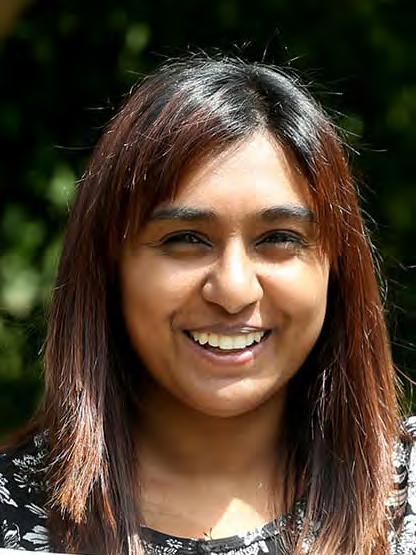
Icompleted a degree in psychological counselling, and a Higher Certificate in Events Management. I am now an author of a new comic book released in South Africa called The Shadower. You’re probably thinking, why comic books? I do cosplay for Marvel characters such as Black Widow, Wanda and Dr Strange. My friends initially wanted to write a comic about me – and that’s where the idea of writing my own comic started.
Since we all loved superheroes and I cosplayed them myself, I felt it would be amazing to create one. It took me some time to figure out how to go about doing it since comics have been around for decades. I needed to think carefully on how to step into this world, which has already grown immaculately with different outcomes and successes.
I wanted my comic to be different from the rest, to stand out. So, an idea came to mind: why don’t we use actual people as characters in the book?
I was able to download an app that converts pictures into comic images. It took me about a month to write the story. Looking for a good designer, publisher and creator was a struggle, and
all required heaps of finances. I had no capital to start this venture; all I has was the basic salary I earn.
I started saving every month, during that time I made a hard-earned decision to bite my tongue and have sleepless nights to get this comic somewhere. I decided to try to use the knowledge I had to find a way to get things done. It was at that moment I chose to design, create and write everything myself. I believed if I sat and waited for someone to help, nothing would have been done and this comic would have never been published.
My friends were very supportive and cheered me on – and I learned that in any business, support plays a big role in getting your talent and work out there.
I had doubts at first. Every writer has doubts: “Will this make it out there? What if people never read it? What if people reject it? Am I wasting the money on something
that is not fruitful?” I had all those questions in my head. There were two main things that kept me going. God and my support. If it wasn’t for God and the positive support my friends gave, this comic book would have not been where it is today.
AS A WOMAN IT WAS TOUGH TO MAKE A DECISION TO STEP INTO A MALE-DOMINATED AREA: GLOBALLY, 60.6% OF COMIC BOOK WRITERS ARE MEN; ONLY 39.4% ARE WOMEN.
As a woman it was tough to make a decision to step into a male-dominated area: globally, 60.6% of comic book writers are men; only 39.4% are women.
In South Africa there are a few comic writers but I have not come across any female comic authors. I took a leap of faith and chose to go for it. I had to hope my comic would be different because of the pictures. Each person in the comic is a real-life person; the friends that supported me, my parents and family members.
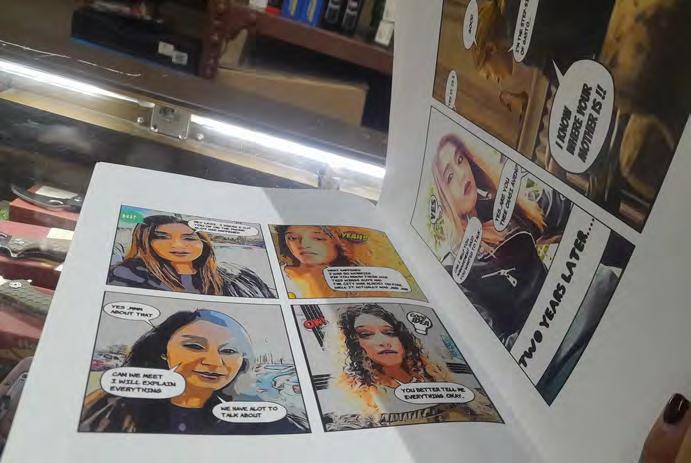
The story has a superhero storyline with a few Marvel references, for unique humour. Once all creating, writing and designing was done, my next challenge was to find a good publisher. This was most difficult. Most of the publishers I emailed never responded; the ones that did, were not interested.
One trait I have identified as essential for a woman who wants to be heard, is persistence. I finished the book in June 2022, and only found a solution at the end of December that year.
In researching how to get this comic printed, I learnt about self-publishing. It fit my budget. Yes, there would be extra work, such as formatting the book myself, getting an editor to ready it; my editors were my friends and a few families.
All the marketing, advertising and distribution had to be done by me.
I contacted all the printers I had Googled, but only one responded: Bevan Groups in Cape Town; I am based in KwaZulu-Natal, yet it took a company from Cape Town to respond. I really appreciate Bevan Groups for believing in me and helping me with the printing. They were reasonable with their prices and delivered good work. I won’t use anyone else.
Once my book was printed, the hard work began: marketing. It was extremely
challenging. Not a lot of people wanted to even hear about the comic because it came from a woman and, worse, a woman of colour. I had many refusals. I was laughed it; no one wanted to buy the book. I had a few incidents where people would place orders and cancel before collection because they didn’t have faith in local authors.
I find this ironic: South Africa has tremendous talent from all sides and through all age groups, but we only support those who are already famous and known throughout the world.
It’s the way the society has been formed, if you are well known people will spend thousands to support, yet a child could be full of talent but will never show it because no one acknowledged just to cheered them on.
Fortunately, I came into contact with a company called Multi-Marketing, also based in Cape Town. They were helpful and assisted me in getting the digital copies available globally via their website and Amazon. They went out of their way to formatting the eBook, and also offered me free marketing, which I really was thankful for.
Hard copies are available in South Africa, digital copies are available around the world on Multi-Market Store and on Amazon. The publicity this comic book got was amazing, from newspapers and magazines to TV Shows and international interviews.
As a writer or in any field, the sky is the limit, you are only limited by your imagination, how far you go depends on your determination and when you make it, always remember the people you started with.
The Shadower Comic Book has grown and is still growing; we will be part of the Durban International Book Fair 2023 on 12 August.
My recipe for success to women? Be classy in what you do, gather some drive, add a pinch of willpower, throw in your purpose, shield yourself with humility and add a spoonful of fire.
I FIND THIS IRONIC: SOUTH AFRICA HAS TREMENDOUS TALENT FROM ALL SIDES AND THROUGH ALL AGE GROUPS, BUT WE ONLY SUPPORT THOSE WHO ARE ALREADY FAMOUS AND KNOWN THROUGHOUT THE WORLD.
ONE TRAIT I HAVE IDENTIFIED AS ESSENTIAL FOR A WOMAN WHO WANTS TO BE HEARD, IS PERSISTENCE. I FINISHED THE BOOK IN JUNE 2022, AND ONLY FOUND A SOLUTION AT THE END OF DECEMBER THAT YEAR.Lauren Bianca hails from Chatsworth in Durban. She has a degree in psychology. She works as an administrator and in her spare time, she cosplays.
In the heart of Women’s Month, the spotlight shines ever brighter on the rich tapestry of journeys woven by women media professionals. Having realised the powerful impact of sharing her story, Payal Maharajh is determined to use her voice for inclusivity for all.
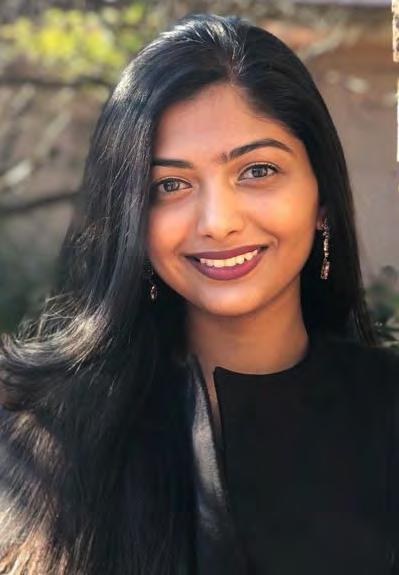
As Women’s Month unfolds, we draw attention to the rich narrative quilt woven by women media professionals, illuminating their courage, resilience, and diverse journeys. The celebration not only echoes their accomplishments, it also underscores the persistent gender gaps they face within the industry.
According to the 2023 Global Gender Gap Index, a sobering fact surfaces: “No country has yet achieved full gender parity.” This worldwide disparity is particularly acute within the media sector. Women, especially those of colour, grapple with systemic obstacles such as gender bias, harassment, stereotypes, and a lack of representation.
According to a 2022 Wunderman Thompson Intelligence report, women constitute just 30% of news media personalities globally, despite representing half the world’s population. Furthermore, women are often forced into a juggling act, balancing professional advancement with personal responsibilities like family care.
Growing up in a traditional Indian household means that you only have three career options: become a doctor, a lawyer, or a failure. Initially, I pursued the anticipated path of studying law. However, after facing rejection from a law school, I decided to seek out alternative opportunities. Inspired by the audacious women in my community who defied norms to claim their seats at influential
tables, I now work as a strategist at Wunderman Thompson South Africa. I believe wholeheartedly that true empowerment comes when we break free from societal norms and embrace our unique paths.
Losing my father at a young age, and battling with dyslexia compelled me to work harder than my peers. Adversity became a crucible for resilience, enabling me to embrace new paths and uncover unexpected passions, such as strategy and storytelling.
I had the opportunity to study in Chicago, USA, for a semester and became part of
the International Cultural Committee that started ‘My Story’, an event intended to raise awareness on mental health. Despite feeling vulnerable and fearing ridicule, I shared my story with the entire university, and the support and courage I received made me realise that our differences bring us together.
Storytelling is a powerful tool: according to Stanford University, stories are remembered up to 22 times more than facts. You never know how your story can impact someone. Sharing your unique experiences can unite people, foster deeper connections and create a platform for raising awareness about critical issues. There’s power in the transformative impact of a supportive community, so surround yourself with people who uplift and inspire you, and be that person for others, too.
In my honours year, I was tasked to create a change project based on the UN sustainability goals. I chose SDG3 – to ensure healthy lives and promote well-being for all ages. Shortly after, Covid-19 was declared a global pandemic. Motivated by the ‘My Story’ event in Chicago, I launched a mental health awareness campaign called ‘My Indaba’ – to break mental health stigma through storytelling and create a more conscious community.
Challenges and setbacks are part of every journey. Transform these adversities into stepping stones, turning perceived weaknesses into unique strengths.
I must underscore the media business’s need for integrity, empathy, and creativity. These are attributes women naturally possess and should be celebrated for. Women should not shy away from expressing these values but rather leverage them to bring about innovation, engagement, and positive change.
THERE’S POWER IN THE TRANSFORMATIVE IMPACT OF A SUPPORTIVE COMMUNITY, SO SURROUND YOURSELF WITH PEOPLE WHO UPLIFT AND INSPIRE YOU, AND BE THAT PERSON FOR OTHERS, TOO.Payal Maharajh
I am proud of my recent appointment as member of the Loeries Youth Committee and aim to align with the values of the committee – which promotes fair treatment of all – to use the platform as a voice for all women in the industry.
I firmly believe that gratitude for opportunities and a place at the table should never come at the expense of equality. Instead, they advocate for a workplace where gratitude and fairness go hand in hand, and every individual is treated with respect, regardless of their gender. I am dedicated to being a catalyst for positive change, promoting a culture that values and uplifts everyone equally.
As part of the WPP Global Leaders Group in 2022, I learned how to use the power of creativity to build better futures by questioning things from different perspectives and possibilities. This can be achieved via cross-functional collaboration, diverse teams and, more importantly, staying curious and inspired.
A Wunderman Thompson Future 100 report cites the need for diversity and creativity in driving transformative change, highlighting the importance of curiosity, diverse teams, and different perspectives.
My lecturers inspired me to greater heights; they showed me the possibilities within the industry and equipped me with a toolkit of knowledge and skills. I encourage all women to seek mentors who can guide their professional journey and become mentors themselves. Create a nurturing environment for others in the industry by sharing your experiences, lessons learned, and the wisdom gained.
Diverse voices have a profound impact and inclusivity sparks creativity and innovation. This is why working for an organisation like Wunderman Thompson, that drives and promotes a culture of inclusivity and embraces individuals from all walks of life, is so important.
Wunderman Thompson’s gender empowerment initiatives span hiring and promotion policies, learning and development, preferential procurement, and includes contributing to CSI
initiatives that further opportunities for the industry’s future female talent.
Women hold 55% of senior leadership roles at Wunderman Thompson, with 70% of promotions in the past year awarded to women. In terms of investment value into learning and development programmes, 85% of the investment has been directed towards the development of women, with nearly half of the learnership opportunities being awarded to women in the last year.
Diverse viewpoints enrich storytelling, enabling the creation of authentic and relatable content that resonates with audiences worldwide. Embracing diverse talent not only enhances the quality of work produced; it also helps in breaking stereotypes and fostering understanding across cultures.
I hope to use my voice to ensure the message of diversity and inclusivity reverberates across the media landscape, inspiring others to take similar strides towards a more inclusive and representative future.
Building better tables in the media industry requires collective effort, and we need to foster an environment where women support one another, break down barriers, challenge outdated norms and
amplify stories that deserve to be heard.

An allyship with men in the industry is essential for more inclusive media landscape, as true progress is achieved when everyone works together to dismantle systemic inequalities and create a level playing field for all.
In the spirit of Women’s Month, I hope my story serves as a testament to the remarkable strength, resilience, and potential of women in the media. Let’s all celebrate these qualities and ensure that women are seen, heard, and valued in the industry. Every woman can take meaningful strides towards securing a place at the table and shaping the landscape of the future.
As Kahlil Gibran eloquently said: “The deeper sorrow carves into your being, the more joy you can contain.” Embrace your unique journey, fuel your ambition, and strive towards crafting a media landscape that celebrates every individual’s story. By working together, we can shape a brighter, more inclusive future.
Payal Maharajh is a digital strategist at Wunderman Thomson . She was recently selected to be part of the 2023 Loeries Youth Committee! The LYC empowers young professionals, offering them a voice and an opportunity to showcase their creative excellence.
AN ALLYSHIP WITH MEN IN THE INDUSTRY IS ESSENTIAL FOR MORE INCLUSIVE MEDIA LANDSCAPE, AS TRUE PROGRESS IS ACHIEVED WHEN EVERYONE WORKS TOGETHER TO DISMANTLE SYSTEMIC INEQUALITIES AND CREATE A LEVEL PLAYING FIELD FOR ALL.
As it’s Women’s Month, I take this opportunity to celebrate the remarkable women in the media industry and share my own transformative journey.
As a visionary leader, social justice pioneer, and disruptive futurist, I now also wear the title of a cancer survivor. Throughout my battle against cancer and in the face of post-Covid-19 challenges, I have come to recognise the profound significance of resilience, intentionality, and purpose-driven storytelling.
While we celebrate the achievements of women during this month, it is essential to acknowledge the barriers that persist, particularly in the media sector. The convergence of Covid-19 and rapid technology advances has become one of the biggest obstacles for job creation, and we ourselves find needing support to navigate these challenging times.
Together, we must address these shared concerns and empower one another to thrive amidst these unprecedented circumstances.
Nineteen years ago, I embarked on a transformative journey, founding JT Communication Solutions, a pan-African media and communications agency with a deep-rooted passion for storytelling. From the start, our mission was clear: to amplify African voices and stories on a global stage, earning recognition through multiple awards and serving clients from both the private and public sectors.
My path from journalist to entrepreneur has been an incredible odyssey. I am grateful for being one of the few black women who broke barriers to enter the public relations field. However, my purpose extended far beyond personal achievements. I embraced the opportunity to economically transform South Africa and use our agency as a catalyst for positive change.

In the vibrant tapestry of our clientele, we are privileged to have worked with some of the world’s most influential artists. Our portfolio boasts a rich array of legendary figures, including Hugh Masekela, Jonas Gwangwa, and Miriam Makeba, as well as numerous contemporary icons, living legends, thought leaders, and captains of industry. Representing their stories and artistry has been an immense honour and is testament to the calibre of talent we have had the privilege to collaborate with.
At the core of our journey lies an unwavering commitment to promote positive storytelling and drive social impact across diverse economies. Each step we take reinforces the value of embracing change and harnessing the immense power of storytelling. We understand that making a difference requires innovation and the strategic use of technology and digital platforms as enablers, not distractions.
Through JT Communication Solutions, we have been entrusted with some of the most significant projects in our country’s history. Whether it was contributing to the electrifying atmosphere of the World Cup or leaving an indelible mark at the prestigious Midem in the South of France, we have demonstrated our expertise in media and communications on a global stage.
As the only surviving black womenowned media and PR agency of our scale in South Africa, we stand proudly as a testament to the vision and commitment of our clients who share our passion for transforming economies. Within our agency, we are home to some of the most dynamic legends in the creative sectors our country has produced, and we take immense pride in the excellence that defines our brand. Our distinctiveness lies in the profound reach and positive difference we have achieved.
Reflecting on my life’s journey, I cannot help but recognise how the circumstances of my birth in Apartheid South Africa have shaped my purpose and passion. Growing up during a time when black people required permits to enter certain fields, including journalism, was an eye-opening experience.
The education system was steeped in danger for black South Africans, yet it was within this challenging environment that I embarked on my journey into the world of journalism.
During the mid-1980s, while on campus, I found myself one of only two black journalism students who made it through the quota system to pursue our dreams. This scarcity only fuelled my determination to pave the way for change and contribute to a more inclusive media landscape.
The hurdles and obstacles faced during those formative years ignited a fire within me to challenge the status quo and amplify marginalised voices.
Transitioning from being a journalist into the dynamic world of entrepreneurship was a conscious decision, driven by a deep desire to empower others through the power of media and storytelling. Our agency has become a vehicle for driving positive change, and promoting diversity
and inclusion in every aspect of our work. We strive to uplift unheard voices, share impactful stories, and contribute to the transformation of societies worldwide.
On this journey, I have realised that the most significant transformations occur when we dare to challenge conventions and break barriers. My experiences have taught me that every challenge, every adversity, and every barrier can become a stepping stone towards greater accomplishments and meaningful impact. This has reinforced the notion that life is a tapestry of opportunities, and it is up to us to weave the threads of resilience, hope, and determination into a masterpiece that inspires others.
Life took an unexpected turn three years ago when I faced a rare and aggressive form of cancer. After a life-saving total laryngectomy that took away my vocal cords, I navigated 24 days in the ICU during Covid-19, and six operations.
Through unwavering determination and with the aid of a voice prosthesis, I had to find ways to adapt to this new reality and found a powerful tool in social media, connecting with fellow survivors globally. By leaving my footprints along the path, I aspire to make their journey smoother and less daunting for cancer victims.
My digital expedition led me to realise the profound impact of knowledgesharing, transforming me into an advocate for supporting others facing similar challenges. Today, my journey is dedicated to not only empowering cancer victims through medical science, and easing their path to recovery, but also to focusing on growing entrepreneurship, supporting job creation efforts, and advancing the cause of empowering Women-Owned businesses with intentionality and purpose.
Had I not embraced the digital realm, I could have missed this extraordinary opportunity to build meaningful connections with fellow survivors. By investing time and effort in utilising digital media as my weapon, I discovered the profound impact of knowledge-sharing. Throughout my journey, I realised that even with limited knowledge, I could become a catalyst for change and the bearer of new wisdom.
Now, I understand the incredible power of social media, transforming it
from mere communication channels into platforms for education and connection. My digital voyage has shown me the potential of being a beacon of knowledge, illuminating the way for others in the dark abyss of cancer.
As a media strategist and social justice activist, I have strategically aligned our agency’s brand to promote positive change. We actively support impactful projects like Fees Must Fall, No to Xenophobia, Bring Back Our Girls, and gender-based violence initiatives on a pro bono basis.
My focus remains on amplifying African voices and stories, driving positive social impact, and promoting diversity and inclusivity in media and communications and supporting marginalised entrepreneurs. We offer unique value to partners seeking responsible brand reputation management and corporate citizenship and our networks enable validated trusted #BBBEE solutions to position ESD and ED spend.
My journey exemplifies the power of entrepreneurship in fighting for social justice, creating jobs, and empowering individuals. Winning numerous awards including the Presidents Inaugural SMME award for a leader with a social disability is a testament to the potential for change. As we navigate the perils of Covid-19 and help our economy’s recovery we look forward to wider partnerships and support. It’s possible we can find our voices, be led by the compelling stories we share and together, let us all BE SEEN.
My journey from journalist to entrepreneur and cancer survivor has been a profound testament to the power of resilience, visionary leadership, and collaboration. Founding JT Comms, co-founding ECAfrica, and centralising the African
Media Resource Centre have all exemplified the potential of innovation and positive social impact.
These are my key takeaways:
Diversification and scaling: Post-Covid-19, the importance of diversifying, scaling, and collaborating with partners has become even more relevant to thrive in the market and make a meaningful impact.
Entrepreneurial pipeline: Co-founding ECAfrica and creating a resource bank exemplifies the need to bridge gaps in the entrepreneurial pipeline and provide support for entrepreneurs to succeed.
Centralisation for support: Centralising the African Media Resource Centre shows the value of focusing on media entrepreneurship, enabling more media workers to establish their pipelines and contribute to the industry’s growth.
Collaborative support: Encouraging collaboration and participation from collaborators and enablers in the incubation pipeline is crucial for supporting businesses and fostering growth in the industry.
Post-Covid-19, I recognise that diversification, scaling, and partnership are essential for long-term success. That is why I extend a heartfelt call to potential partners, investors, and collaborators to join forces with us. Together, we can empower black women entrepreneurs, uplift marginalised voices, and transform the media and communications industry, leaving an indelible legacy of positive change for generations to come.
Let us unite and make a meaningful difference in the world!
THE MOST SIGNIFICANT TRANSFORMATIONS OCCUR WHEN WE DARE TO CHALLENGE CONVENTIONS AND BREAK BARRIERS … EVERY CHALLENGE, EVERY ADVERSITY, AND EVERY BARRIER CAN BECOME A STEPPING STONE TOWARDS GREATER ACCOMPLISHMENTS AND MEANINGFUL IMPACT.Vanessa Perumal is founder of JT Communication Solutions , co-founder of ECAfrica, and winner of the inaugural Presidential SMME Award. A social entrepreneur, futurist, visionary, Pan Africanist, mom, and courageous cancer survivor.
Women’s Day – and Women’s Month – commemorates the 1956 Women’s March, where women marched to the Union Buildings to protest against carrying passbooks in Apartheid South Africa. It’s a time to reflect on our journey as women, personally and professionally, in a world where gender equality remains a contentious subject.
The media industry in South Africa, however – at least in my experience – is a progressive space that has seen many women leaders emerge. And throughout my career in the media, I have had the privilege of working with incredible mentors, both men and women, who have helped shape my belief in myself and provided a platform to hone my skills.

I am familiar with the ‘sink or swim’ concept after starting my own business. Sometimes we need to take leaps of faith and pluck up courage, whether we feel we have it or not. Along the way, I’ve discovered that the more we as women see our male counterparts as contemporaries, and use any uncertainty
as a driving force to perform better, we have the power to carve out a career. That said, however, women should stop thinking that they must see themselves as simply equal. We can harness our strengths to our advantage: our empathy, our drive and our determination to succeed. We can choose to position ourselves in an environment where our true worth is recognised. I apply a few hard and fast rules to maintain this position:
Embrace challenges and dive headfirst into any opportunity that comes your way. Immersing yourself in the process will deepen your understanding and unlock your true potential.
Instead of relying solely on theoretical knowledge, venture into the field to gain practical insights and understand the fundamental dynamics of your industry.

Leadership isn’t about giving orders but about leading from the front and actively participating in the journey towards achieving goals.
Stay prepared and well-informed. You can never know everything. Learning should never stop. Being knowledgeable allows you to contribute effectively and assert yourself confidently.
The media landscape has evolved into a sophisticated and numbers-driven domain. It’s an era in which women
Vulnerable, perceptive, empathetic… by harnessing our strengths to our advantage, we women have the power to succeed, believes Tanya van Tonder.Tanya van Tonder
WE SHOULD NEVER BE SILENT. OUR VOICES MATTER. WE ARE AGILE, CREATIVE AND EMOTIONALLY INTELLIGENT. THESE QUALITIES LEND THEMSELVES PERFECTLY TO EFFECTIVE LEADERSHIP.
are perfectly poised to thrive due to their innate ability to read between the lines, anticipate responses, understand behaviour and translate challenges into opportunities. We bring a unique perspective that fosters a holistic approach, allowing us to deliver meaningful and impactful solutions.

The mentors that have guided me throughout my career always emphasised leadership qualities over gender distinctions, and I continue to apply the same thinking in my approach to mentorship. One of the most valuable things we can do is pay it forward. There is so much satisfaction in enabling personal growth and empowering others to believe in their capabilities.
While the media industry has its share of remarkable female leaders, there is still room for greater representation in leadership roles. In the words of President Ellen Johnson Sirleaf of Liberia: “To girls and women everywhere, I issue a simple invitation. My sisters, my daughters, my friends; find your voice.”
We should never be silent. Our voices matter. We are agile, creative and emotionally intelligent. These qualities lend themselves perfectly to effective leadership. To achieve a more balanced and inclusive media landscape, we must encourage women to embrace leadership positions, making significant strides in shaping the industry’s future. We live in a society where women are vulnerable. Gender-based violence, unequal access to resources and, in many cases, traditional gender roles and a patriarchal society contribute to the vulnerability of women.
At work, being vulnerable in leadership may seem counterintuitive. But it can hold immense value. When leaders embrace vulnerability, they create an authentic connection with their team. It shows that they are human, capable of making mistakes and willing to learn from them. Openness encourages trust and fosters a culture of transparency and honesty within the organisation. By demonstrating vulnerability and their inherent humanity, leaders inspire their team to take risks, innovate and grow together towards a common purpose. So, contrary to its immediate definition, vulnerability can be a strength.
One of my cardinal rules is: ‘Get your hands dirty.’ It’s the only way to distinguish between a leader and a boss. Delegation, of course, is essential; but we should be in the trenches with our team, helping them overcome the daily challenges they face and often going beyond the call of duty. Anyone can bark orders – but that doesn’t inspire trust. If anything, it creates resentment. We should guide our teams, watch from the sidelines and jump in when they need support.
Real power comes from your willingness to learn; to fail, to try harder next time, and to embrace who you are. There is
no real textbook on how to lead a team. Each of us has our own unique approach. You might be surprised at where some of your lessons come from. You just need to be open to them. A teller at the supermarket might teach you that kindness matters. A child may teach you about finding the confidence to take risks. Your teachers are everywhere. You just need to be open to them.
As women, we must continue to find our voices, advocate for change and support one another. Unity, resilience and determination are the tools we can use to create a world where women thrive and make their mark in every sector, including the dynamic and evolving media industry.
Finding your power in a maledominated world begins with recognising your inherent worth and embracing your unique strengths and capabilities. As women break free from societal limitations and traditional gender roles, they pave the way for new possibilities. Finding power comes from within, and acknowledging that our voices, ideas and contributions matter.
As Coco Chanel boldly said: “A girl should be two things: who and what she wants.”
FINDING YOUR POWER IN A MALE-DOMINATED WORLD BEGINS WITH RECOGNISING YOUR INHERENT WORTH AND EMBRACING YOUR UNIQUE STRENGTHS AND CAPABILITIES.
Nwabisa Makunga is editor of the Sowetan. She is one of the few women editors of a big national newspaper. Glenda Nevill set the questions.
Q: You are one of the very few female editors of a national newspaper in South Africa. What factors would you say contribute to the dearth of female newspaper editors?

A: It is a combination of factors which are all unacceptable. There is a huge number of female journalists in South Africa who do an incredible job. To be an editor, however, requires a certain level of leadership experience, which many female colleagues, good as they may be, aren’t given. Those who are given such opportunities to lead are at times not given the adequate support – both technical and social – to be able to thrive regardless of the increasingly challenging newsroom environment. Other female colleagues self-limit, perhaps out of fear of failure.
Furthermore, there is an inherent apprehension or distrust in the abilities of female journalists to take up strategic leadership positions in newsrooms. In South Africa, we have moved the needle
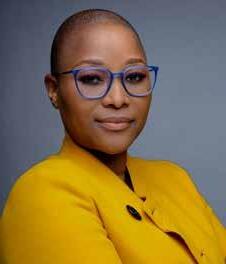
to some degree compared to many of our global counterparts, but not nearly enough as we should.
Q: Again, there are perhaps two or three women who sit on the boards of newspaper/media groups. Why aren’t there more women at that level, in your opinion? What will it take for more women to ‘be seen’ at board level?
A: There are two ways this can be done. It is either through a deliberate effort to support women to develop further through the media organisation’s value chain or to appoint businesswomen who have not necessarily come up through the editorial channels but have the acumen and capability to lead businesses. The reality of the latter is a situation similar to the rest of corporate South Africa, where women do exist in decision making positions but disproportionately fewer than men. (Not acceptable). The former is explained again by the lack of intentionality to develop women
further than middle management roles in the newsroom.
Q: Did you set out on your journalism career with the idea that you would edit a big city newspaper? What were your goals originally?
A: Definitely not. I really was passionate about journalism and storytelling. I respected the craft and the audience we served from early on in my career. I worked exceptionally hard.
I was fortunate to have leaders (mostly male) who became invested in my development. They gave me the support and guidance I needed. I pursued opportunities for me to learn and grow. With every effort I put in, they opened the next door of growth. And now I’m here :)
Q: How did you ensure you were ‘seen’ as you pursued your goals as a journalist and editor?
A: To be honest it was never about “being seen”. I was just eager to learn, to use every opportunity to be better than my previous self. I was genuinely interested in what I could do to perform better. I took notes of feedback from my editors, I referred to them in my next assignments, I watched videos of some of the best interviewers in the world, I tried to understand what made them effective. I wrote regardless of whether I would be published.
I also inherently believed that my voice too, mattered. So I did not self-censor. I spoke my mind regardless. If I was told to “shut up” I respectfully asked “why”?
Q: In terms of today’s crop of young women journalists, what advice would you give them now should their goal be to edit a large daily newspaper or a big Sunday title, for example?
A: Understand how much our industry and the media landscape in general is evolving. Understand the unique role of journalism to empower people with credible knowledge. Premise your work on the principle of service to ordinary readers. Obsess over THEIR information needs, THEIR consumption patterns, understand THEIR interests and tailor your journalistic offering towards that. Read. Learn. Try not to be distracted by praise or ridicule. Focus on the reader. Take care of your mental health.
Q: Do you think the media houses themselves should be doing more – or is their job simply to deliver the news to South Africans?

A: I think this is an individual company choice, based on its vision and mission. And that’s okay. What is most important for media houses, though, is to continually seek solutions to our economic (and political) challenges that undermine the work of journalism as a public good. We should look for credible ways to invest to close the skills deficit we have in newsrooms, ways to protect the mental health of colleagues and ways to invest in the technologies we need to suitably deliver credible content to our audiences.
Q: How are you ‘seen’ as an editor? Do your reporters see you simply as an editor, or as a female editor?
A: I’d like to believe they see me first as a colleague and editor and then a black woman in a corporate environment. Those three descriptions and the experiences they bring to the team vary.
Q: Have you even taken flak from male colleagues who perhaps dislike taking instructions from a woman? If so, how do you deal with it?
A: Absolutely, I have previously experienced resistance from male colleagues on the basis, it appeared, that I am a woman. My approach has always been to engage the behaviour, the language and tonality of the resistance
I receive. I open room for discussion but ideas and arguments from both of us have to be competent to be considered. That way, the culture is not “do as I say” but “I will engage you on the merit of your argument rather than your inherent biases”.
I engage language that is unacceptable and call the harm it causes – intentionally or not; I engage irrational tones whether overt or subtle. I allow colleagues the opportunity to confront and change their behaviour, failing which there must be consequence management.
Q: Who inspired your journalism journey, and who inspires you as an editor?
A: This may sound cliche, but I am truly inspired by ordinary South Africans who wake up every day to hustle to make a better living for themselves, despite structural challenges that confront us. Journalism, to me, is a public good, a service to a nation conversing with itself. What inspires me as a journalist (and editor) is the privilege to influence that conversation.
Q: How do you want to ‘be seen’ as you continue that journey?
A: I’d like to be seen as a professional doing her part to promote a culture of self-expression.
Q: Any other insights into ‘being seen’?
A: I’ve learnt that one of the most impactful ways to be seen is to truly understand who you are, to embrace it and to continually work on being better than your past self. When you stumble, be quick to forgive yourself but be careful never to centre yourself in what ought to be the service of others.
Nwabisa Makunga is the editor of the Sowetan , a national daily publication in Johannesburg, South Africa. She has been a journalist for 19 years, with a keen interest in politics, socio-economic development and gender equality. She is the former editor of The Herald & Weekend Post and former news editor of Business Day, South Africa. Makunga has vast experience in newsroom leadership, change management and systemic migration to digital platforms. She is the Deputy Chairperson of the South African National Editors Forum, a member of the SA Press Council and a board member of the World Editors Forum.
PREMISE YOUR WORK ON THE PRINCIPLE OF SERVICE TO ORDINARY READERS. OBSESS OVER THEIR INFORMATION NEEDS, THEIR CONSUMPTION PATTERNS, UNDERSTAND THEIR INTERESTS…
I ALSO INHERENTLY BELIEVED THAT MY VOICE TOO, MATTERED. SO I DID NOT SELF-CENSOR. I SPOKE MY MIND REGARDLESS. IF I WAS TOLD TO “SHUT UP” I RESPECTFULLY ASKED “WHY”?
Lindiwe Maduna took a leap of faith two decades ago and worked her way to the top of an industry where she is a driving force for positive change.

“The Future is Female.” This powerful phrase embodies the belief that women deserve equal opportunities and an amplified presence in all aspects of society.
According to the Women Matter Africa report by McKinsey:
• Only 29% of women represent senior positions in Africa
• A mere 7% of women hold executive director titles with board positions in Africa
• A paltry 5% of CEOs in Africa are women
These stats are a testament to the fact that, as a continent, we still have a long way to go in recognising the true value of women, and celebrating their excellence. The same applies to the ever-evolving landscape of media and creative agencies, where the pace of giving women their voice is slow.
Most leadership positions are still dominated by men and there is a great need to communicate that women’s voices and perspectives are not only essential in shaping a diverse and inclusive society, but also instrumental in steering industries towards greater heights.
We have several persisting challenges when it comes to giving women a voice in the marketing and advertising industry. These include:
One of the primary hurdles facing women in the advertising and marketing sector is the enduring gender difference in leadership roles. While progress has been made in increasing overall female representation, we remain underrepresented in senior and decisionmaking positions.
Women in South Africa often face challenges in accessing resources and opportunities necessary for career advancement. This limitation may arise due to historical gender biases, cultural norms, or even the perception that certain roles are better suited for men.
While we still struggle to have our voices heard, we cannot hide the undeniable truth: women-led companies yield a staggering 63% higher returns than

those without women in senior positions, according to the same Meltwater study.
Indeed, this remarkable statistic illuminates the untapped force of female leadership, a power often overshadowed and unacknowledged. The time is now to amplify the stories and voices of exceptional women in leadership.
My story is no different than many of the influential women striving to reach the top. It starts in the vibrant township of Soweto, where I was lucky enough to grow up in a loving household, with three brothers and
modest parents who instilled the value of hard work and resilience.
When I reached 18, life took a turn when my parents unexpectedly lost their jobs. This meant I needed to become the breadwinner. While I had big dreams about what I wanted to study and who I wanted to be, the financial struggles ultimately decided my field of study: travel and tourism.
Although I was practically forced into the sector due to the financial constraints plaguing my family, I wholeheartedly embraced it, determined to make the best of my situation. Who knew this decision would lead me down an unexpected path?
After completing my studies, I somehow managed to stumble upon the creative industry, intrigued by the opportunity to explore a new world and expand my horizons, I took a leap of faith and applied for a job in the space – marking the beginning of my journey into the world of advertising.
However, my advertising journey did not come without its trials. I look back and remember days when the work would not seem to end. Days that consisted of hard work, long hours, late nights, and sacrificed weekends just so I could prove my worth.
Despite my dedication and hard work, I couldn’t help notice how my male counterparts would always seem to progress at a faster pace. The promotions and accolades would always land in my male colleagues’ laps faster than they would any female colleague who worked just as hard, if not harder, than them.
For the longest time, I believed that is just how the industry worked. But I began to find solace and inspiration in the unwavering support from the women around me. They believed in my abilities, they believed in my worth and, most of all, they reminded me that we women are strong, more than capable, and able to reach these exceptional heights.
My persistence and dedication eventually paid off, and led me to work for some of the most prominent creative agencies in the country, and collaborate on campaigns for renowned brands. All my years of hard work and creative prowess led to me garnering accolades and recognition within the industry.
While my progress might have been slower than that of my male colleagues, I refused to let that discourage my spirit; I persevered, and I drew strength from the outstanding women surrounding me who believed in my abilities. This fuelled my determination to succeed.
If it were not for those strong, influential women in my life in the past, I would not be here, being able to sit down and tell you my success story of climbing the corporate ladder to where I am now.
Today, as a mother, daughter, and the proud managing director of a promising black-owned, female-owned creative communication agency, I stand as a beacon of inspiration for aspiring women everywhere. My story highlights the collective strength of women supporting each other and proves that overcoming obstacles and achieving greatness is within reach. It is disheartening to observe that the challenges women faced 20 years ago persist today. However, amidst these challenges, I have identified key areas of potential for positive change.
I believe we can seize opportunities to proactively address these issues and empower the remarkable females in our industry, amplifying their voices and presence through:
Collaboration among media relations, creative agencies, and women’s networks can lead to a more united effort in advancing gender equality in the industry. Networking events, workshops, and conferences provide valuable opportunities for mentorship, knowledge-sharing, and professional growth – this has been a real game-changer for me during my career in the industry.
Encouraging partnerships between women-led agencies and other stakeholders can create a robust support system, promoting collective progress in achieving gender parity. Women-focused mentorship and sponsorship programmes Establishing mentorship and sponsorship programmes within creative agencies can provide women with guidance, support, and opportunities for career advancement. Encouraging senior leaders to advocate for and actively sponsor talented women can break down barriers and create more inclusive workplaces.
Industry-wide, we should prioritise diverse hiring practices to ensure that women are represented at all levels, from entry-level positions to leadership roles. Implementing blind recruitment techniques and diverse candidate slates can help overcome unconscious biases.
My journey in this industry serves as a testament to the power of resilience, dedication, and the support of those who believe in us. My story is not just about personal success but also about the collective strength of women who uplift one another. I stand here as a beacon of inspiration for aspiring women of all colours, reminding them that they too can overcome obstacles and achieve greatness in their chosen fields.
My final message goes out to all the women wanting to reach great heights and become a driving force of change: success is not solely defined by titles or awards; it is also a testament to the unwavering determination and profound impact you infuse into your endeavours.
Approach your passions with unyielding commitment, pour your heart and soul into every pursuit, and surround yourself with a robust support system of like-minded women – that is when your dreams will turn into a reality. Remember to give yourself a voice – because that is how you will be able to break those glass barriers holding you back.
Lindiwe Maduna is managing director of Duma Collective , and has been an integral part of the agency’s success story. Her promotion from general manager to MD is a testament to her exceptional leadership and ability to drive strategic direction.
MY STORY HIGHLIGHTS THE COLLECTIVE STRENGTH OF WOMEN SUPPORTING EACH OTHER AND PROVES THAT OVERCOMING OBSTACLES AND ACHIEVING GREATNESS IS WITHIN REACH.
“The great Og Mandino once said: ‘Always render more and better service than is expected of you no matter what your task may be’. That is probably Johleen Olivier’s sales motto as well. She is passionate about her job, client-driven, hard-working, self-motivated and understands that the sale doesn’t stop at the close of the deal.”
– CHRISTO OLIVIER, REGIONAL DIRECTOR SABC (PUBLIC BROADCASTING SERVICES)“You get to know someone’s character really well when a company suddenly goes through major changes. In 1996, we represented Radio Oranje/OFM at the SABC when the decision was made to re-establish this station in the private sector, something unheard of in South Africa before then. As sales manager, Johleen led the sales team and advertisers through this process of major change and uncertainty with great success, consistency and patience – dealing with very difficult situations and decisions and uncertain clients and staff. One thing that remains solid is her unwavering character and loyalty.”
– ERIkA MyBURGH, SENIOR ACCOUNT ExECUTIVE RADIO ORANjE AND OFM (COMMERCIAL RADIO)“Johleen is an absolute phenomenon in the radio industry, someone who has rewritten the history books multiple times regarding the sales of local advertisements at radio stations. Added to this is her amazing ability to inspire sales staff and lead them to new heights. She remains one of the brightest stars in the radio firmament with whom I have dealt in my long career in broadcasting, by all accounts a formidable person.” –
ALBÈ GROBBELAAR, MANAGER RADIO ORANjE AND GENERAL MANAGER OFM (COMMERCIAL RADIO)“I was privileged to have Johleen Olivier as a colleague in the ‘90s when we worked together at Radio Oranje at the SABC. Later, as sales manager of Radio Oranje/OFM, she was responsible for pushing OFM’s sales to over a million rand a month for the first time in the station’s history. Johleen also saw the benefits of outsourcing radio advertisement productions to other studios to benefit both the station and its advertisers. Johleen has excellent people skills and it’s always been a pleasure to work with her.”
– EDDIE GOLDBERG, EG PRODUCTIONS (PRODUCTION HOUSE)“Johleen introduced me to the world of commercial radio. She was a patient and motivational mentor. She was brilliant with clients, and many a nerve was soothed after chatting to the matriarch of Radio Oranje! She was in her element when working with direct sales execs – an outstanding team leader.” –
G AR y S TROEBEL , PROGRAMME MANAGER OFM ( COMMERCIAL RADIO )“The hallmark of media sales is closing the deal. Over many years I have sat at the table with Johleen Olivier as she closed deal after deal with contented clients. She never does hard-sell, remains poised and warm throughout, and when she quietly places the paperwork in front of a client, they always sign. Perhaps it may be attributed to superlative people skills or instinctive business acumen, perhaps it is knowing media so well that it all becomes second nature. However, I think it is pure talent combined with the graciousness of a true lady. And yes, the clients always come back for more.” –
irina Vlad COENIE DE VILLIERS, INDEPENDENT MARkETING STRATEGIST (CORPORATE)“For us at Rosestad, ‘success’ is two words – in fact, it is a name –Johleen Olivier has been plying her trade as sales manager since 1989. She has been instrumental in the successful sales departments of more radio stations than I can mention. I am blessed to call her Rosestad’s sales manager and, more importantly, my friend. She is a shining beacon and an astounding example of what is needed to make a radio station successful. Our success is 100% due to her expertise, dedication and work ethic.
Johleen Olivier, I salute you!” – BERNIE NAUDé, GENERAL MANAGER ROSESTAD 100.6FM (COMMUNITy RADIO)“My relationship with Johleen Olivier goes back to 2002! Johleen worked for my business, Wag the Dog Publishers, as a sales manager for The Media magazine. She left after a few months to return to Bloem for personal reasons. I was indeed sorry to see her go. She has a good personality and kind nature.”
– Sandra Gordon, founder of The Mediaonline (prinT Media)
“I met Johleen in 1994 – she was extremely competent and respected in her field of radio sales. Her team looked up to her, and she was always generous in sharing her knowledge and assisting everybody who needed to achieve. Johleen carries the utmost and equal concern for the wellbeing of the individual, the community, and radio as a medium – always taking into account all parties and the projects. She gets a lot of energy from helping others and is very outcomes-driven. Her ability and passion to create and develop opportunities in media sales, specifically in radio, is exceptional and a pleasure to experience.”
– a nnie Malan, r adio p un T and S ucce SS or aT The Media o nline (prin T, online M edia and pro M oT ion S )
“It has been a privilege to work with Johleen in the radio advertising industry. Johleen has a very creative and strategic gift for bringing advertisers and radio together as an advertising medium. Her mind is always working overtime to find solutions to clients’ challenges. Her interaction with her colleagues is always positive and uplifting. Johleen has been instrumental in OFM’s marketing success, both locally and nationally, as well as that of Jacaranda FM, Kaya FM and Classic FM.” – nelda WieSe, SaleS direcTor SaBc and radMark (SaleS houSe)
“I have been working with Johleen since our company opened its doors in 2017. During this time, Johleen has picked up her phone every time I have reached out, no matter the time, and has been there to assist and give her valuable advice and support to all our briefs and campaigns. She is a true professional and an inspiration to all women in the media industry.”
– kiM du pleSSiS, our Salad Mix (aGency WorkinG WiTh roSeSTad 100.6 fM)

“Johleen Olivier has been an integral part of our marketing since we started our new shop, Juniors. Johleen persuaded us to use radio as one of our main mediums for marketing. When we opened our new Kloppers store in town, Johleen was the one that made sure we were heard and seen in the media with her innovative ideas for marketing using radio advertising. Johleen, you are truly one of the pioneering women in radio marketing, and we are proud to be associated with you.”
– leon klopper (clienT: klopperS)
“Johleen Olivier is a legend in the advertising and media industry. As Bloem Show, we never seemed to be without her as advertising marketing manager, initially through SABC Radio, later through OFM, and now at Rosestad 100.6FM. Her outstanding relationship with clients, knowledge of the industry and incredible passion for her work all contributed to her success over many years. She is an icon in the industry. For Johleen, success is no accident; it is hard work, perseverance, learning, studying, sacrifice and, most of all, love for what you are doing.”
– elMarie prinSloo, ceo (clienT: BloeM ShoW)

